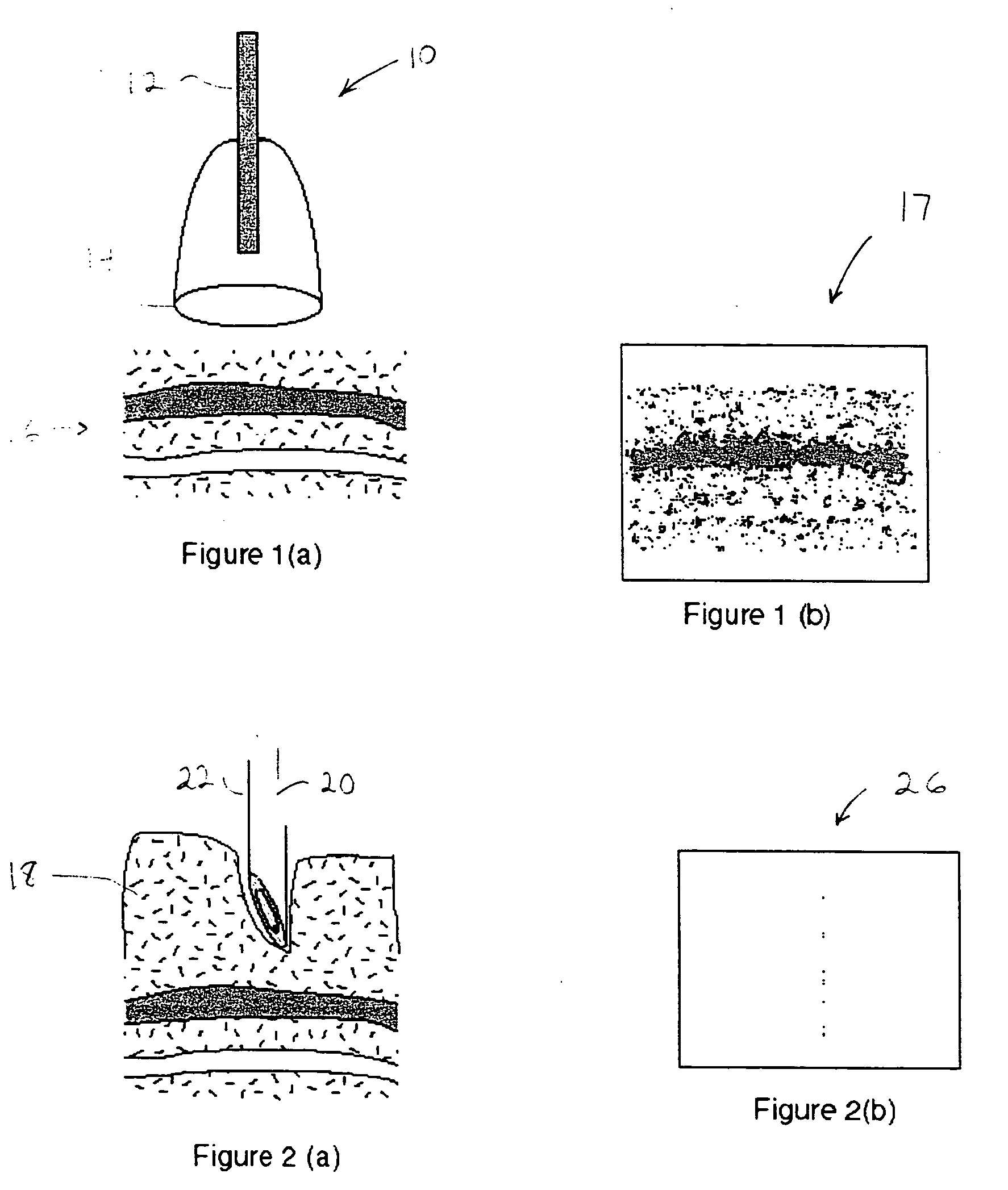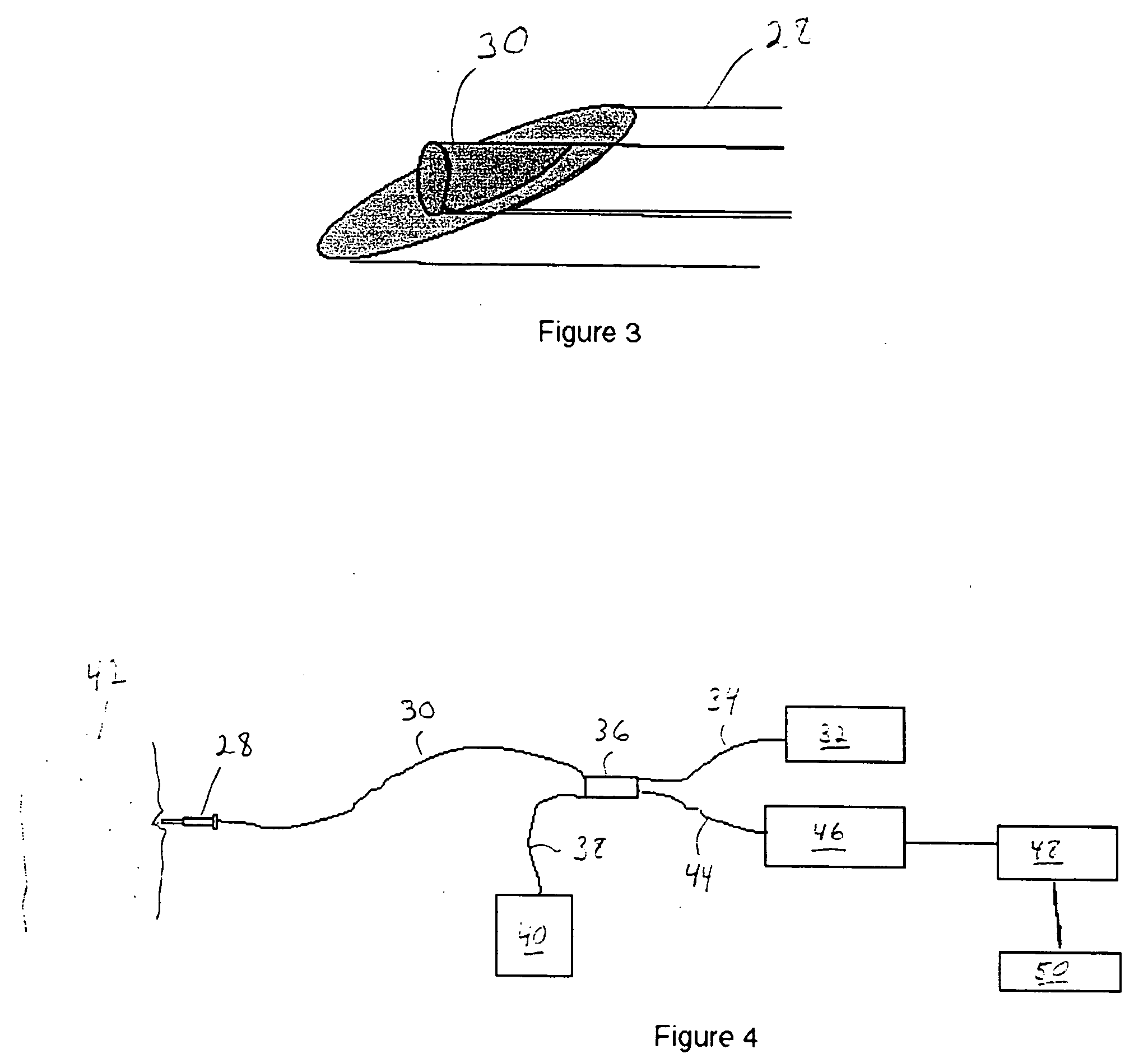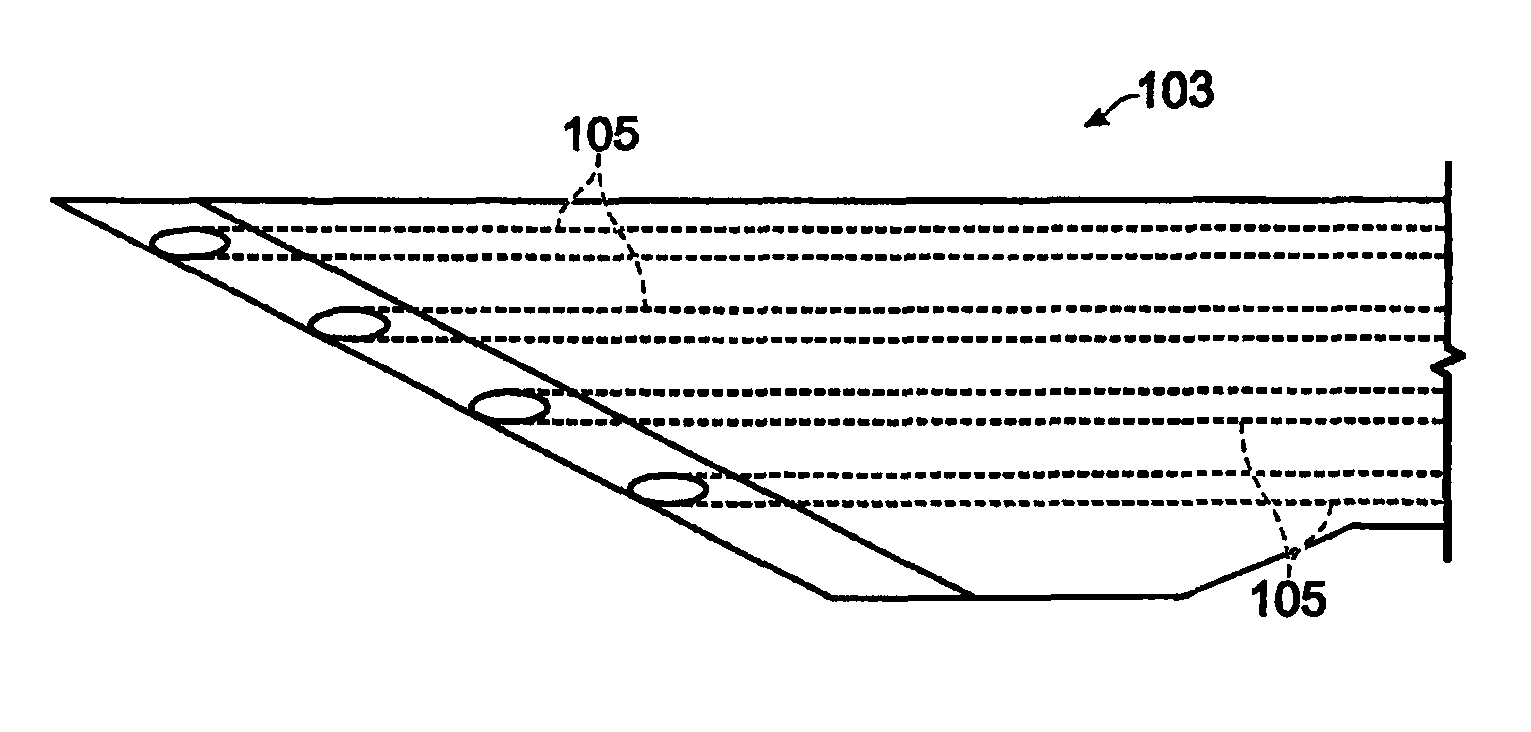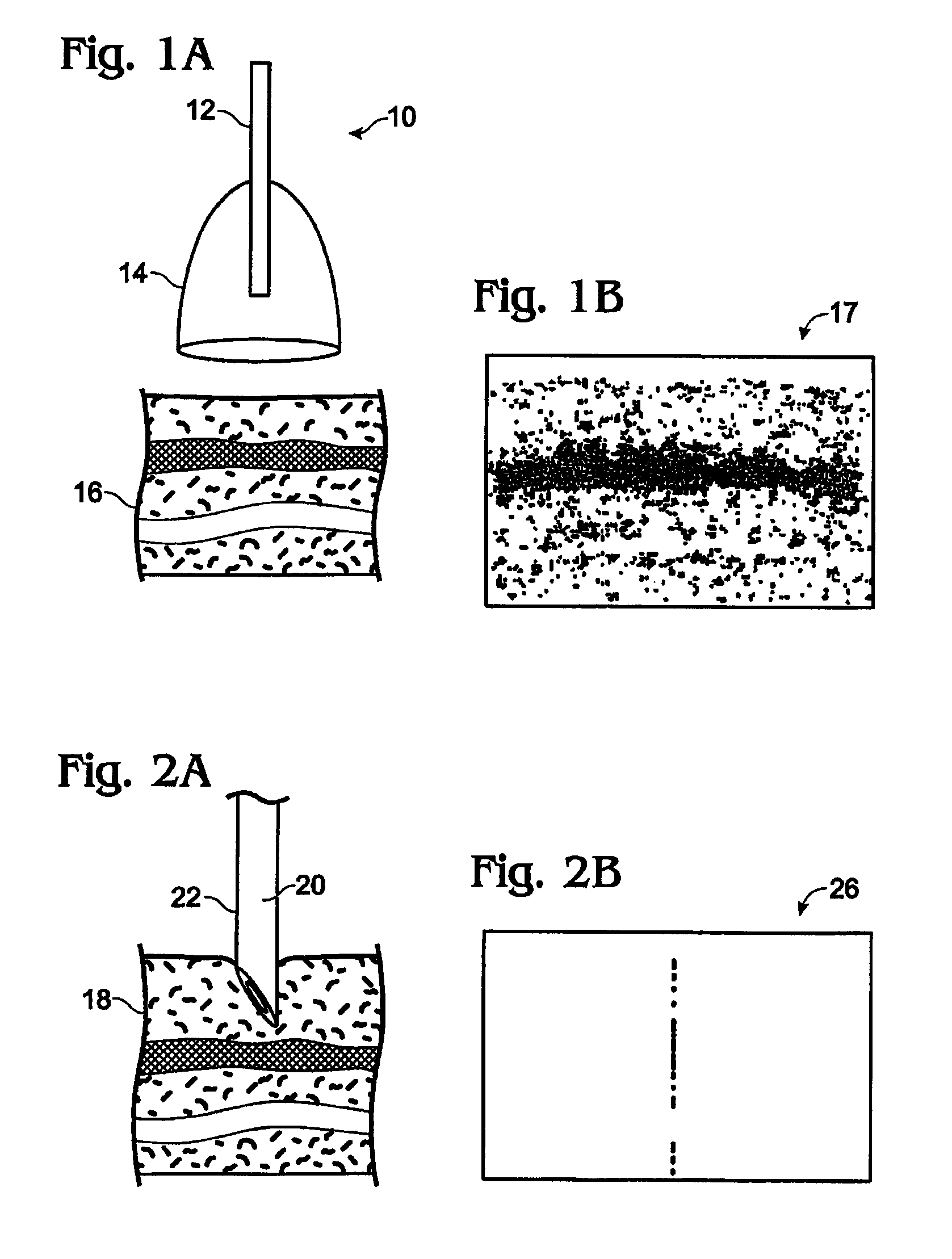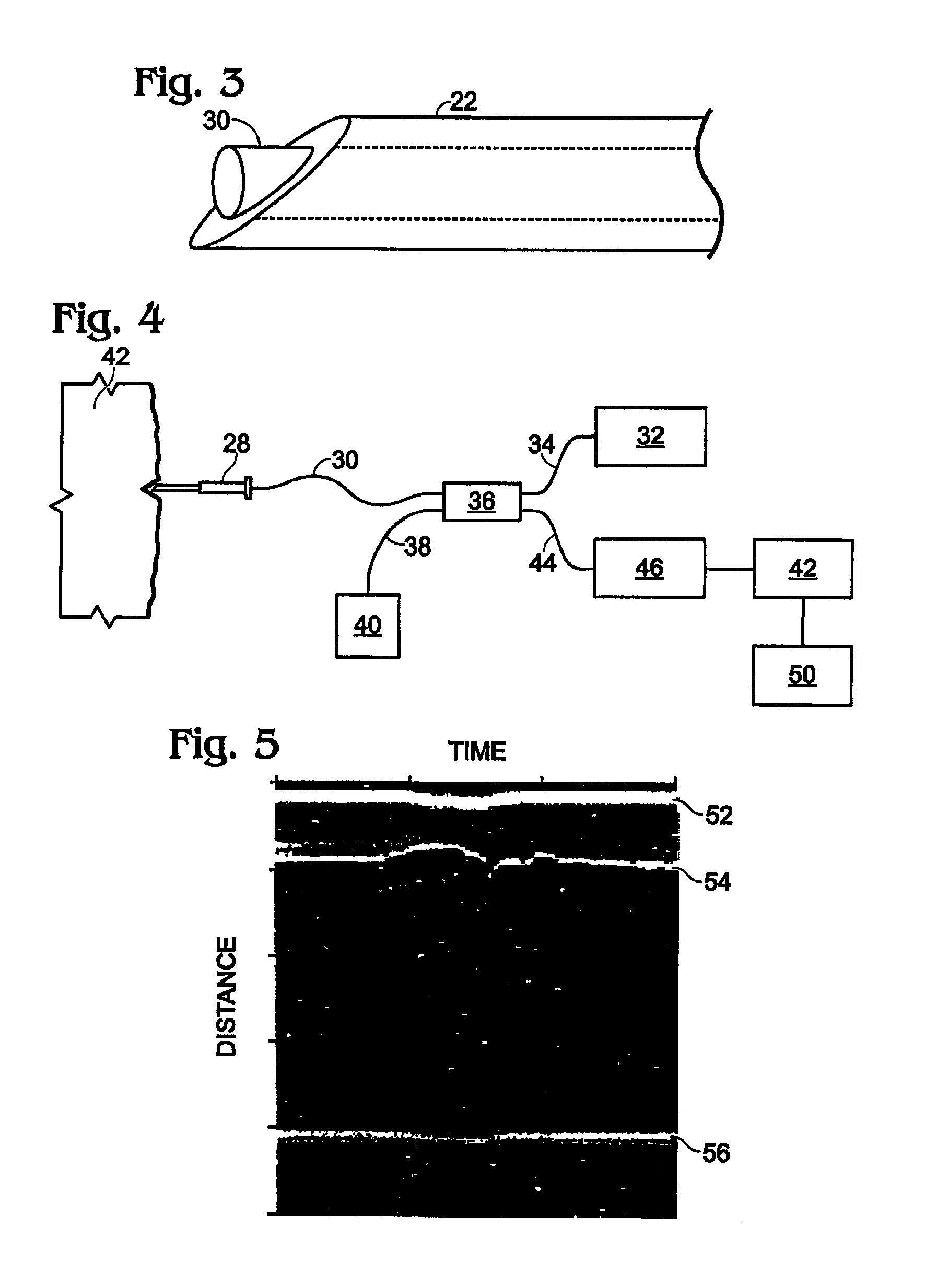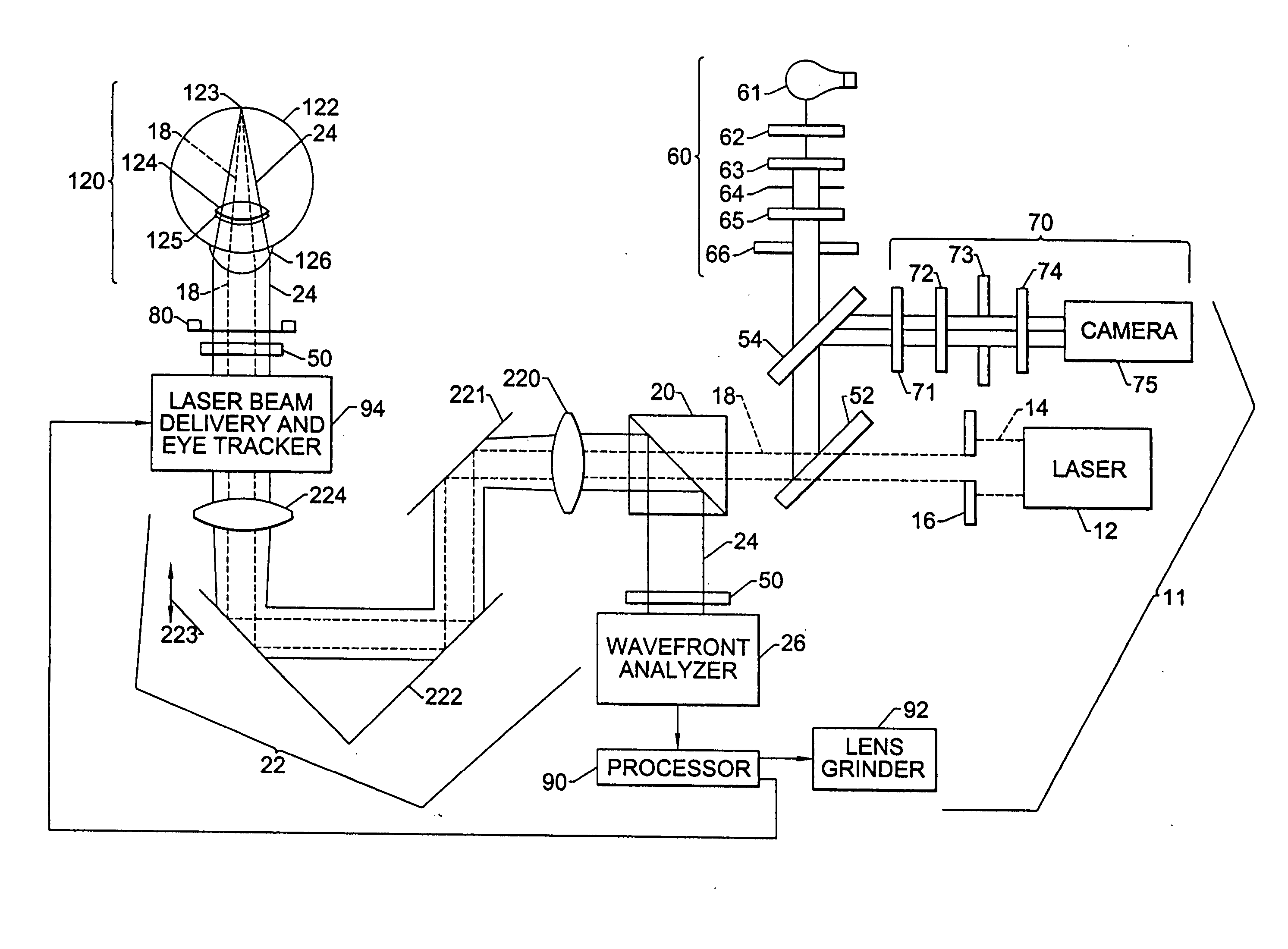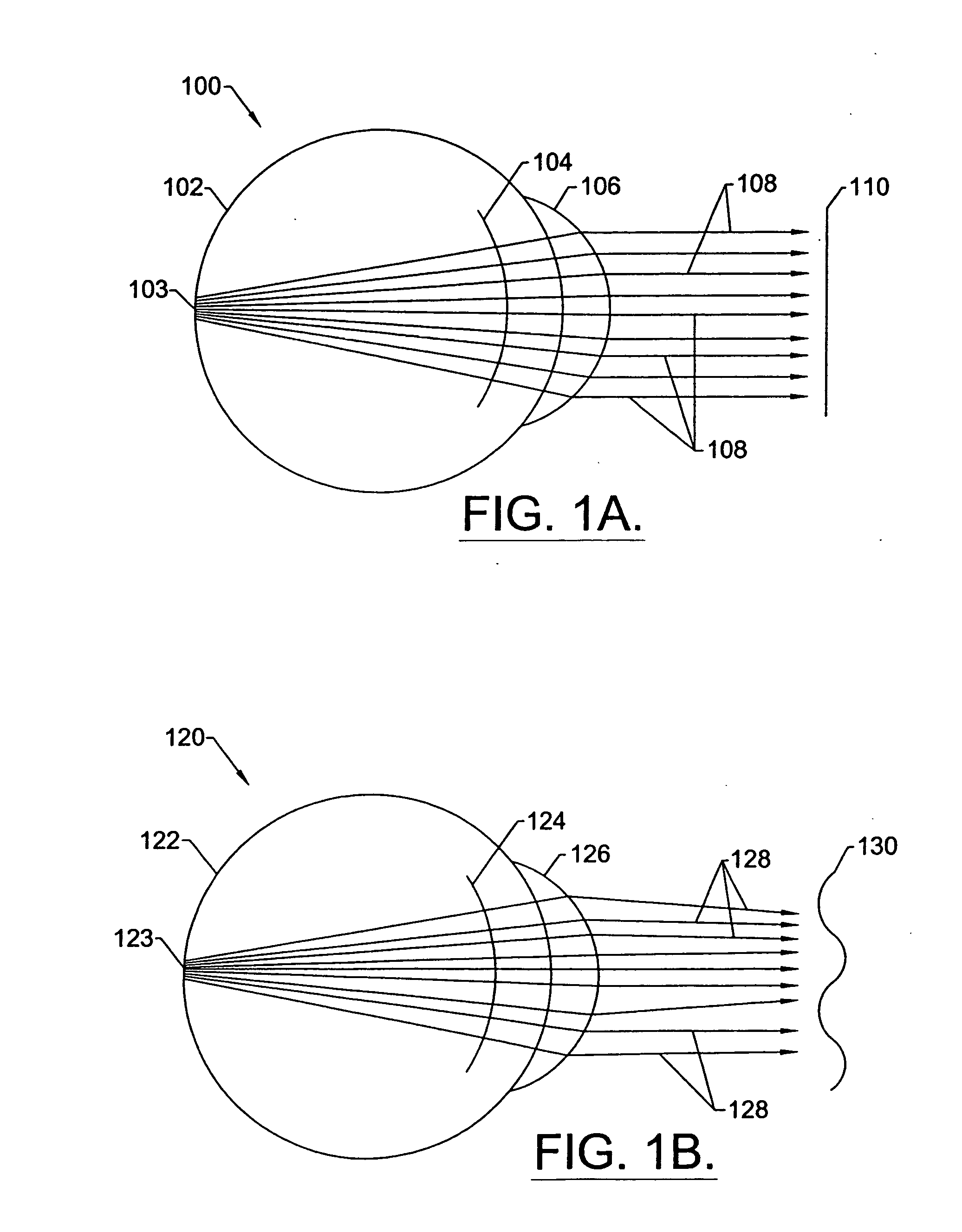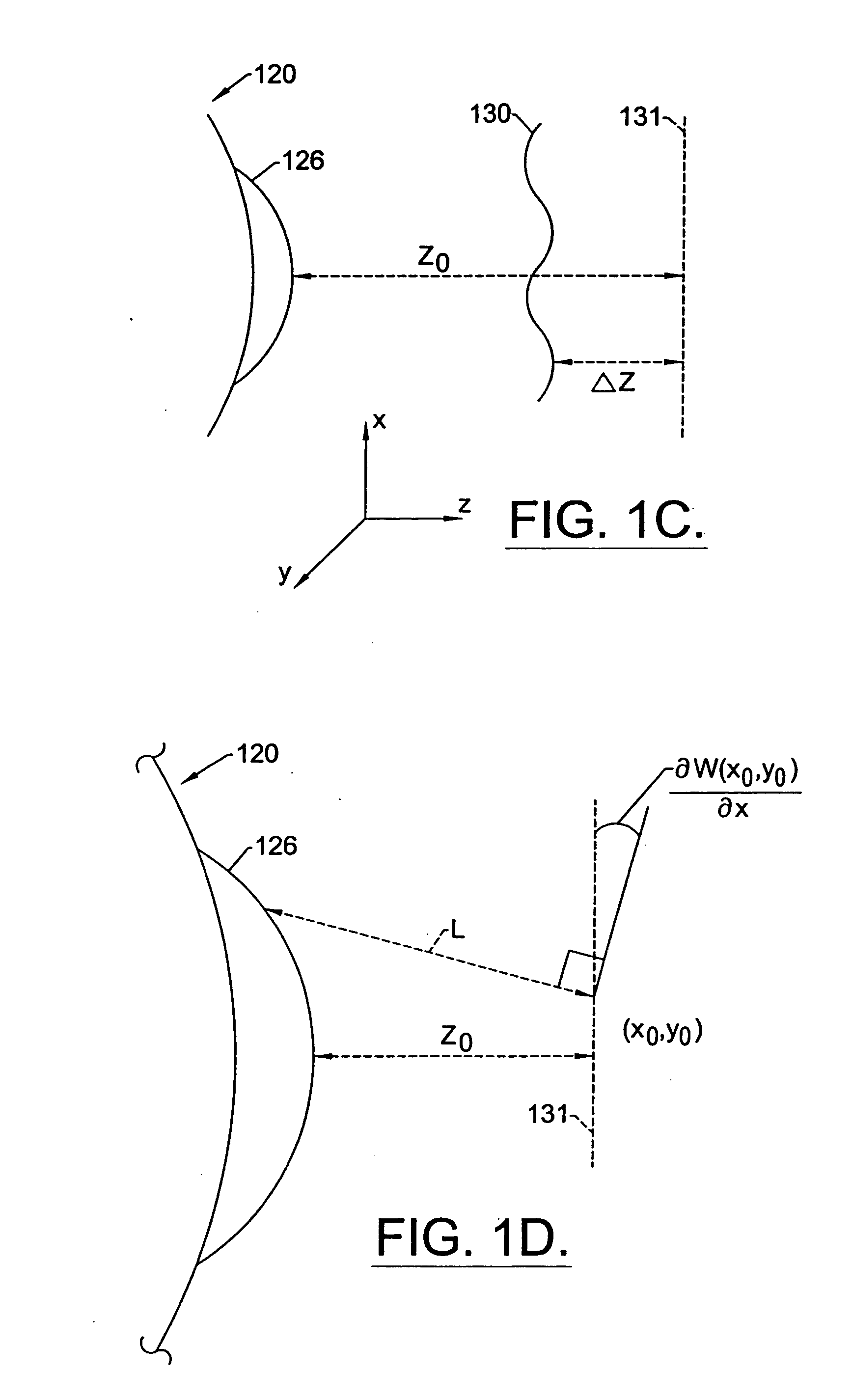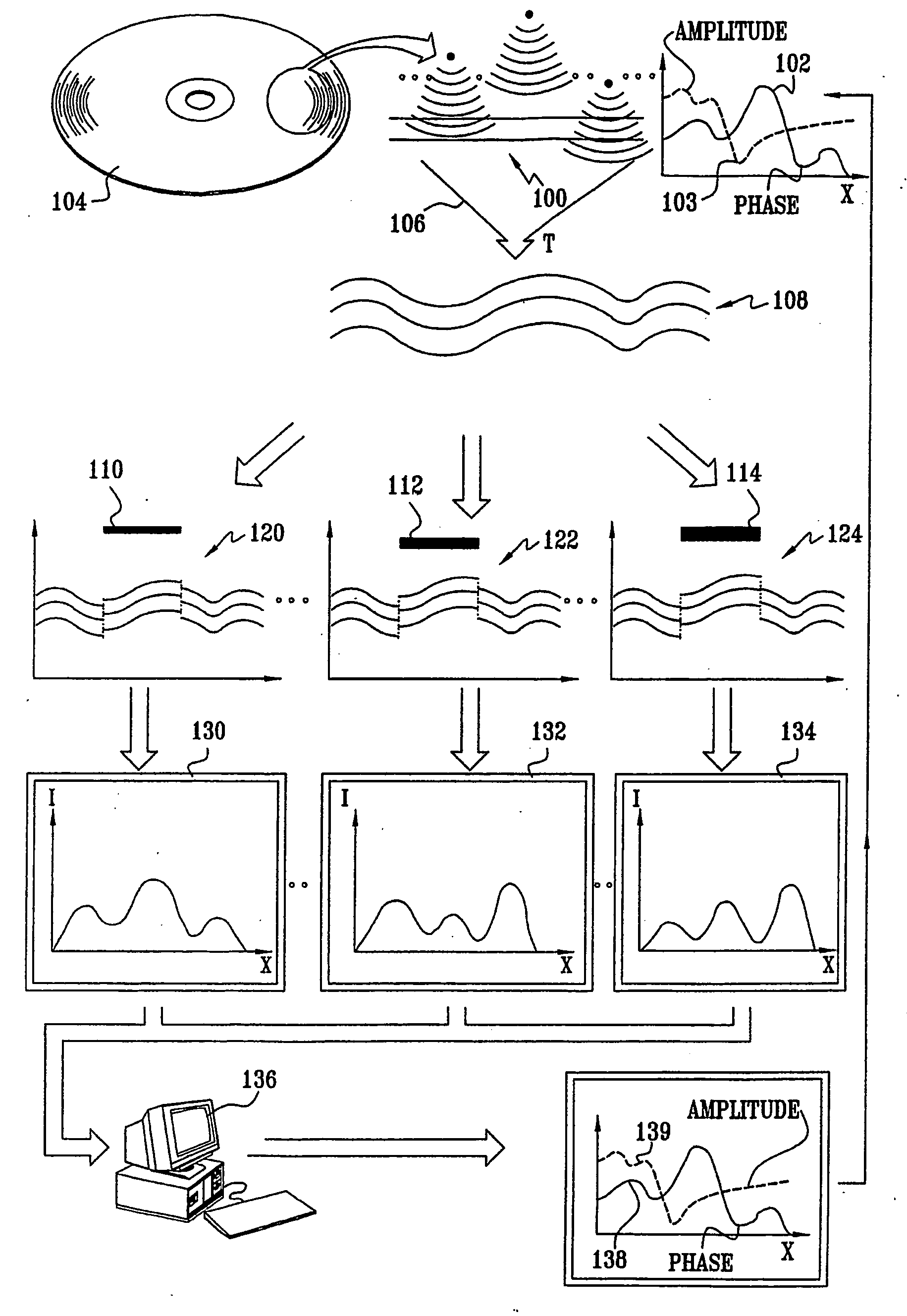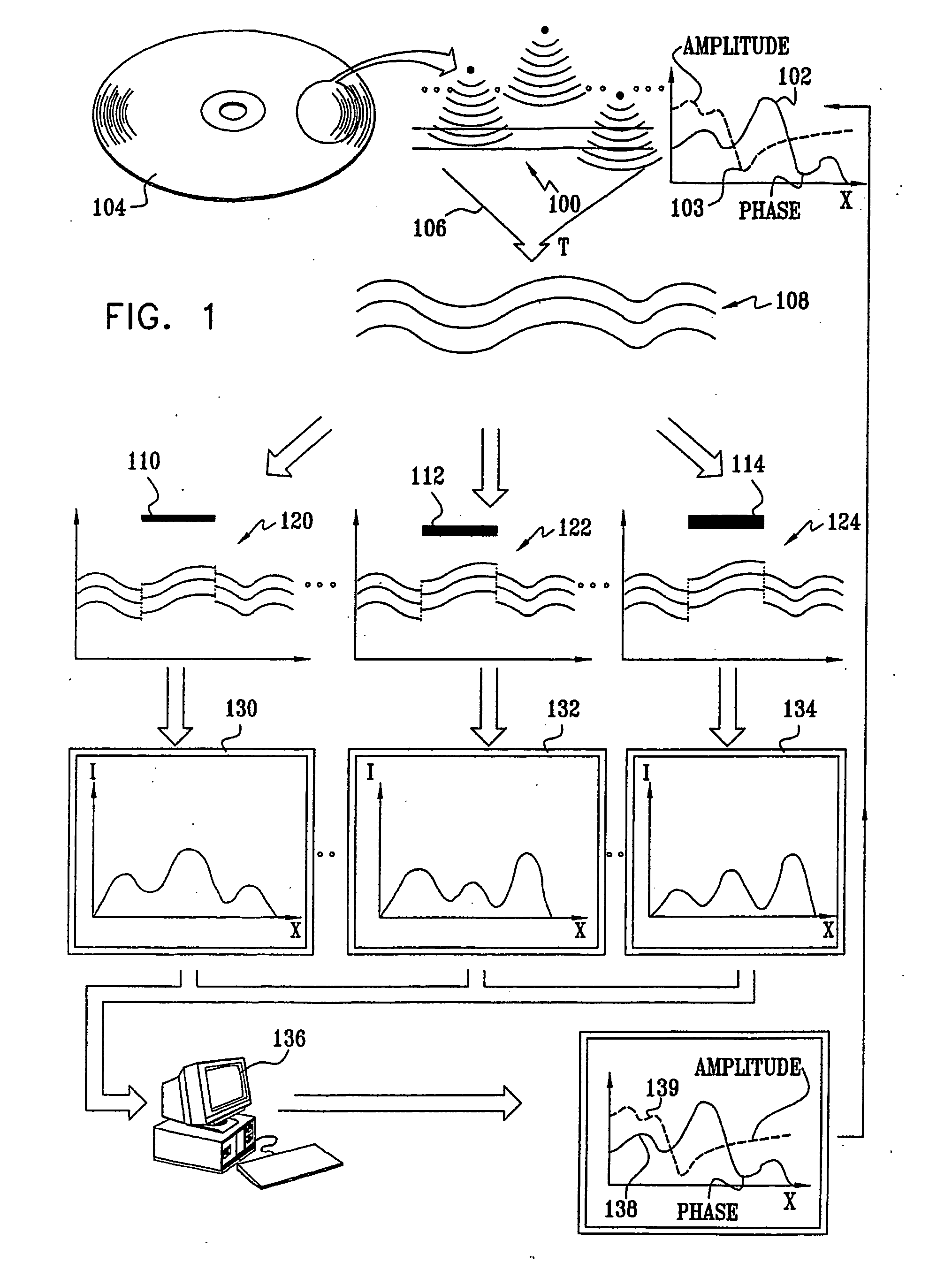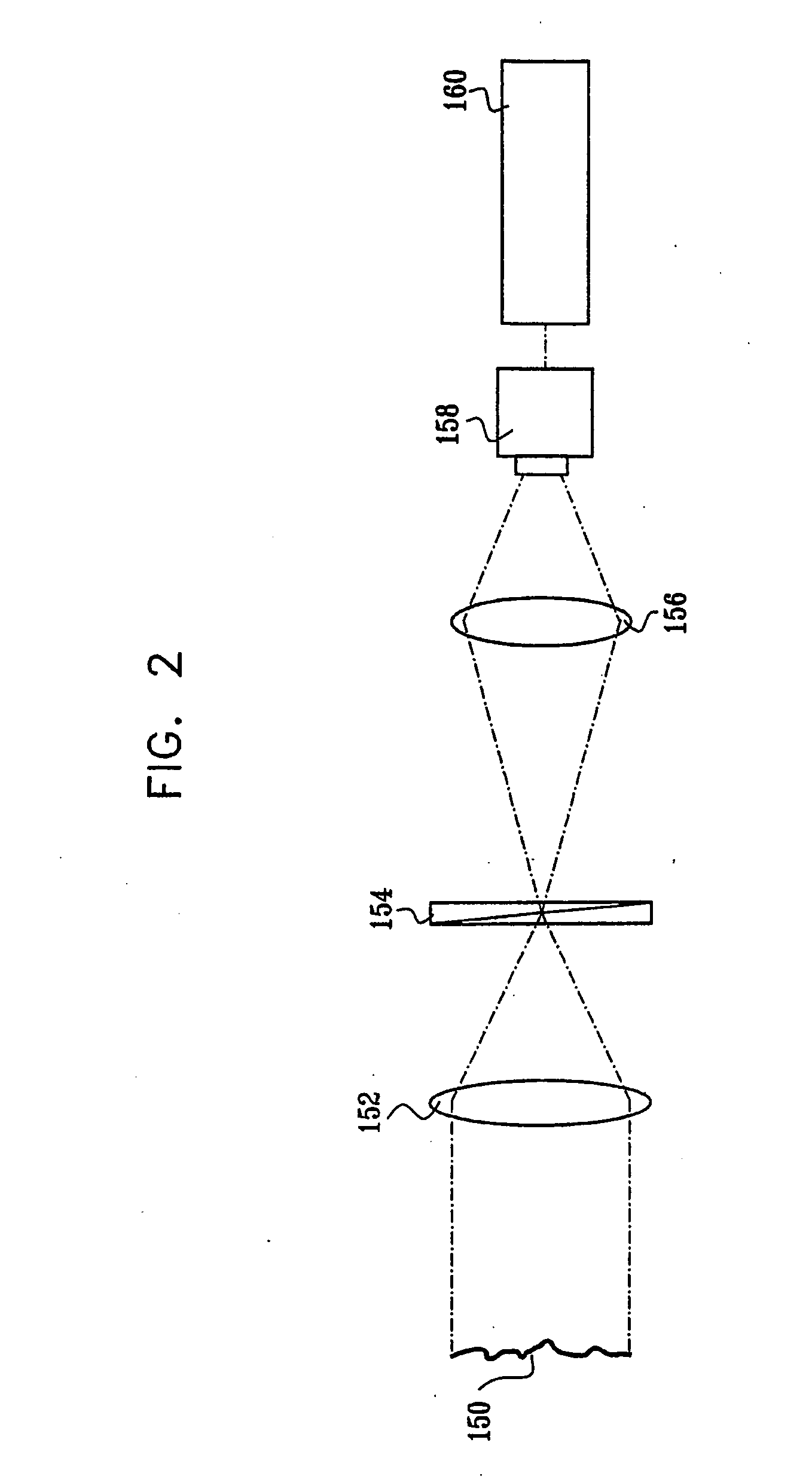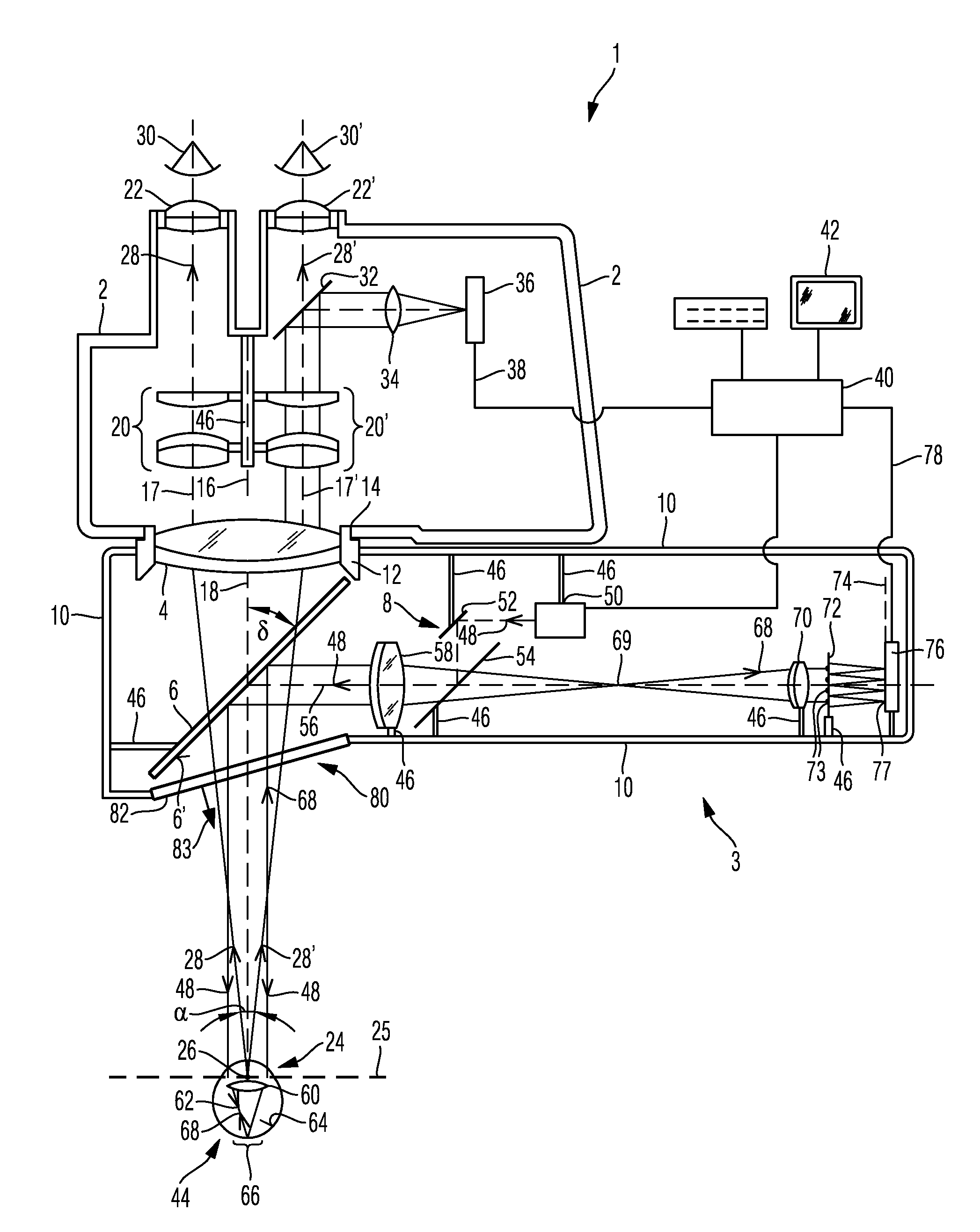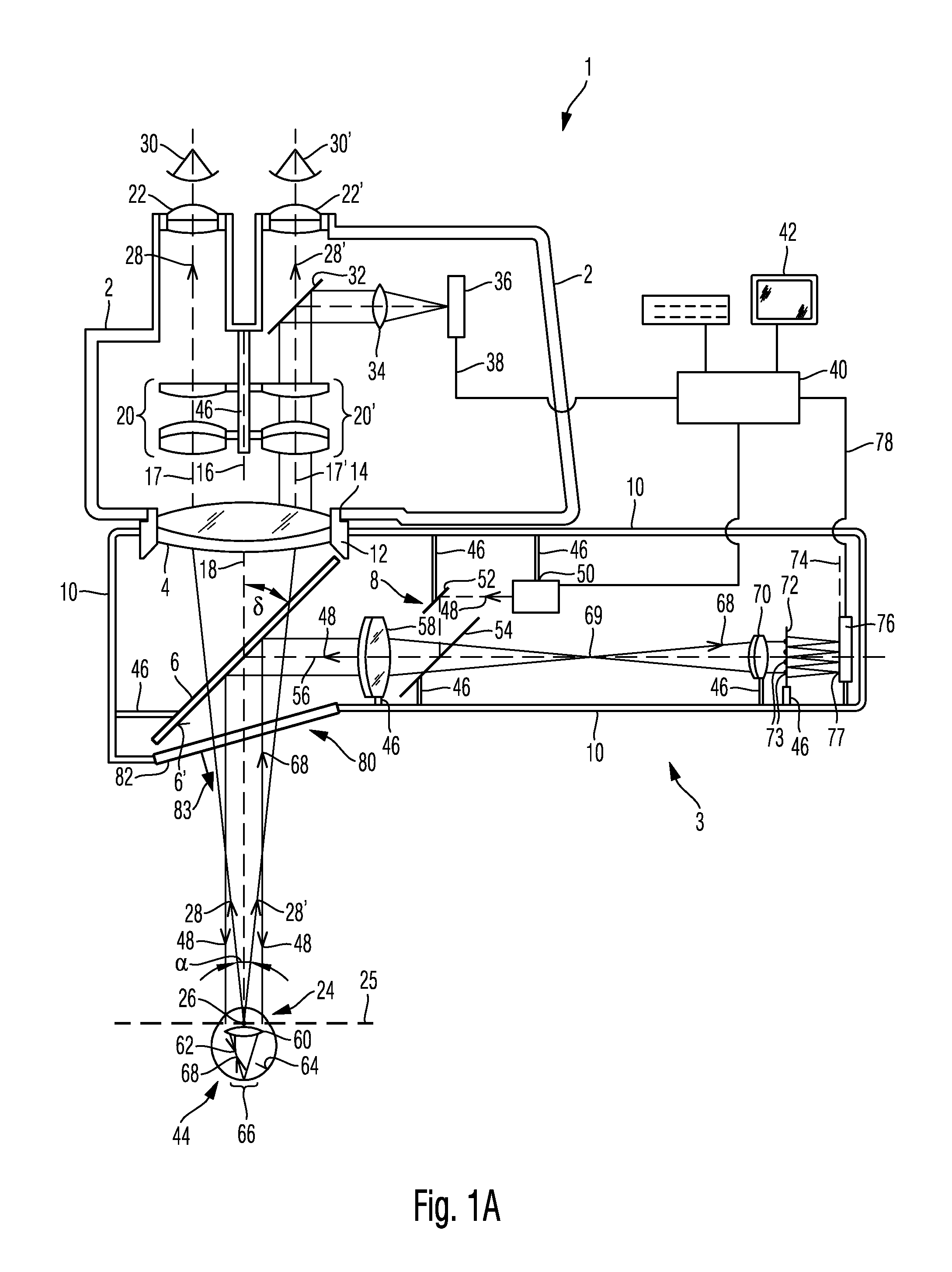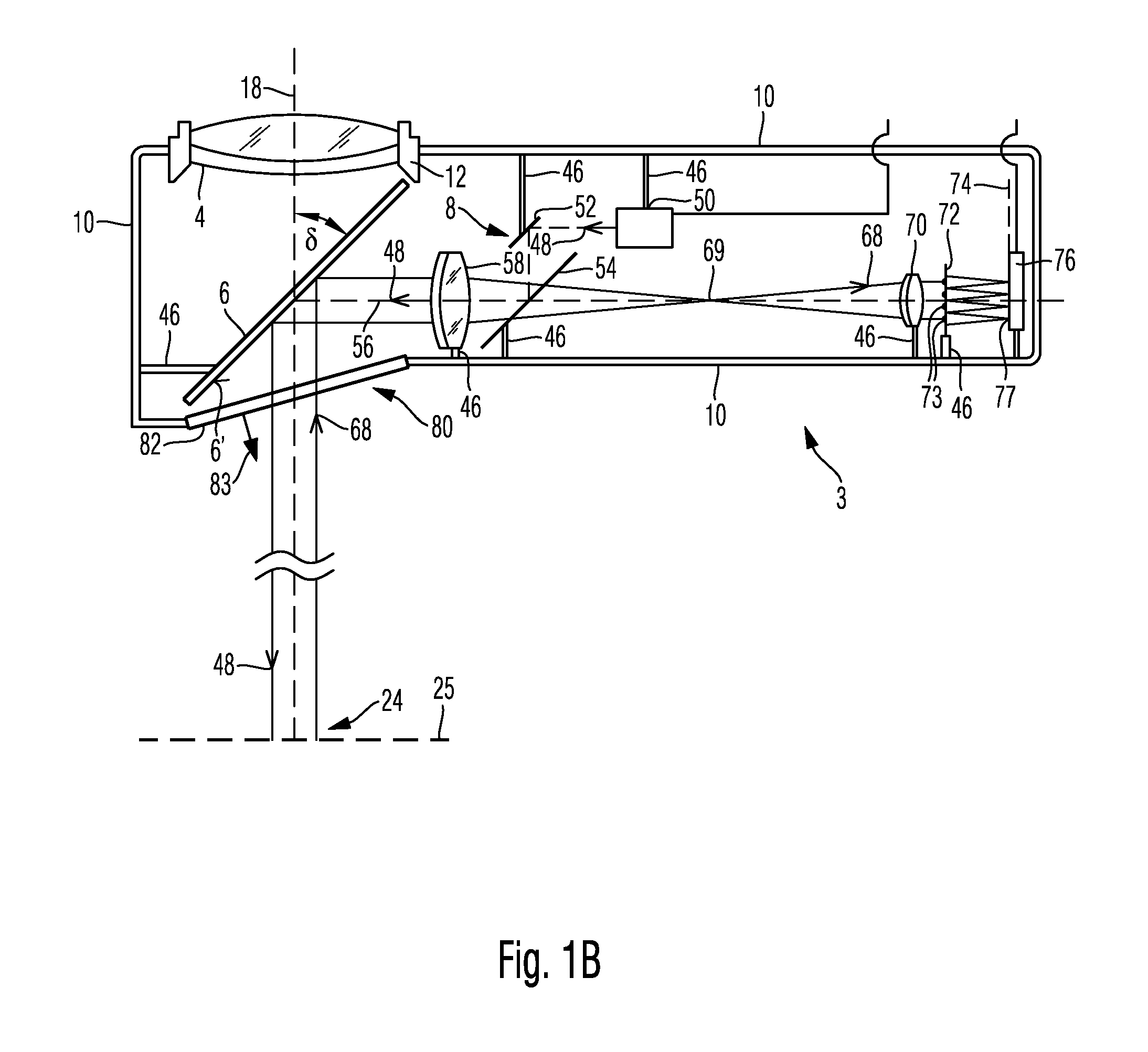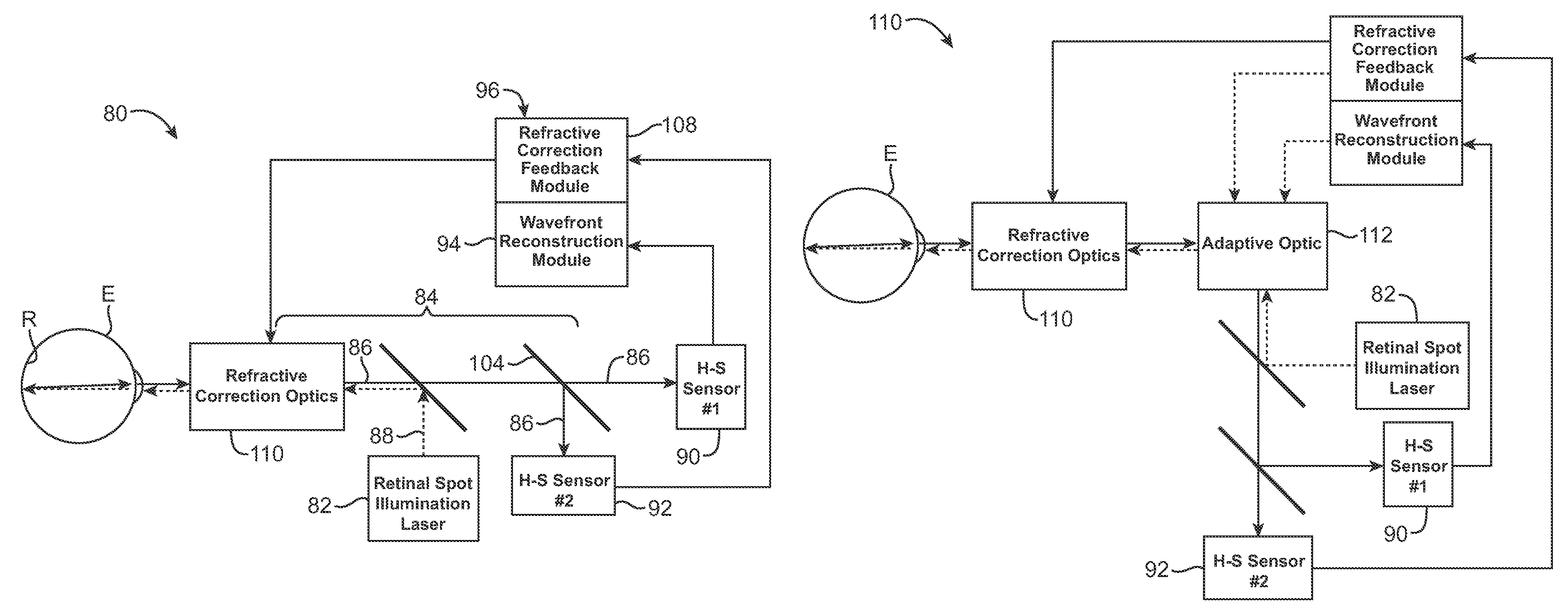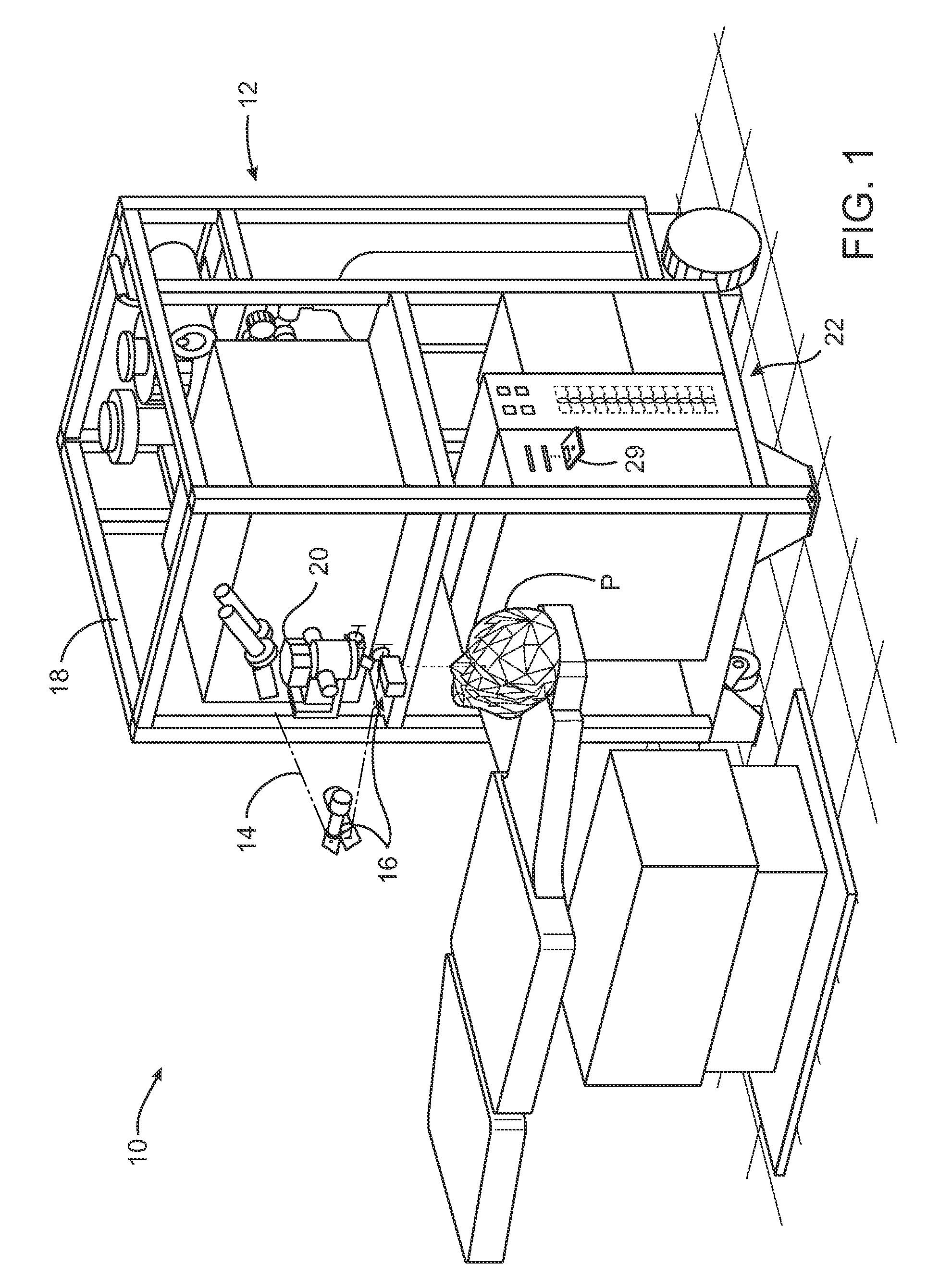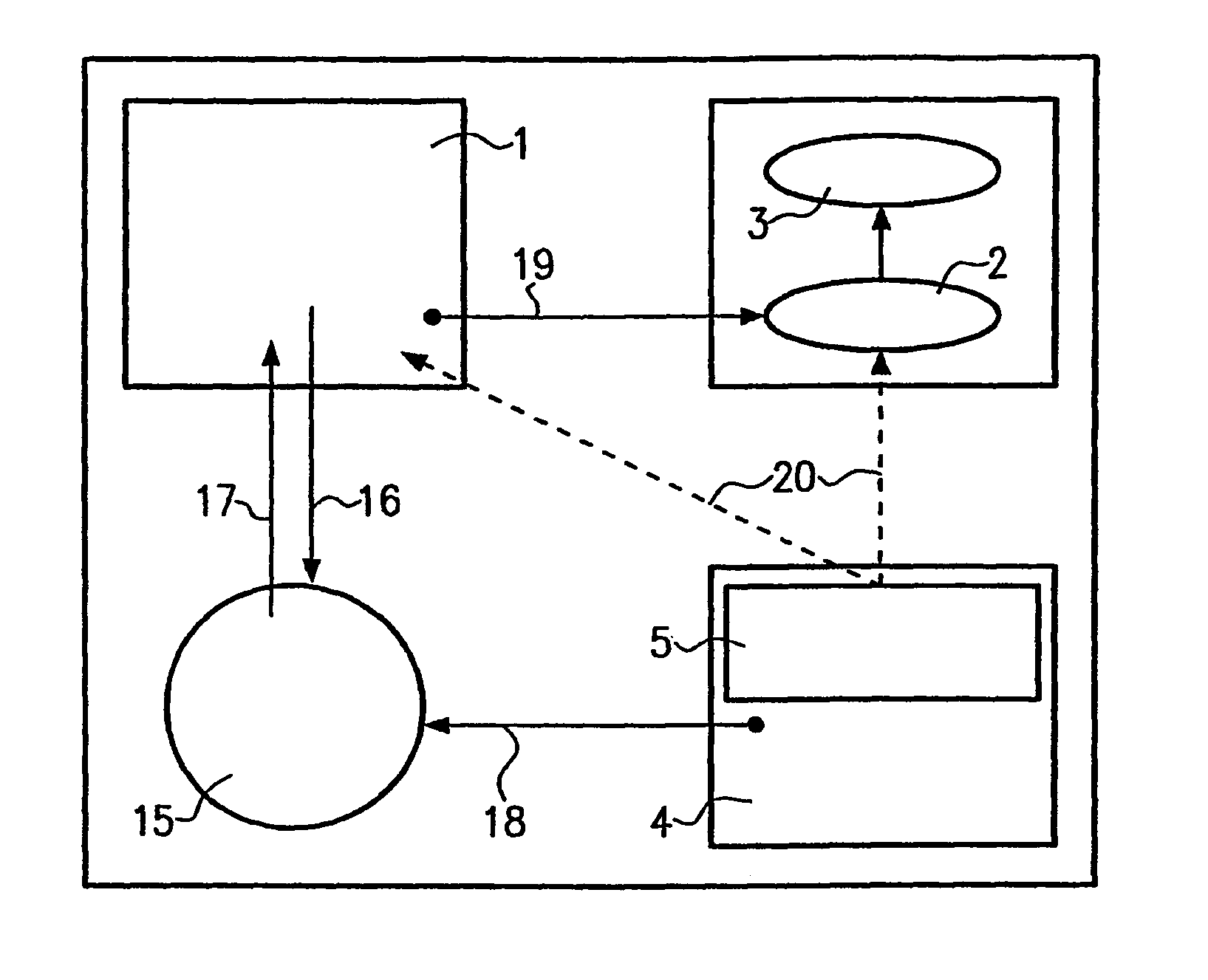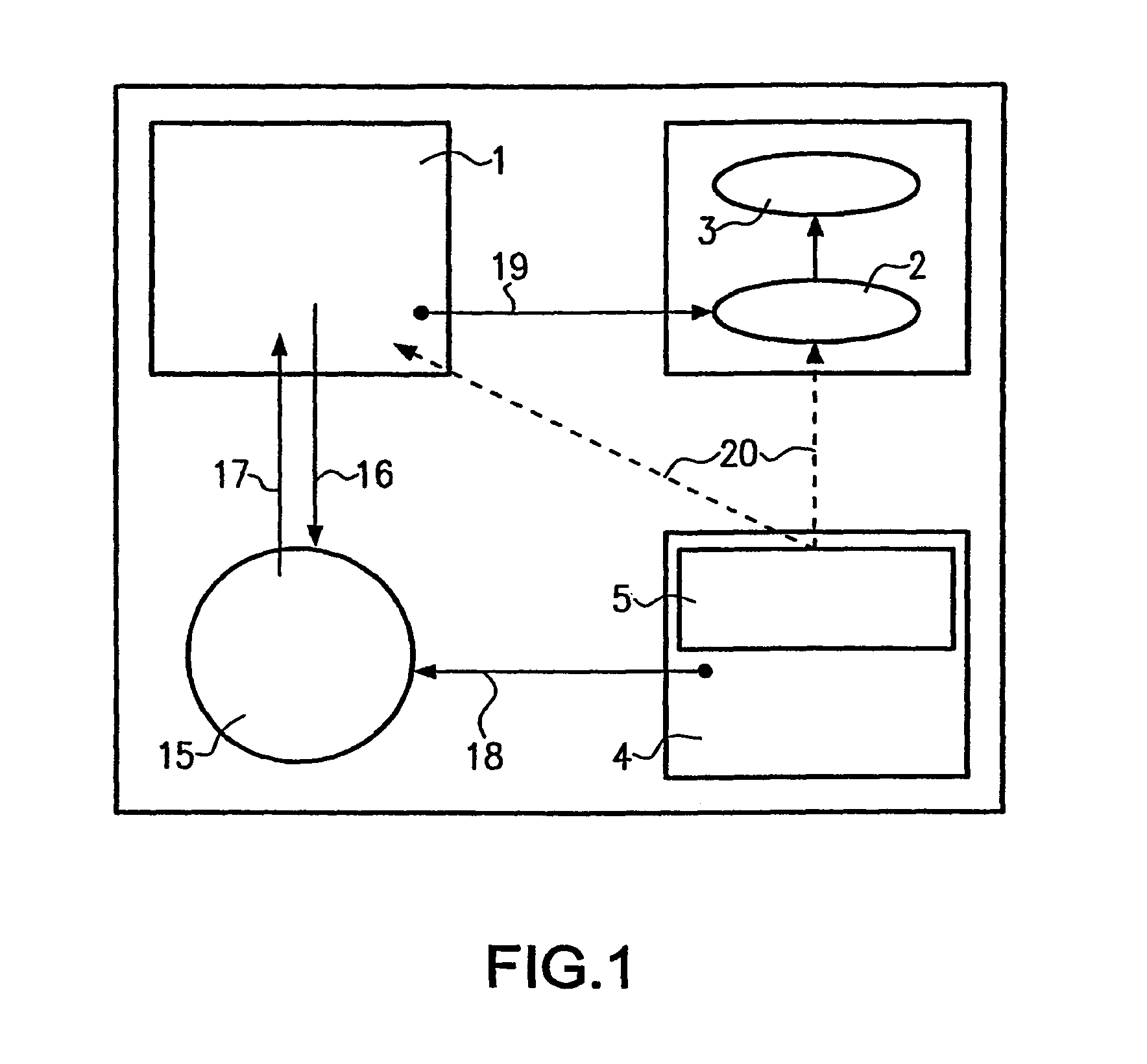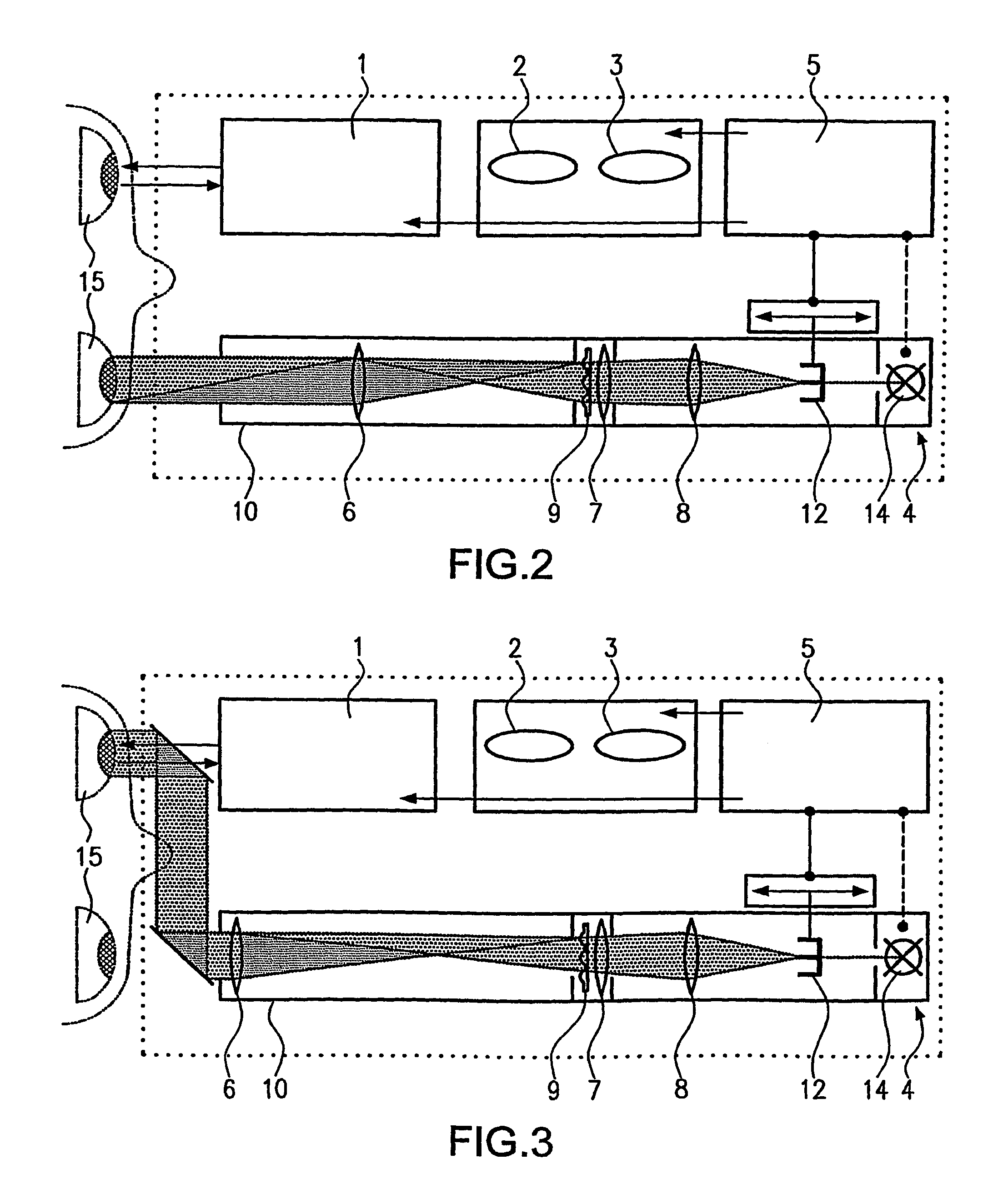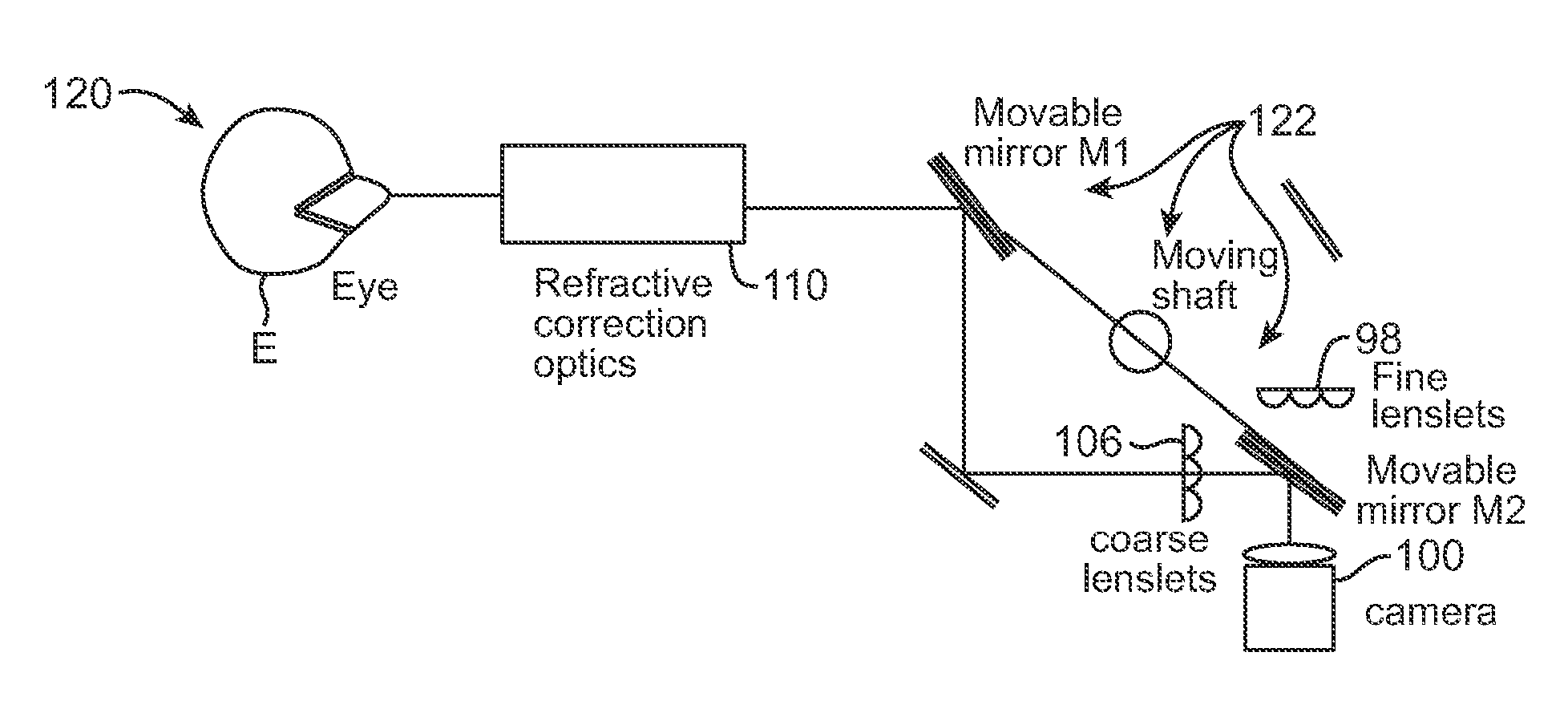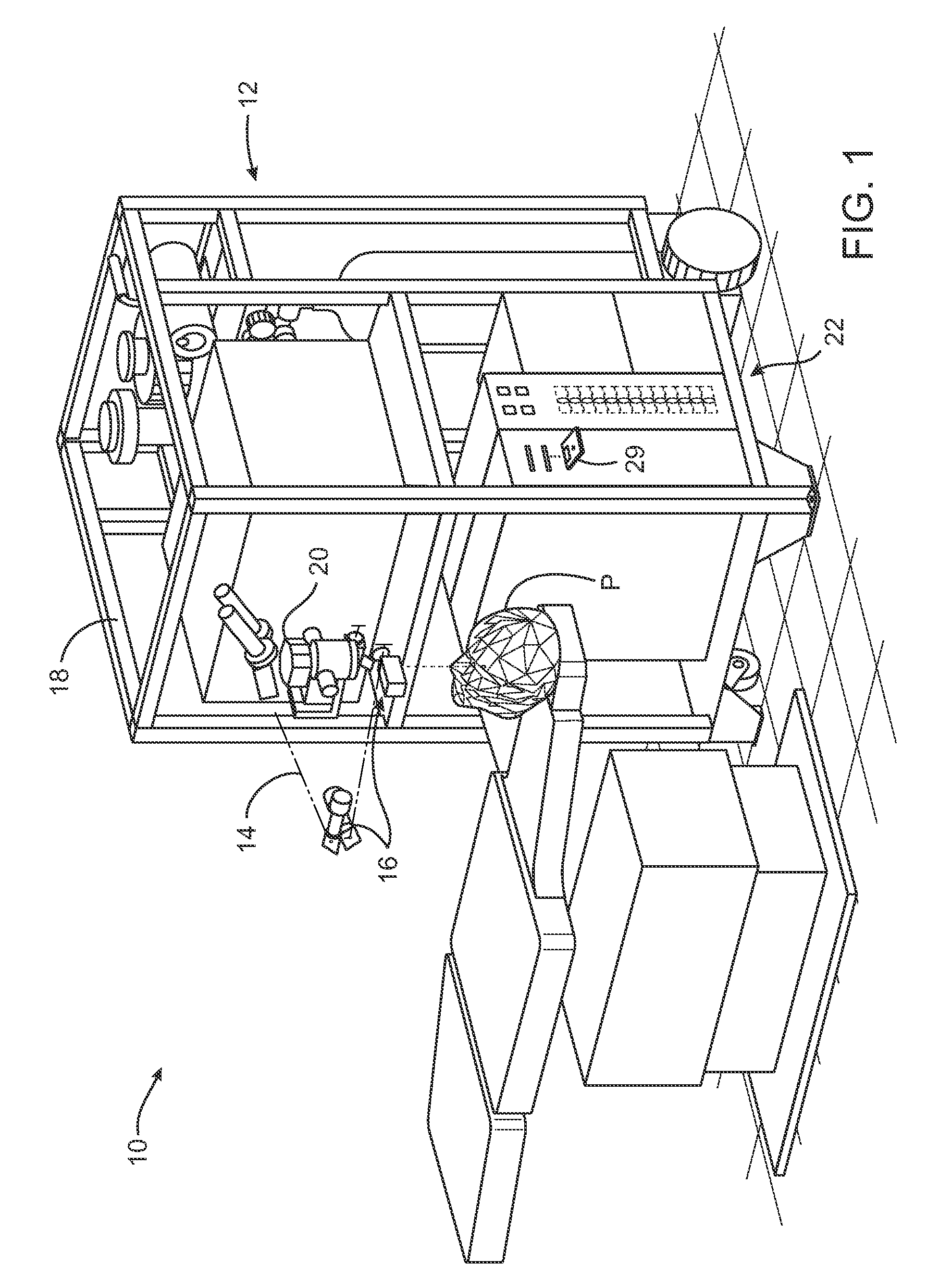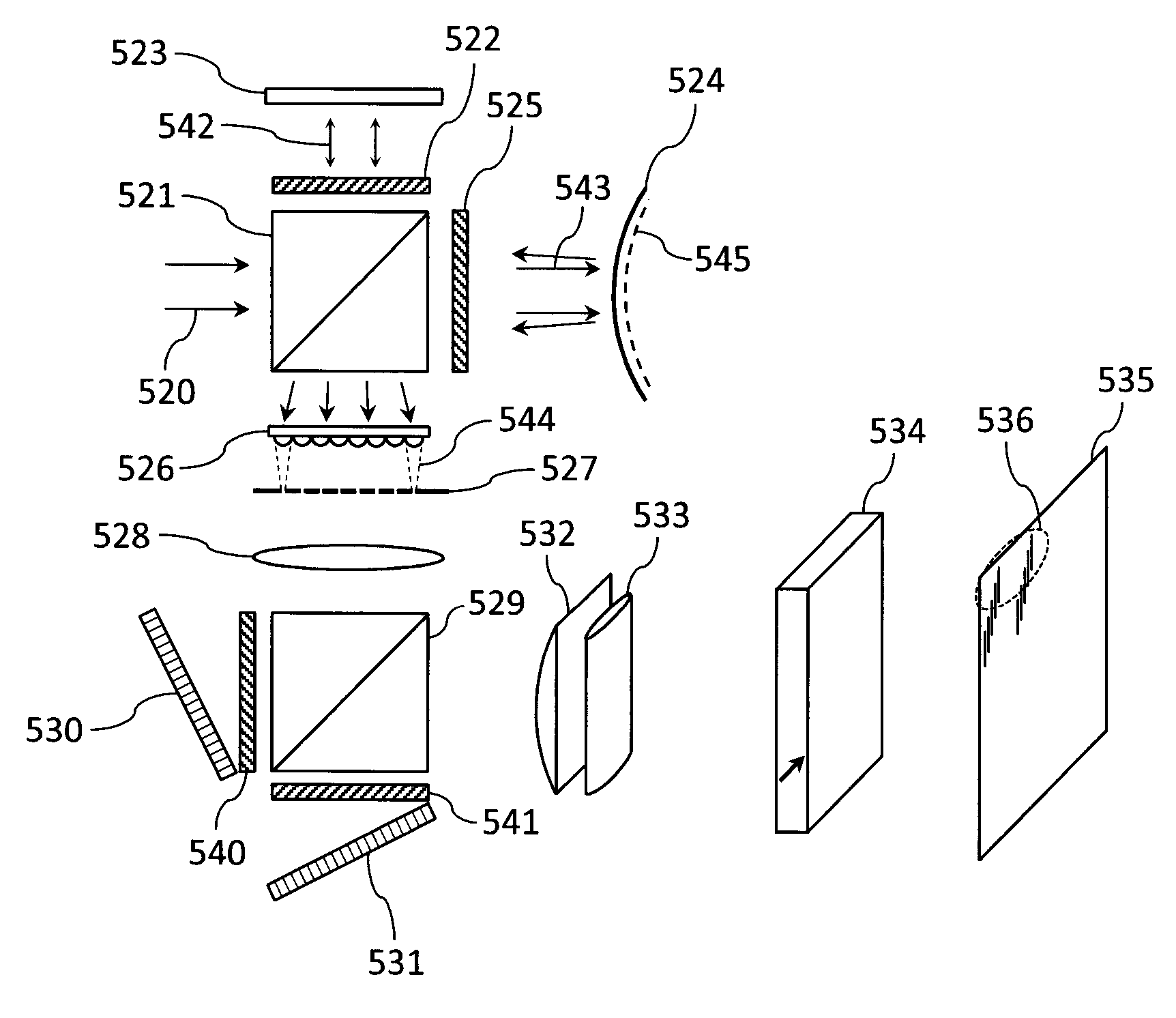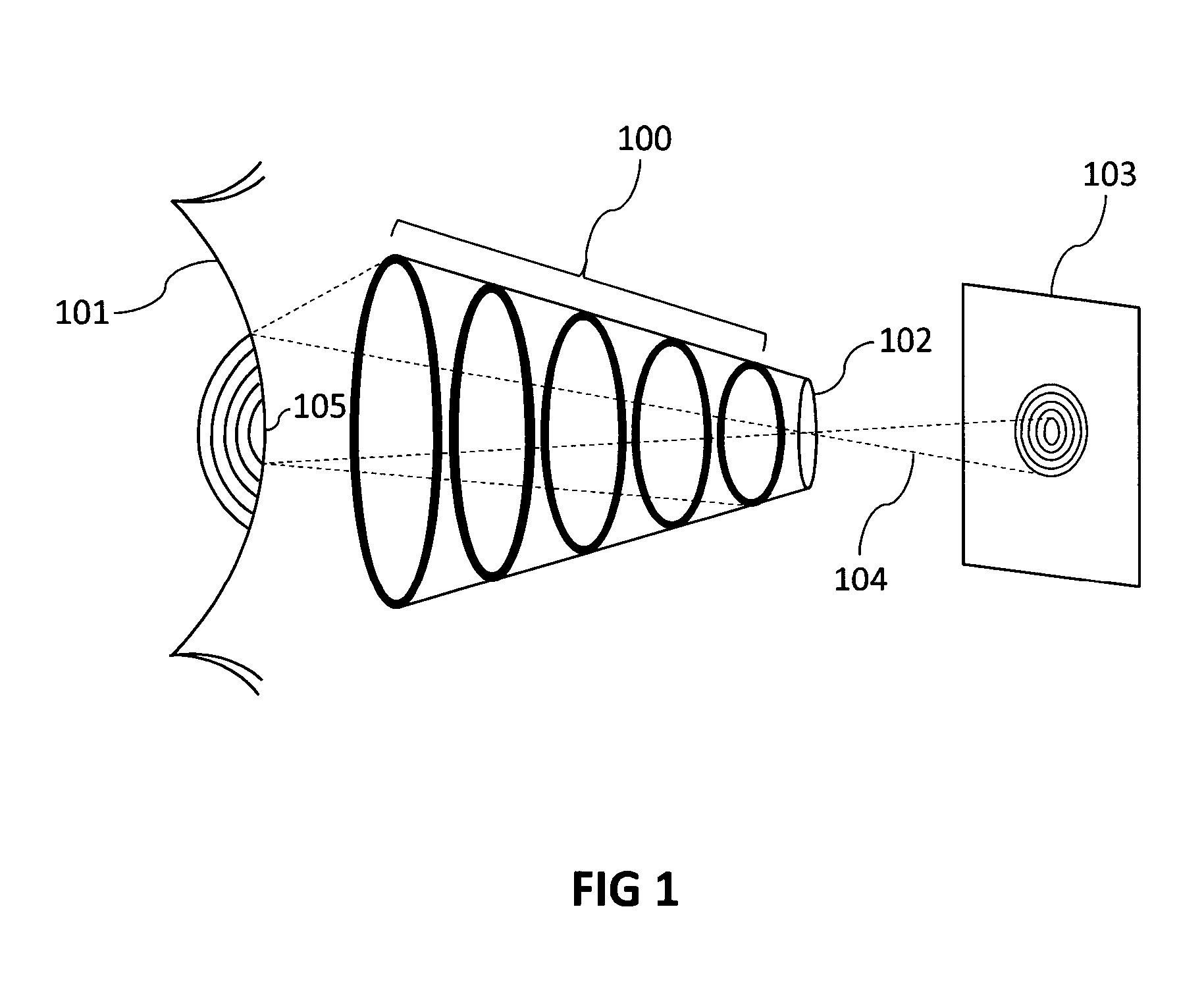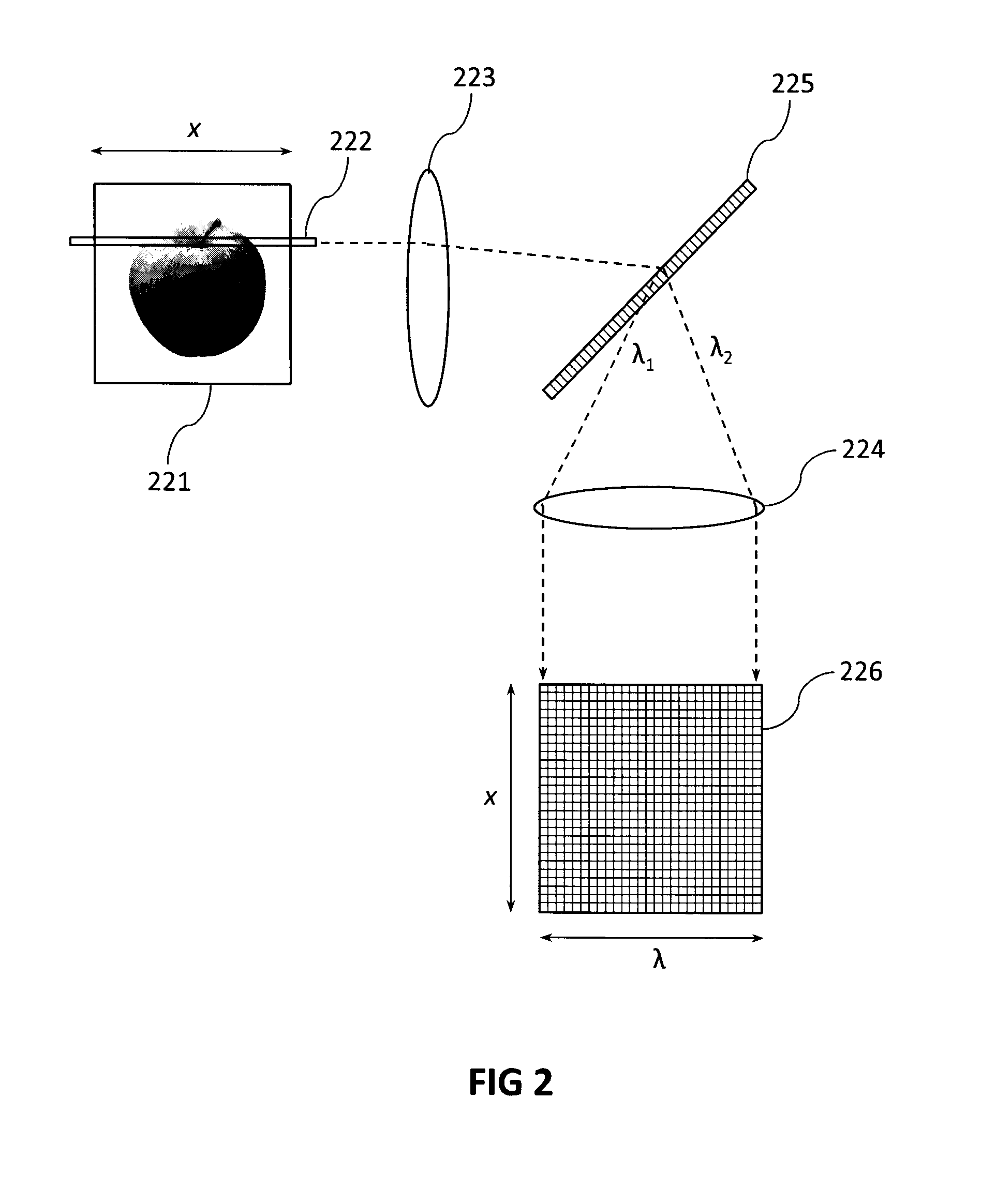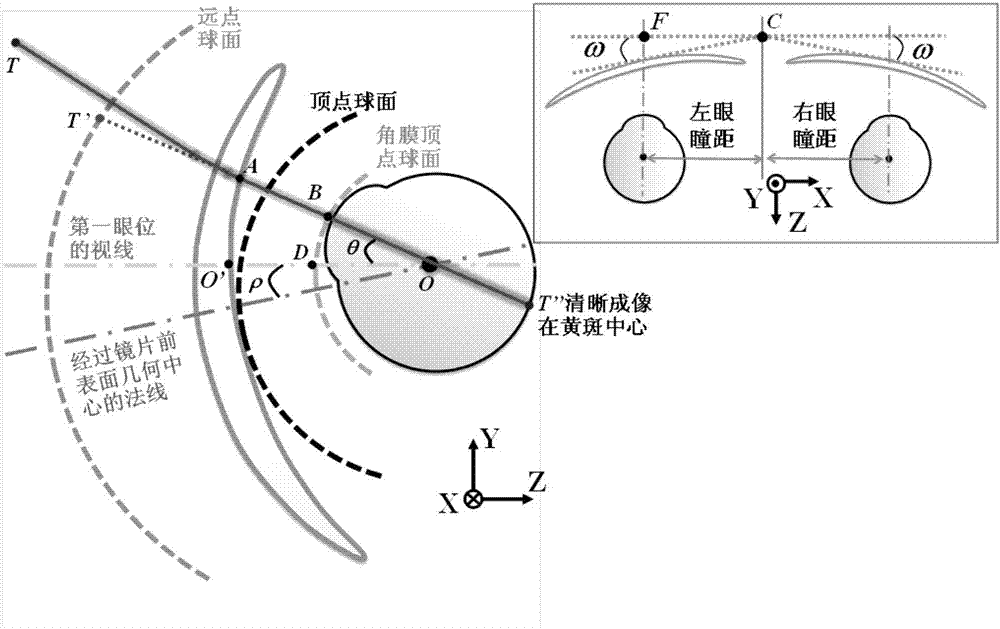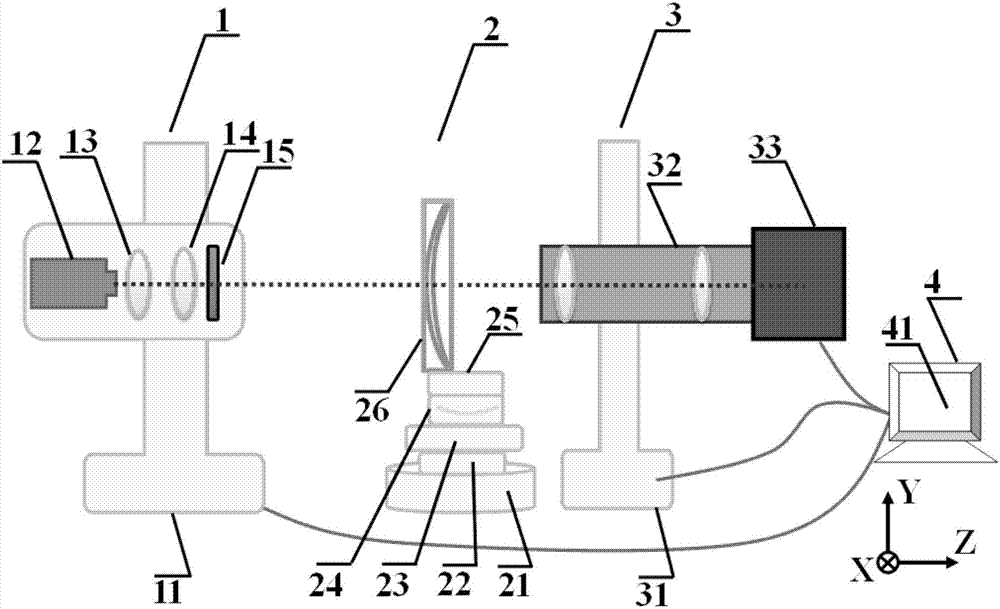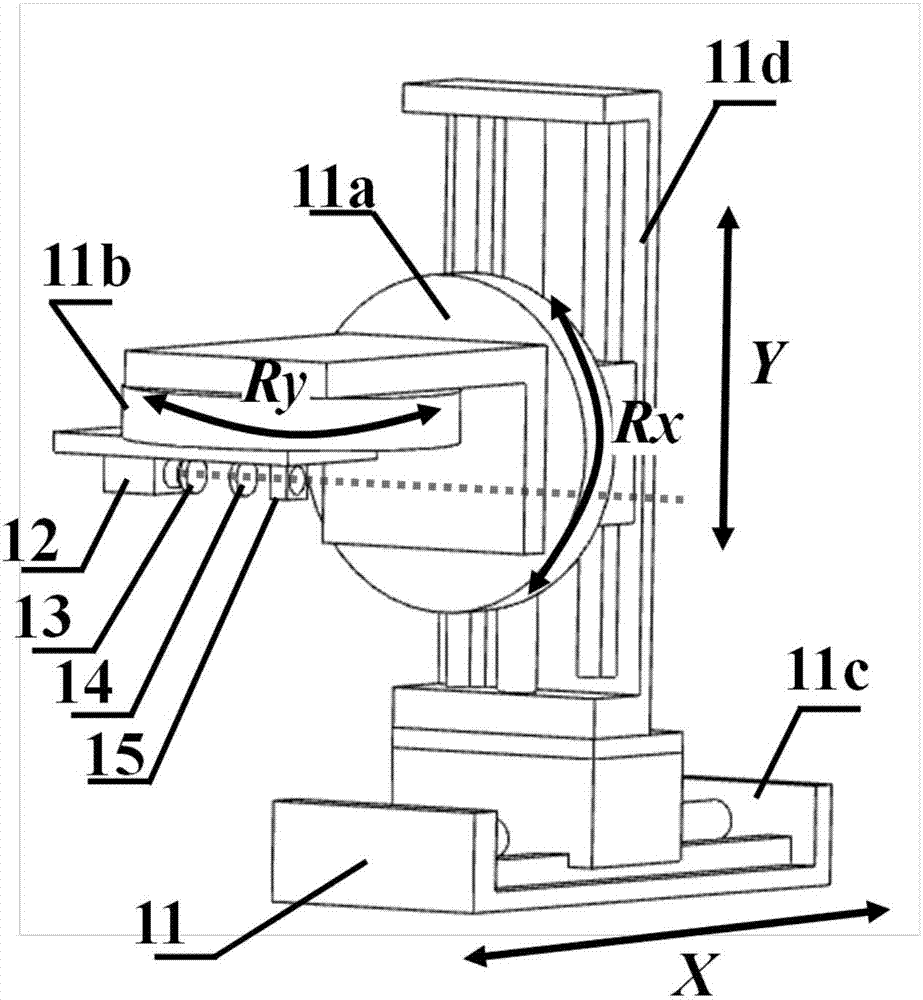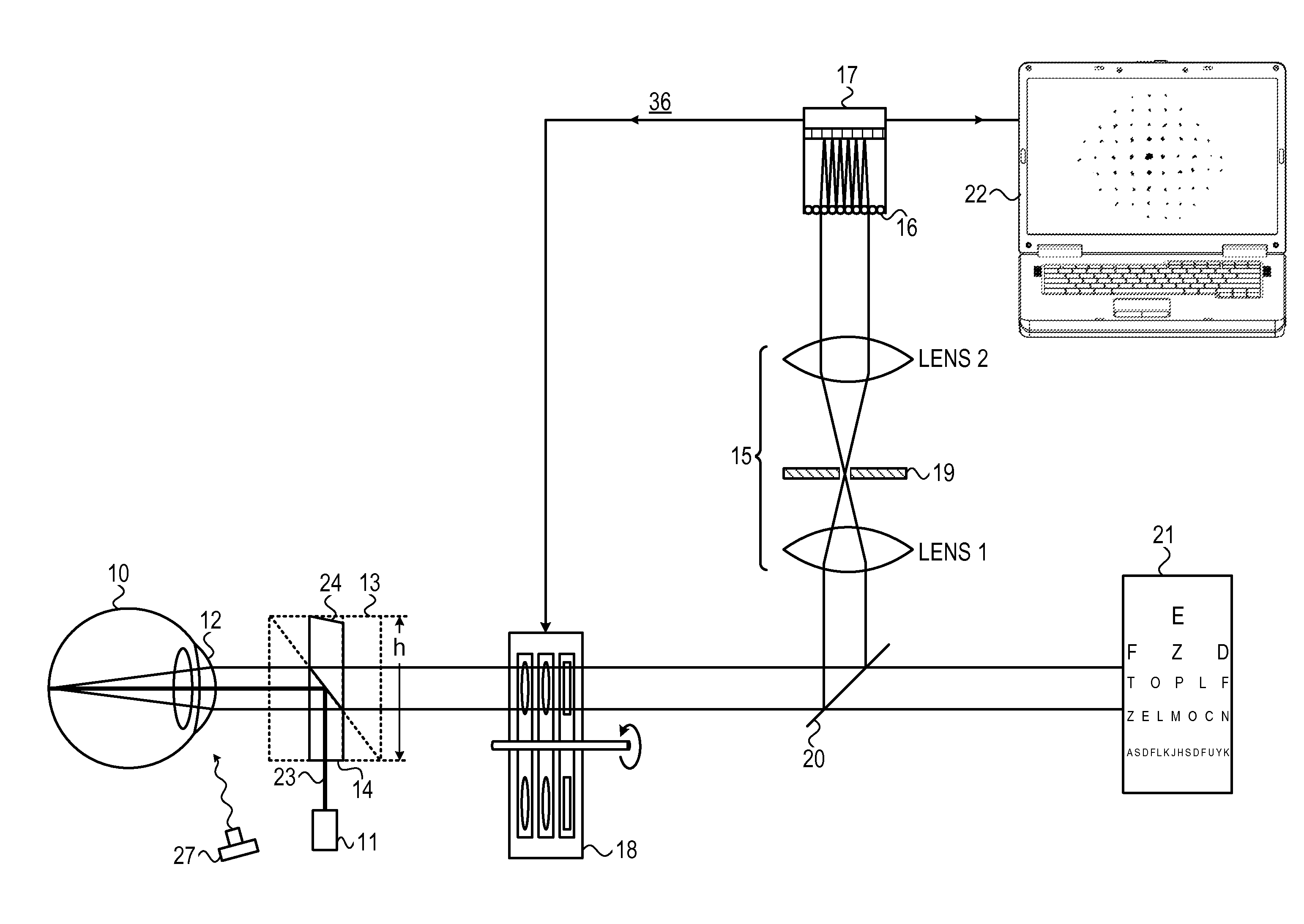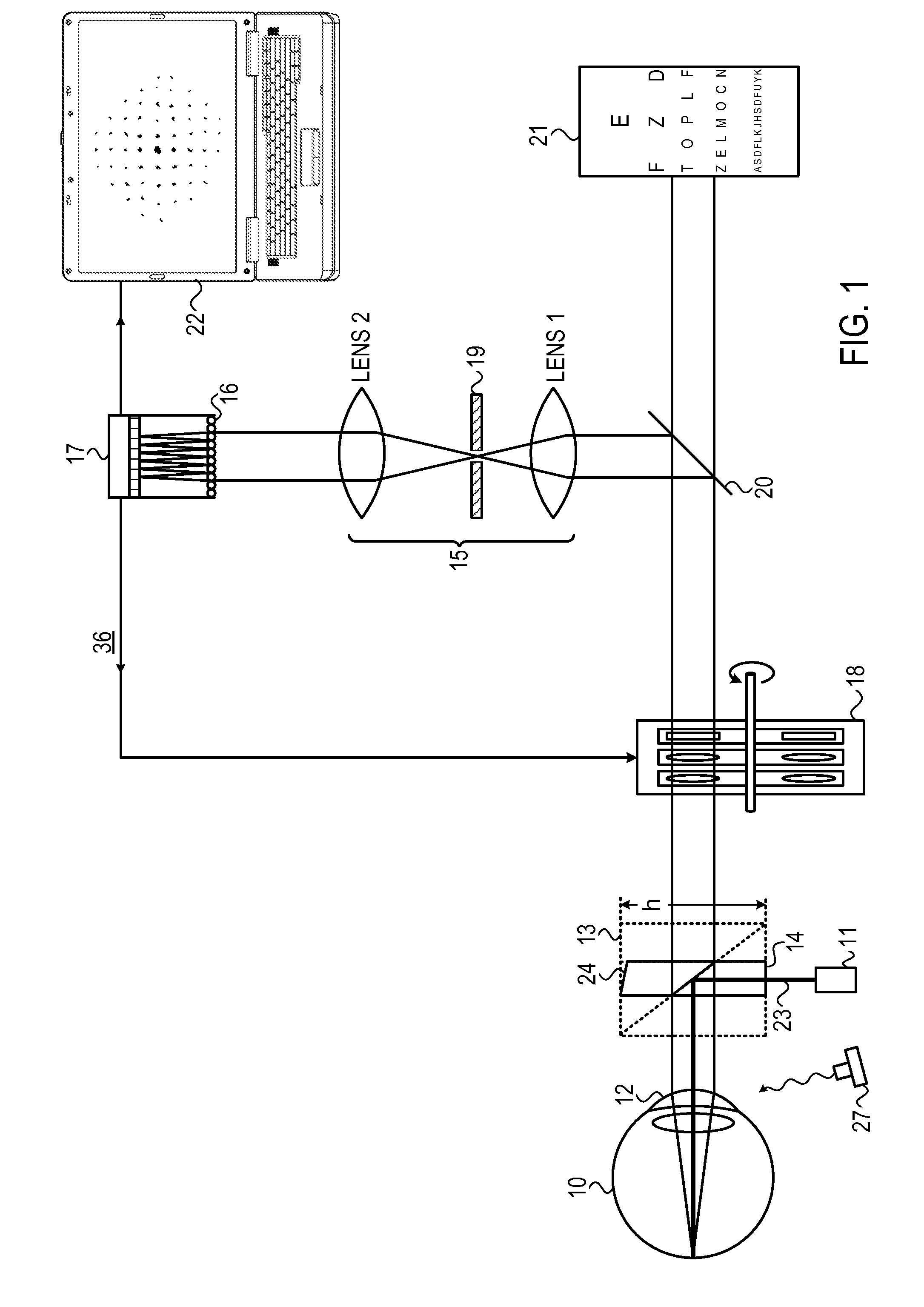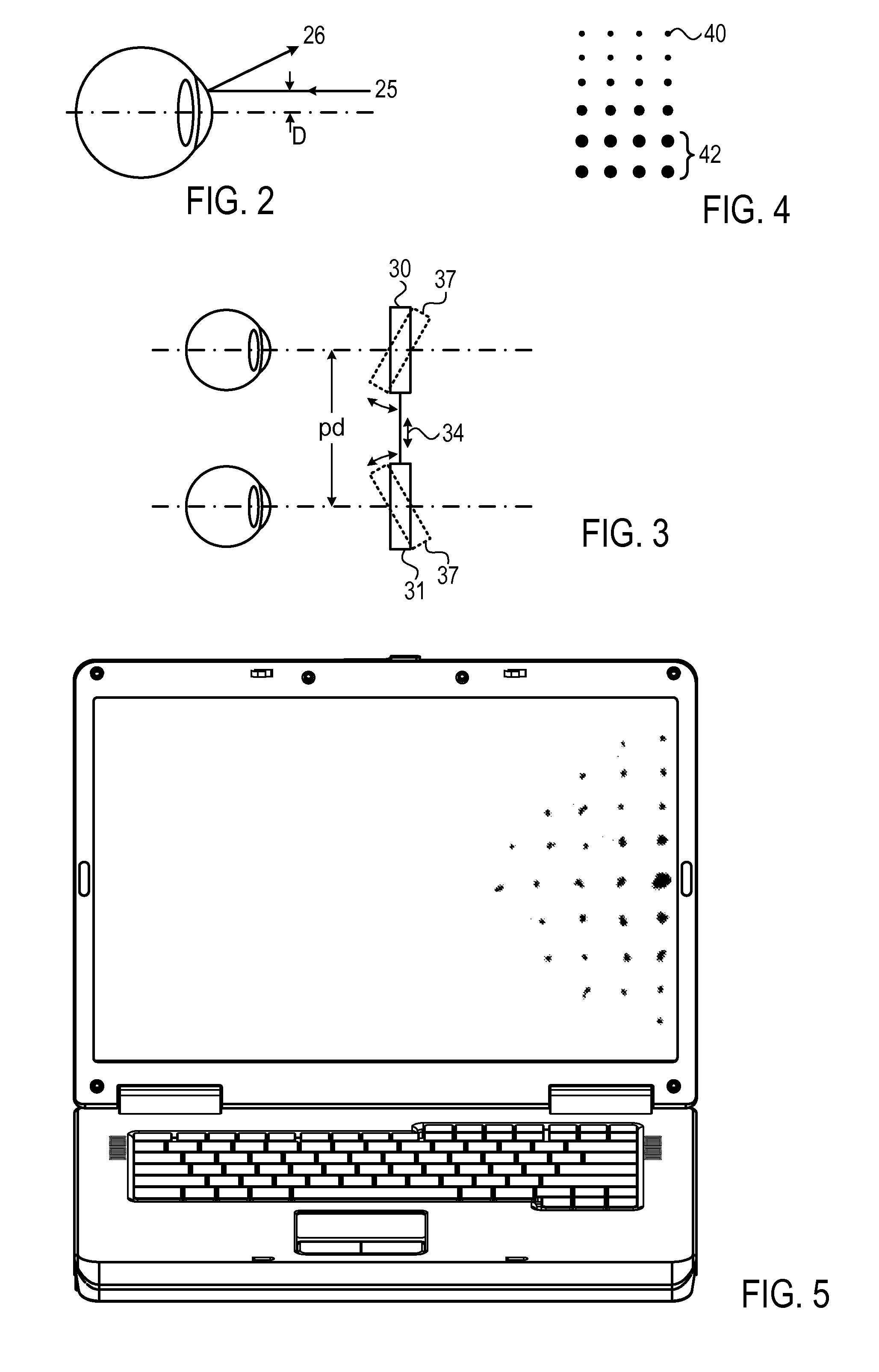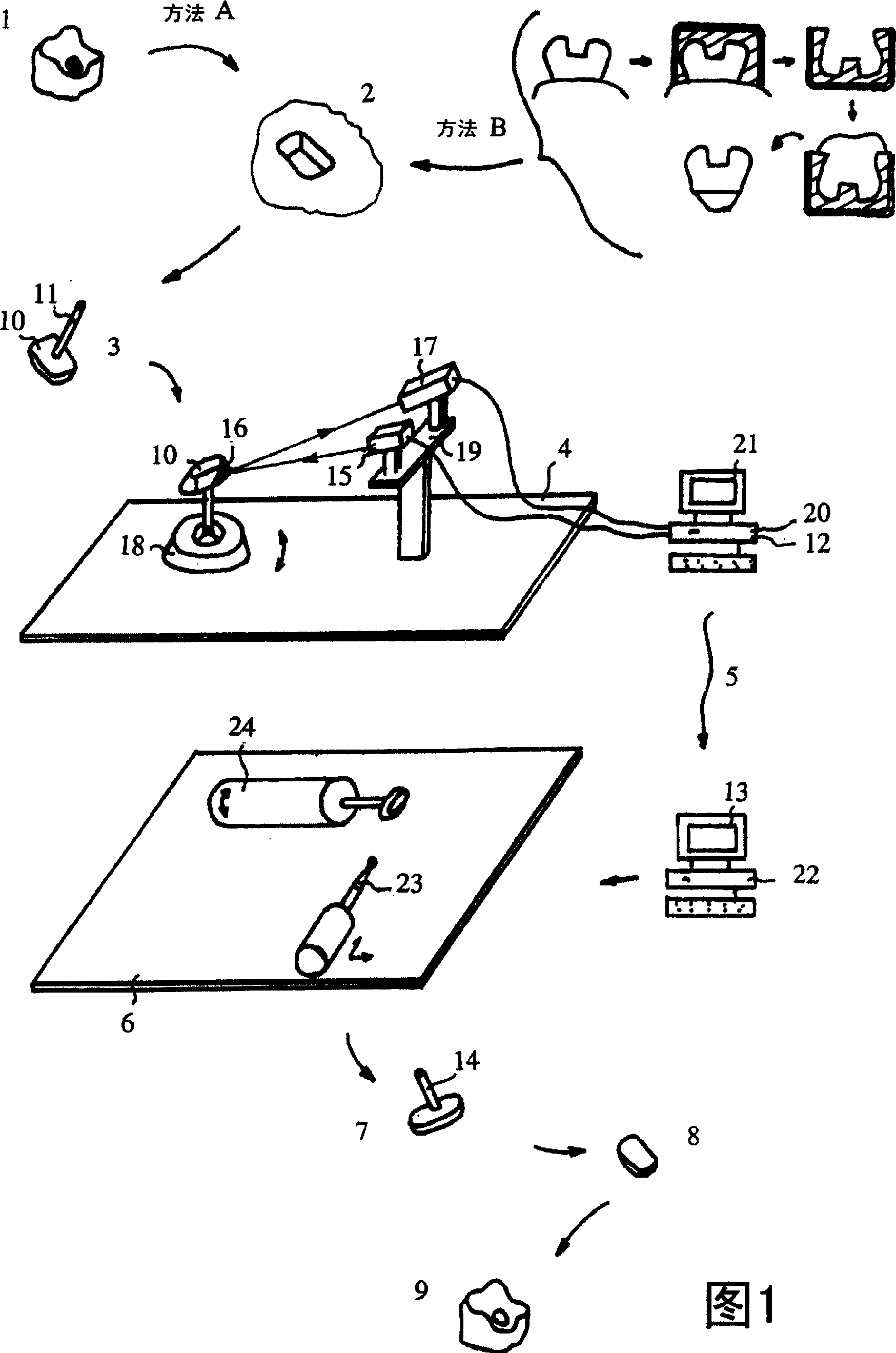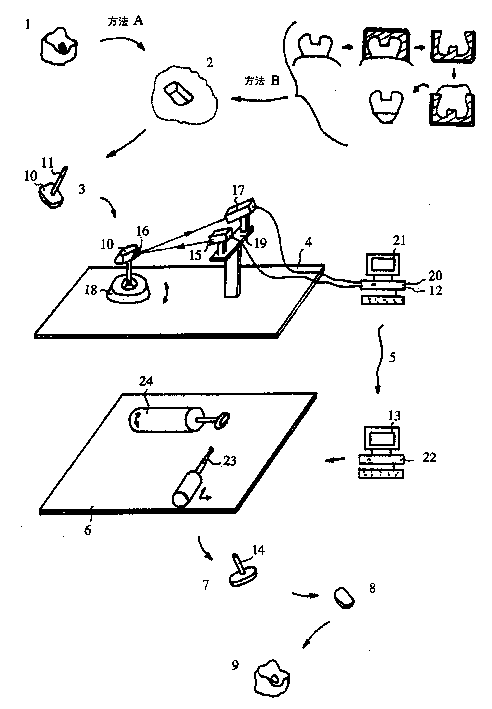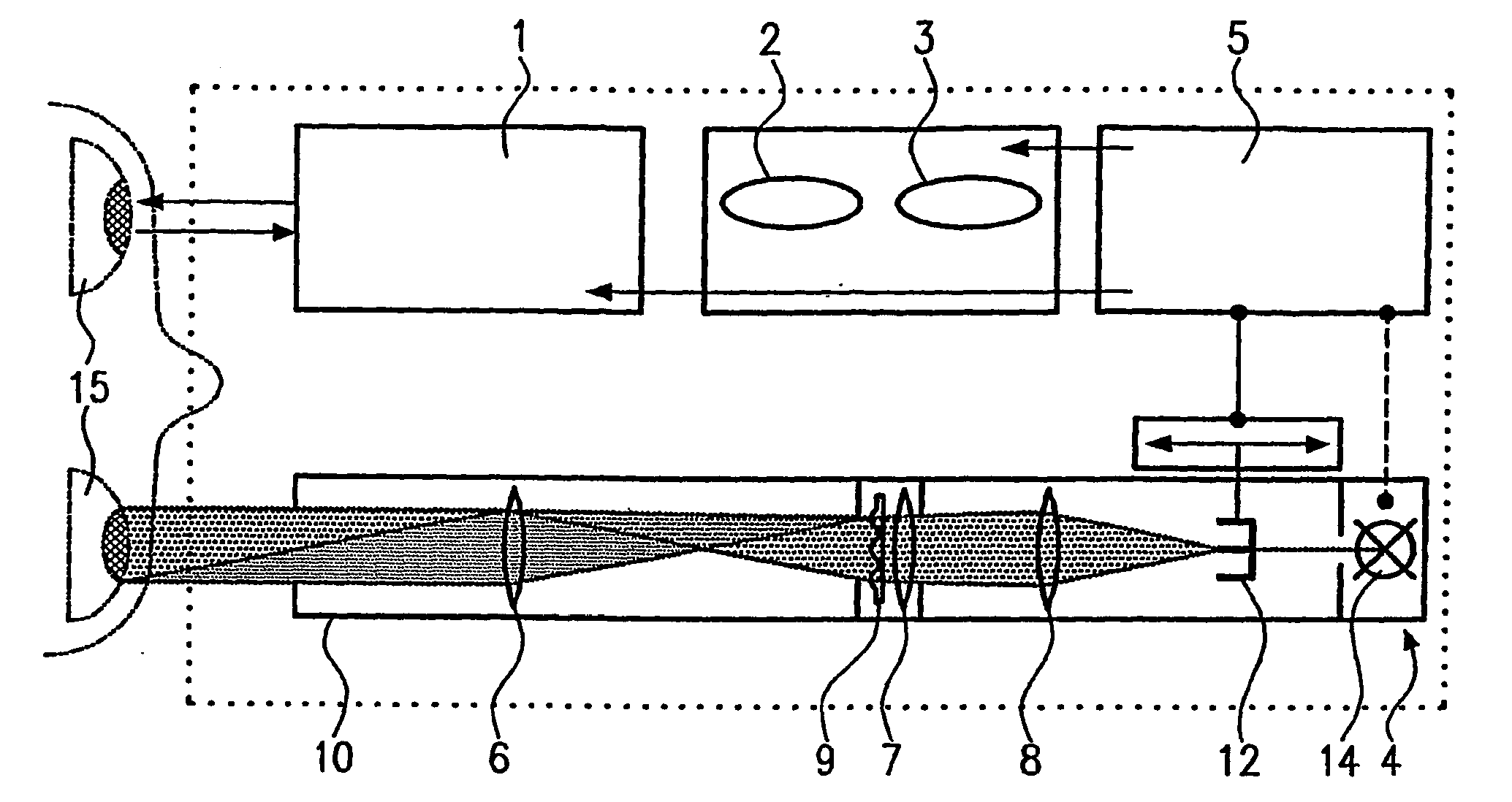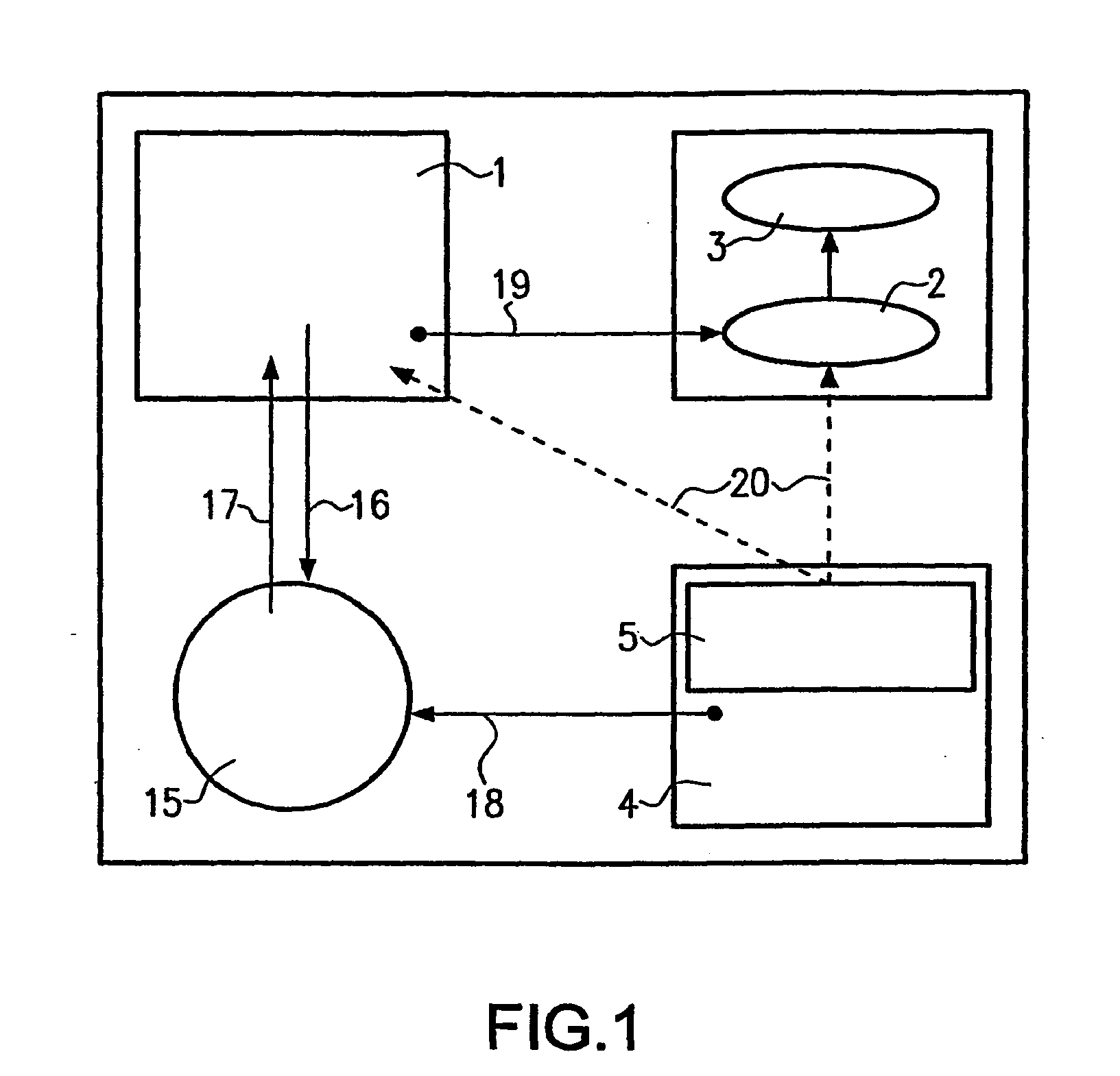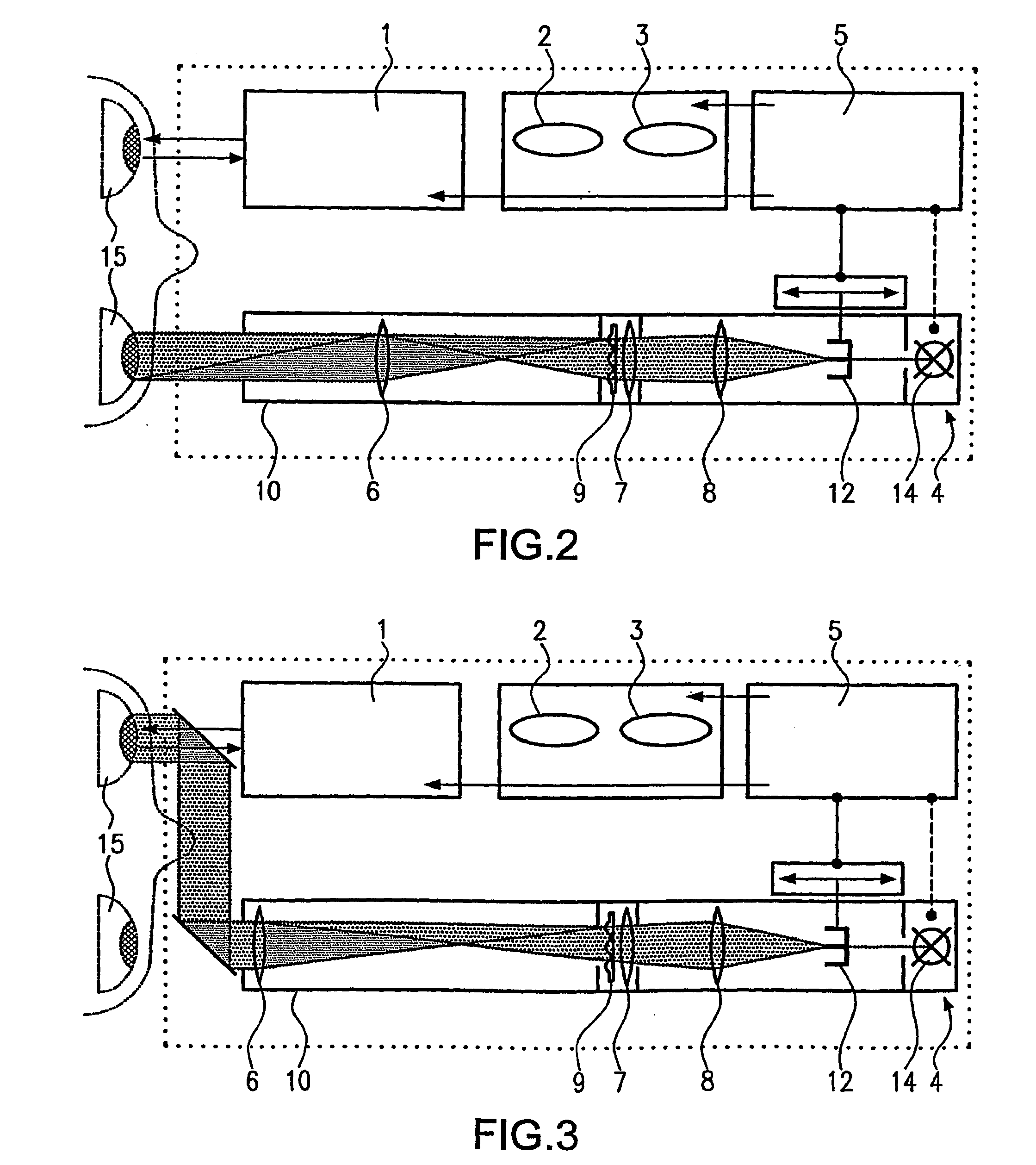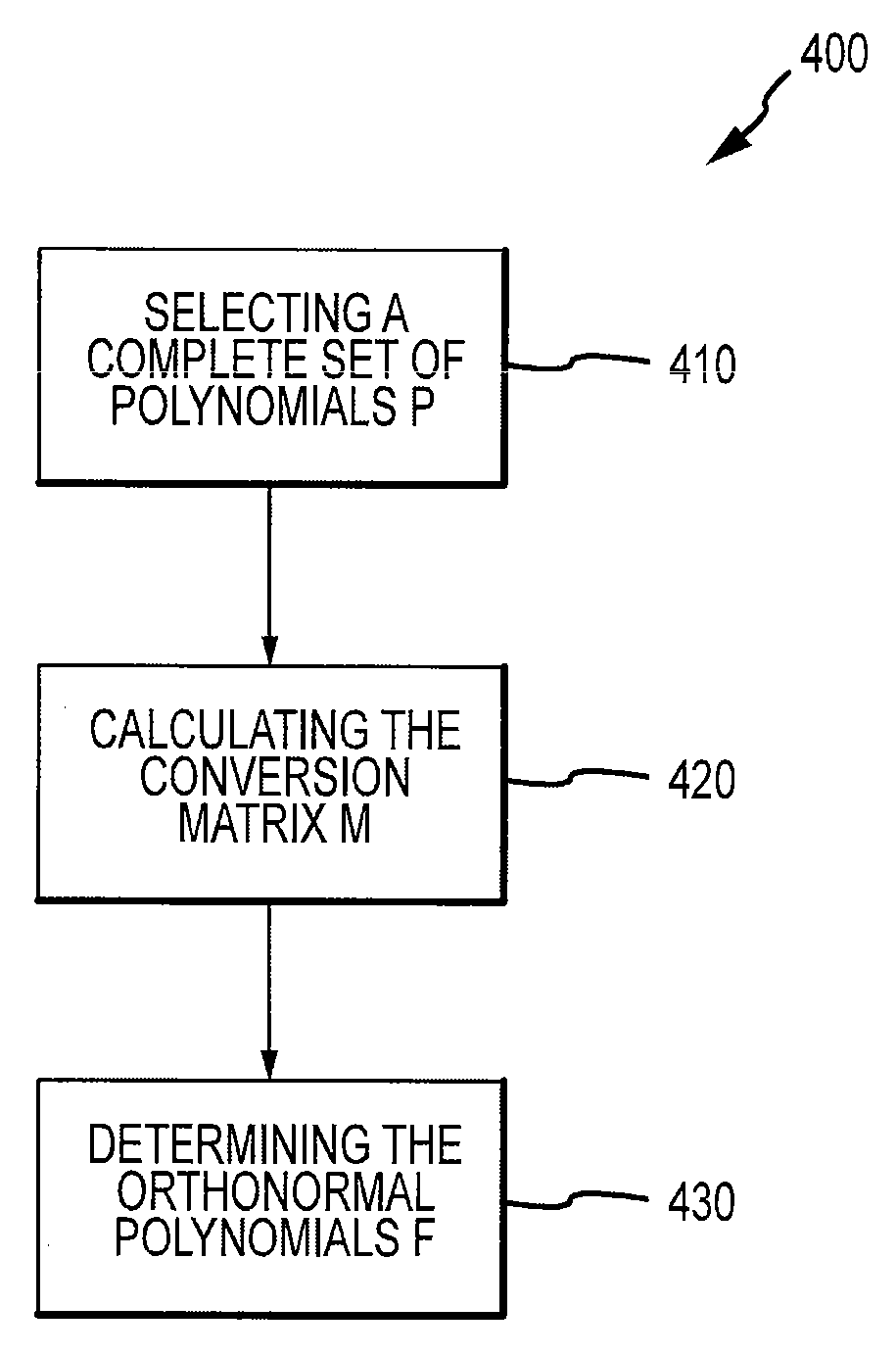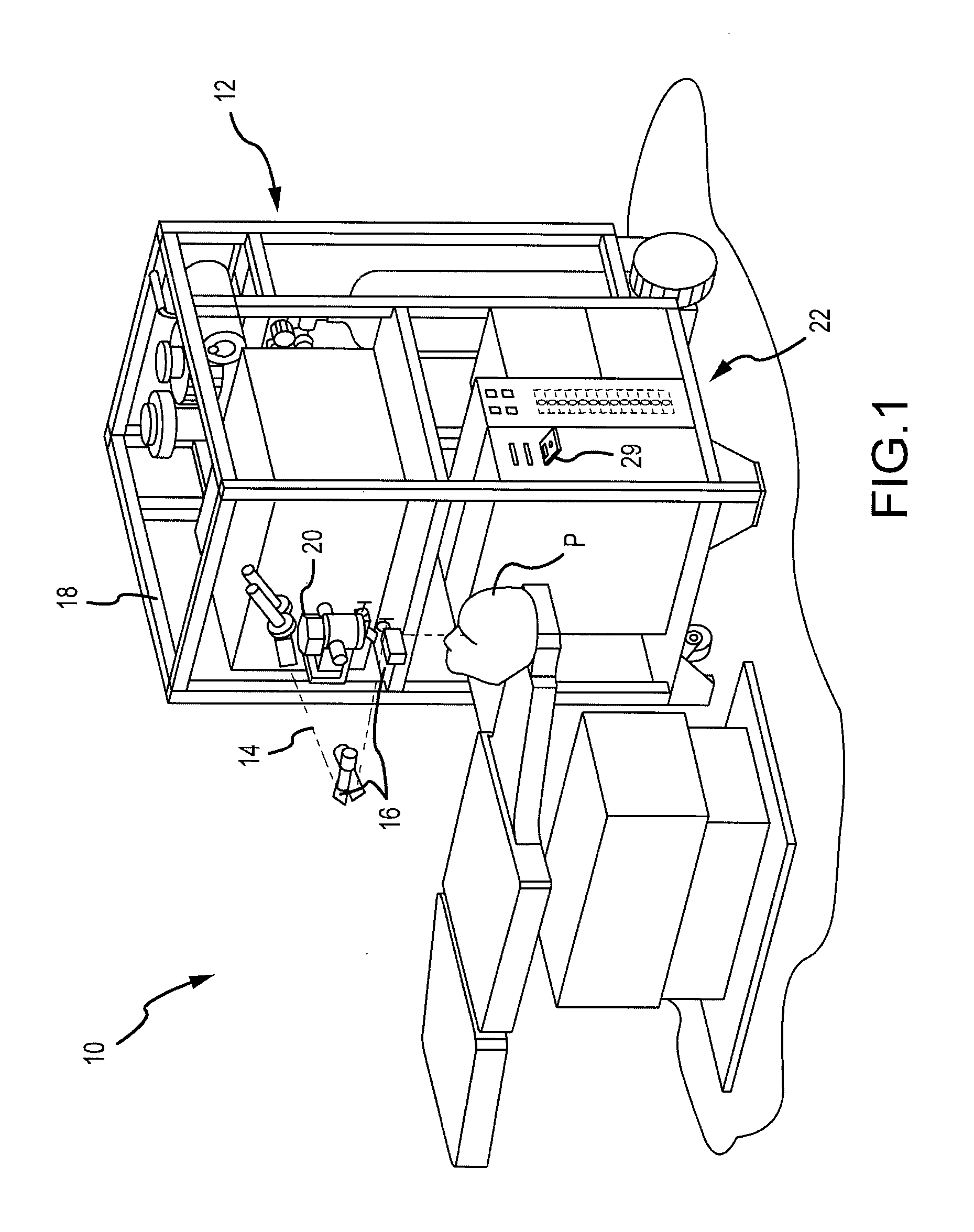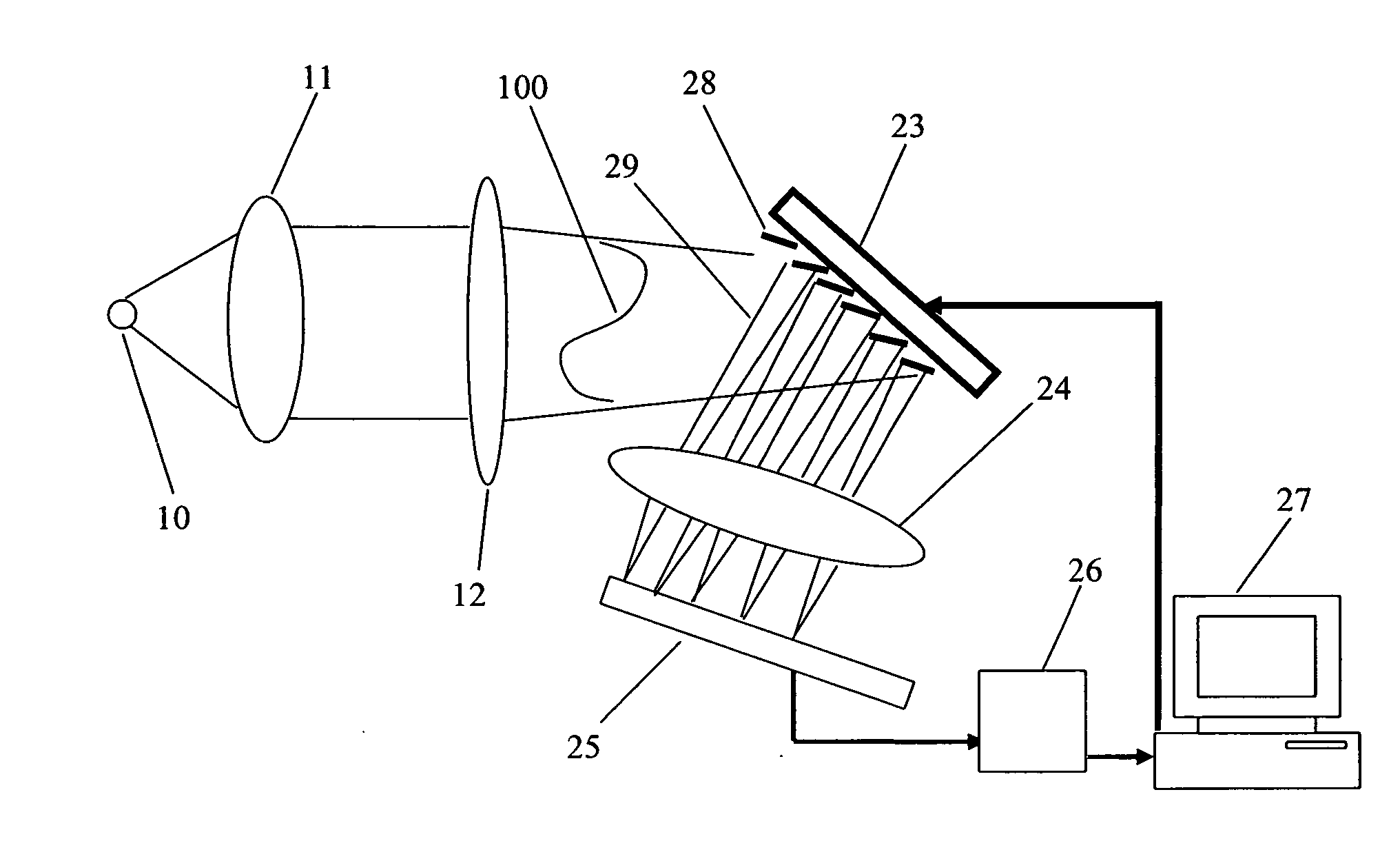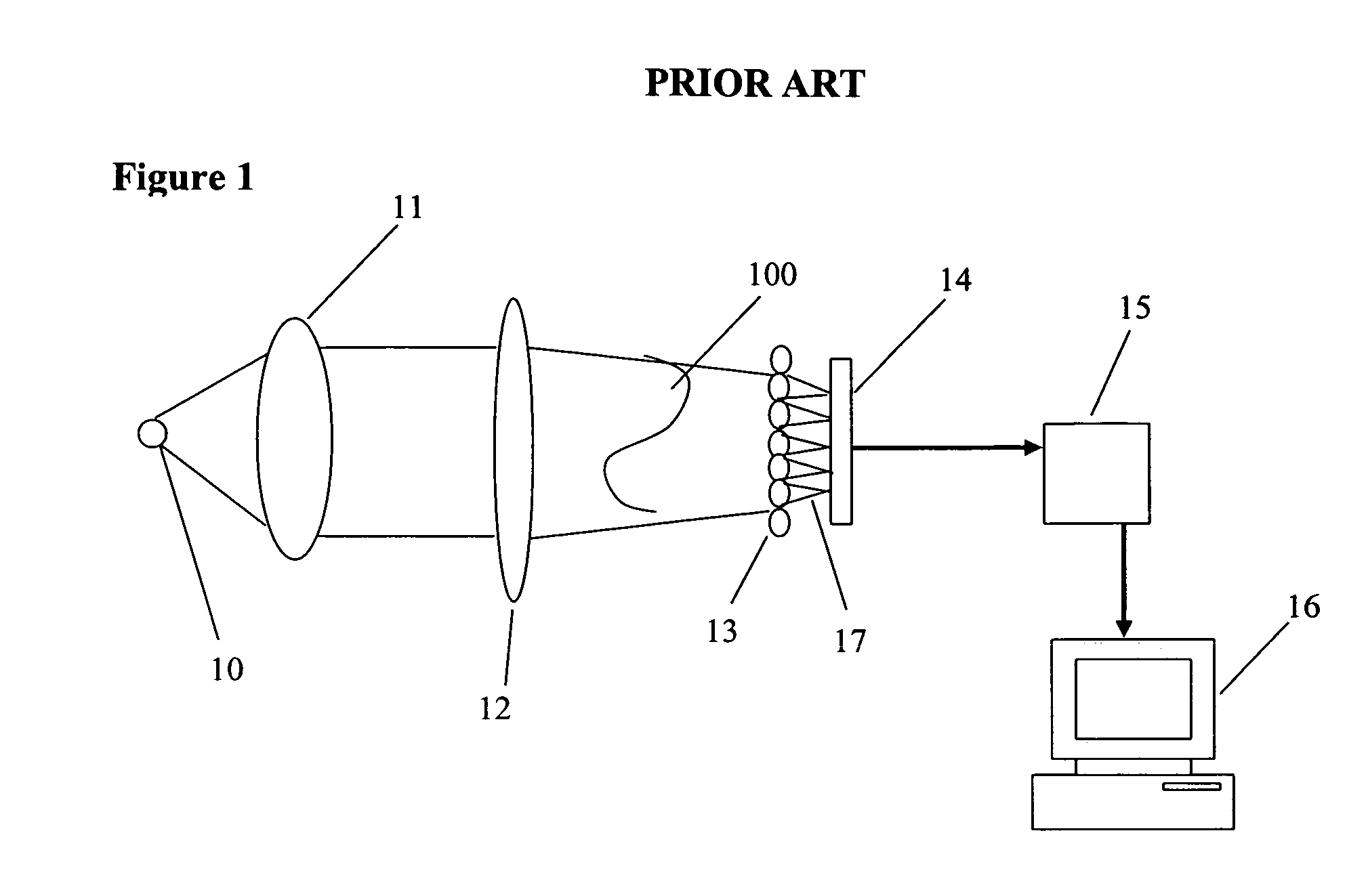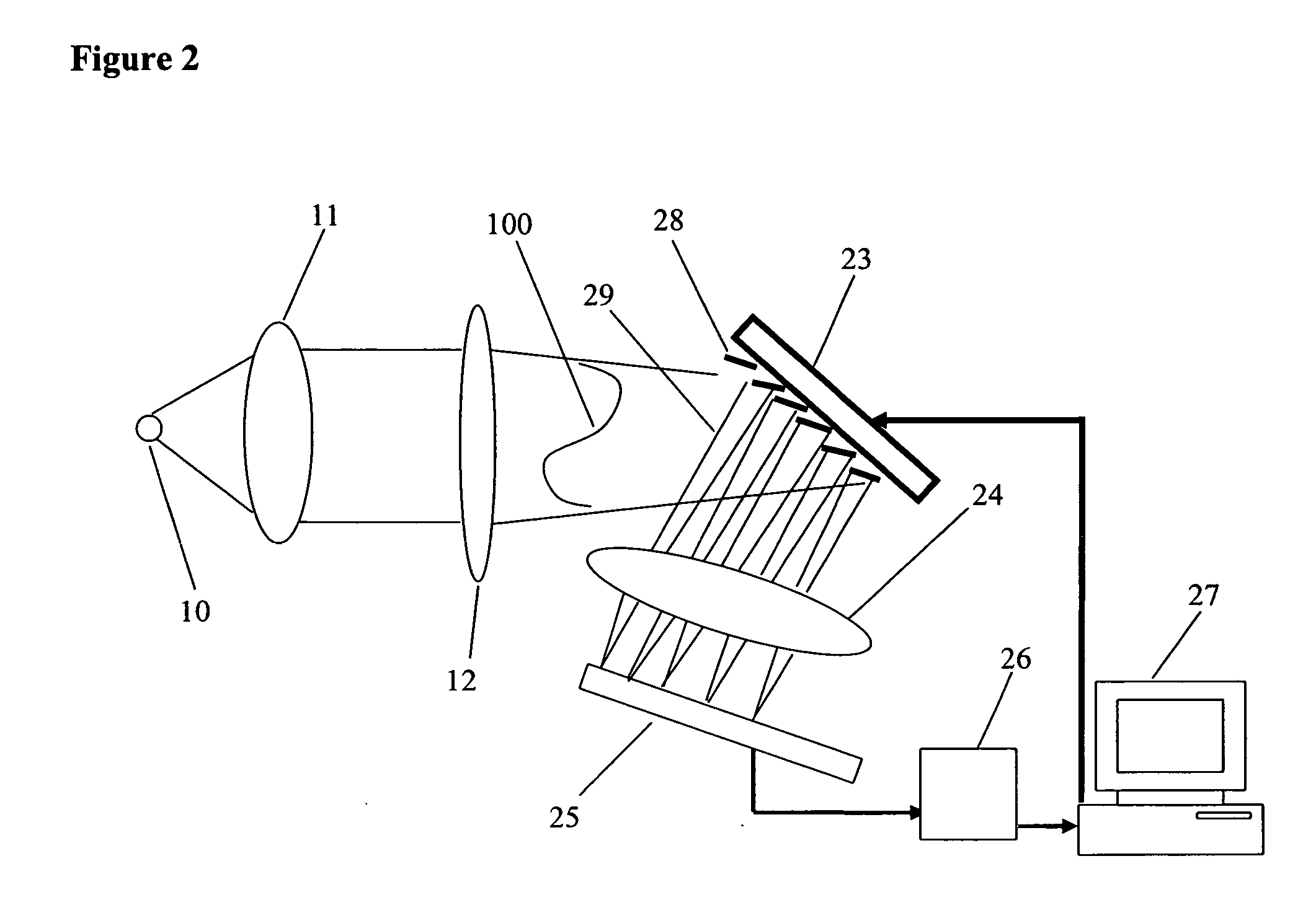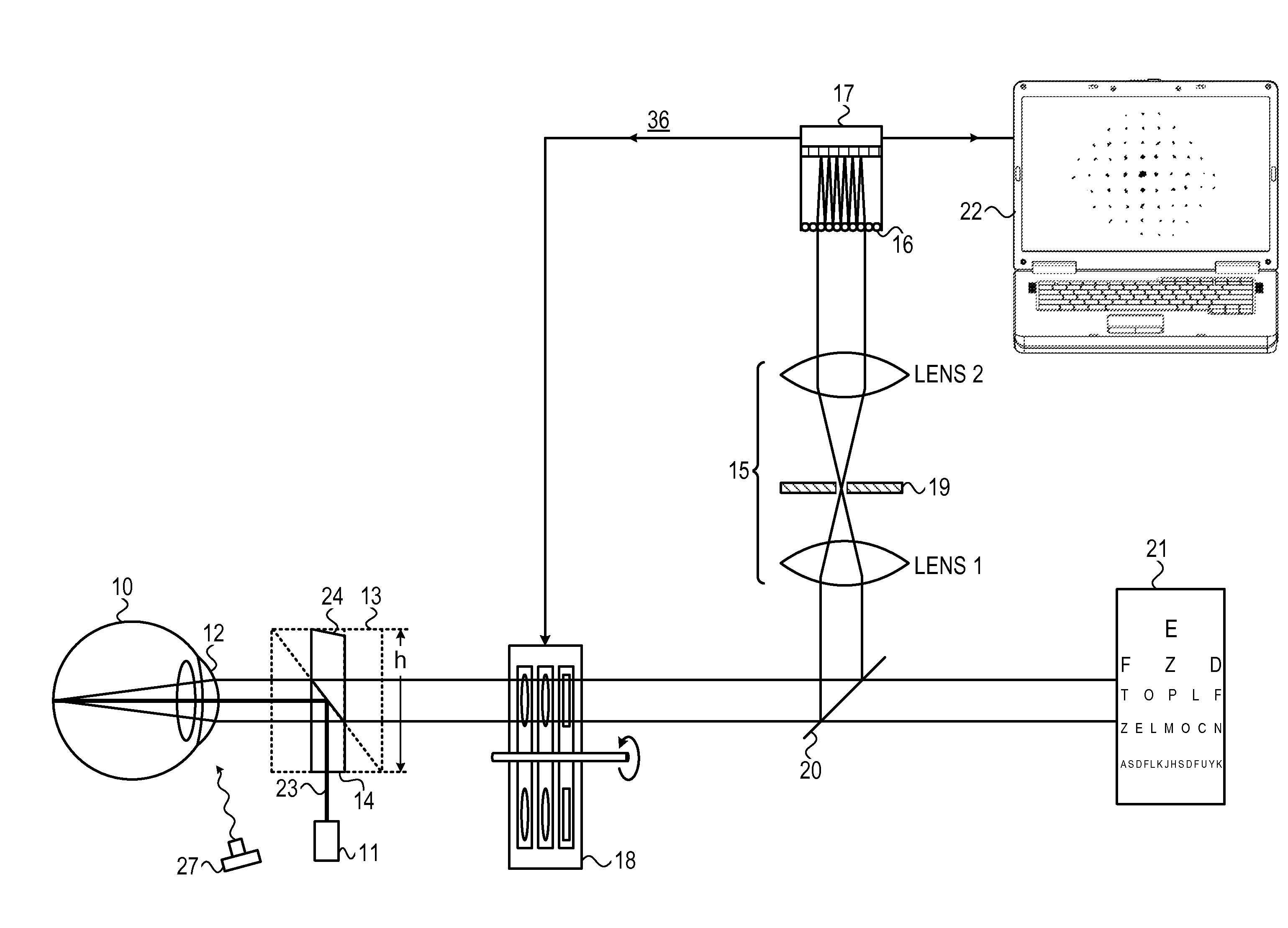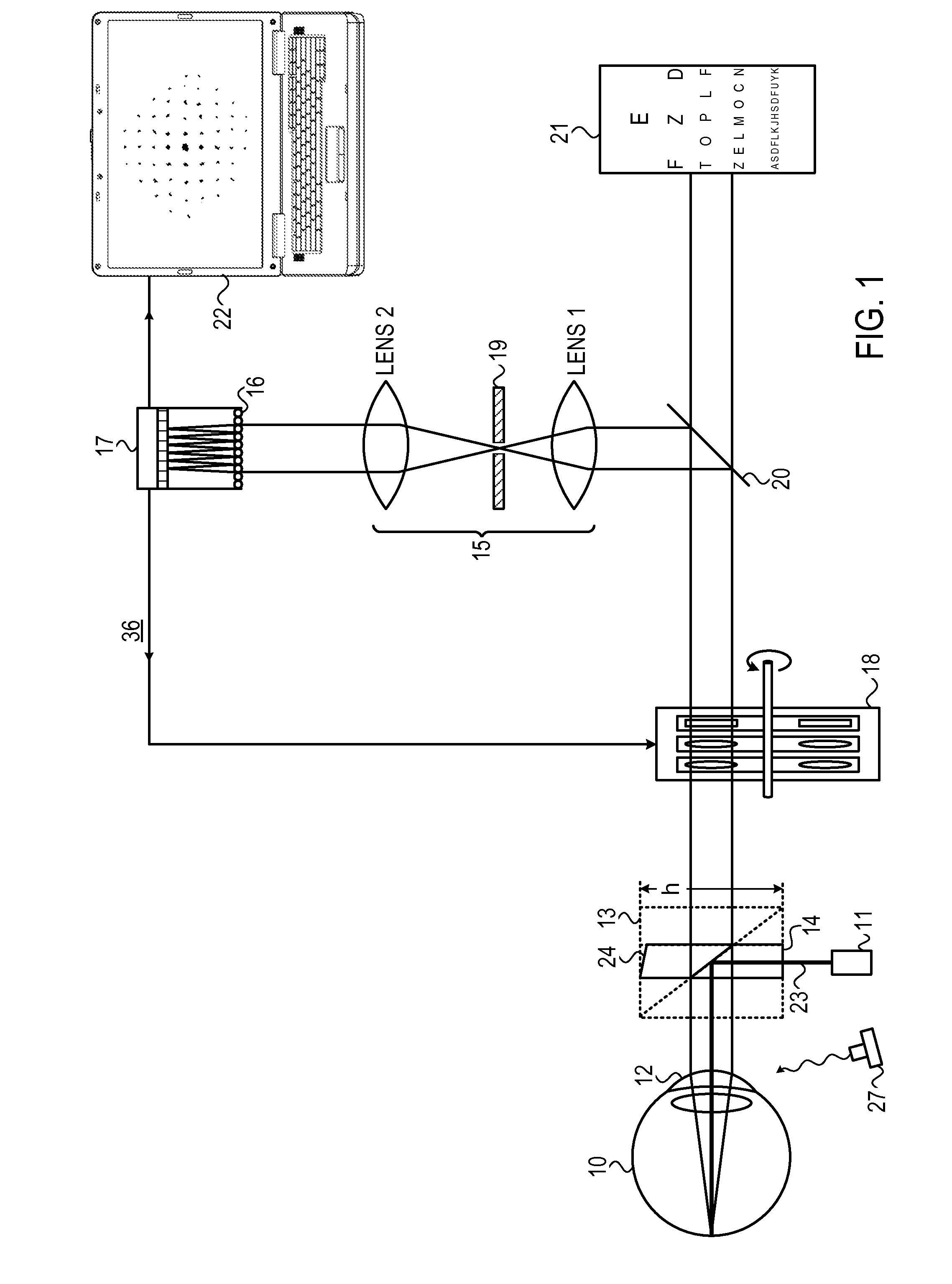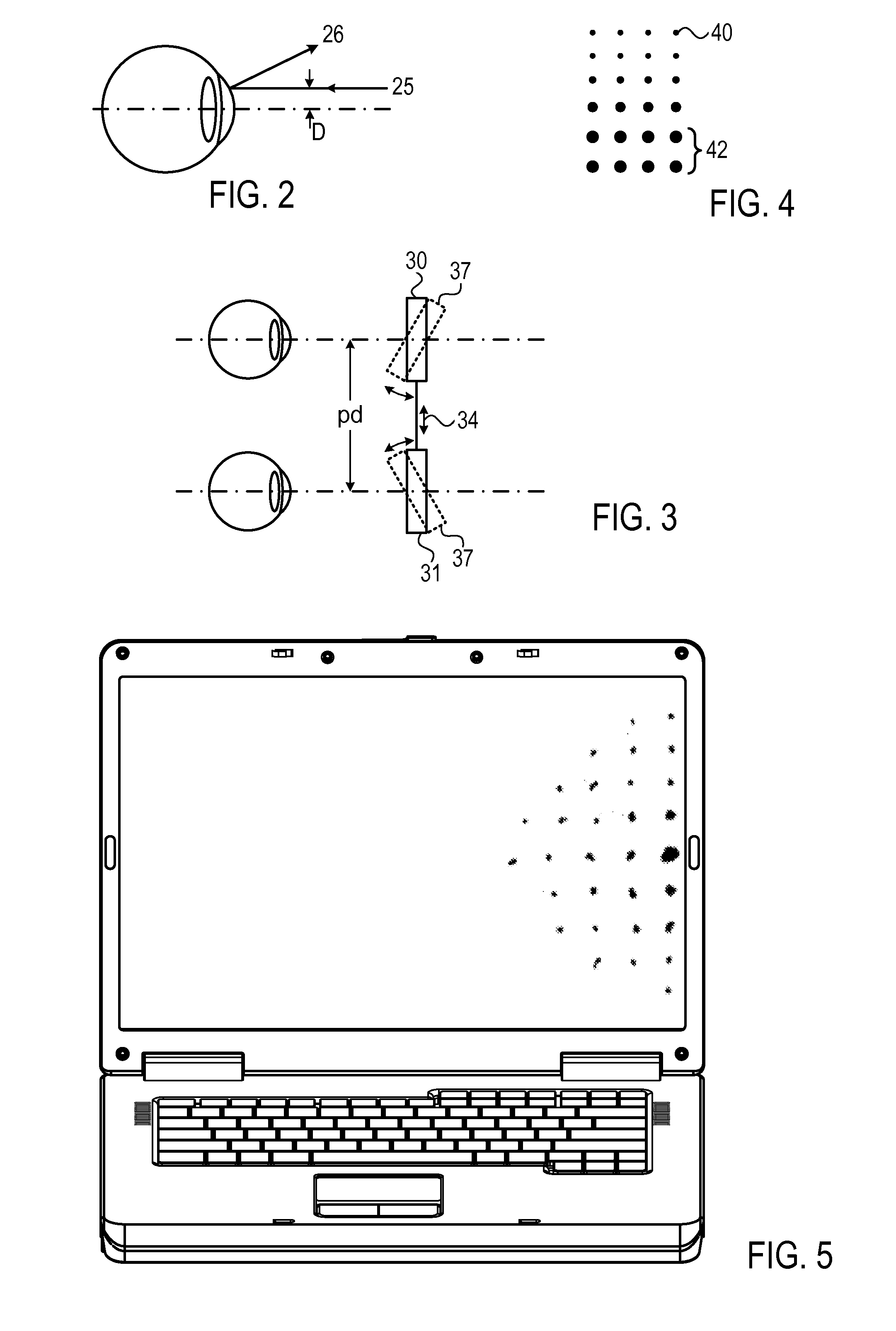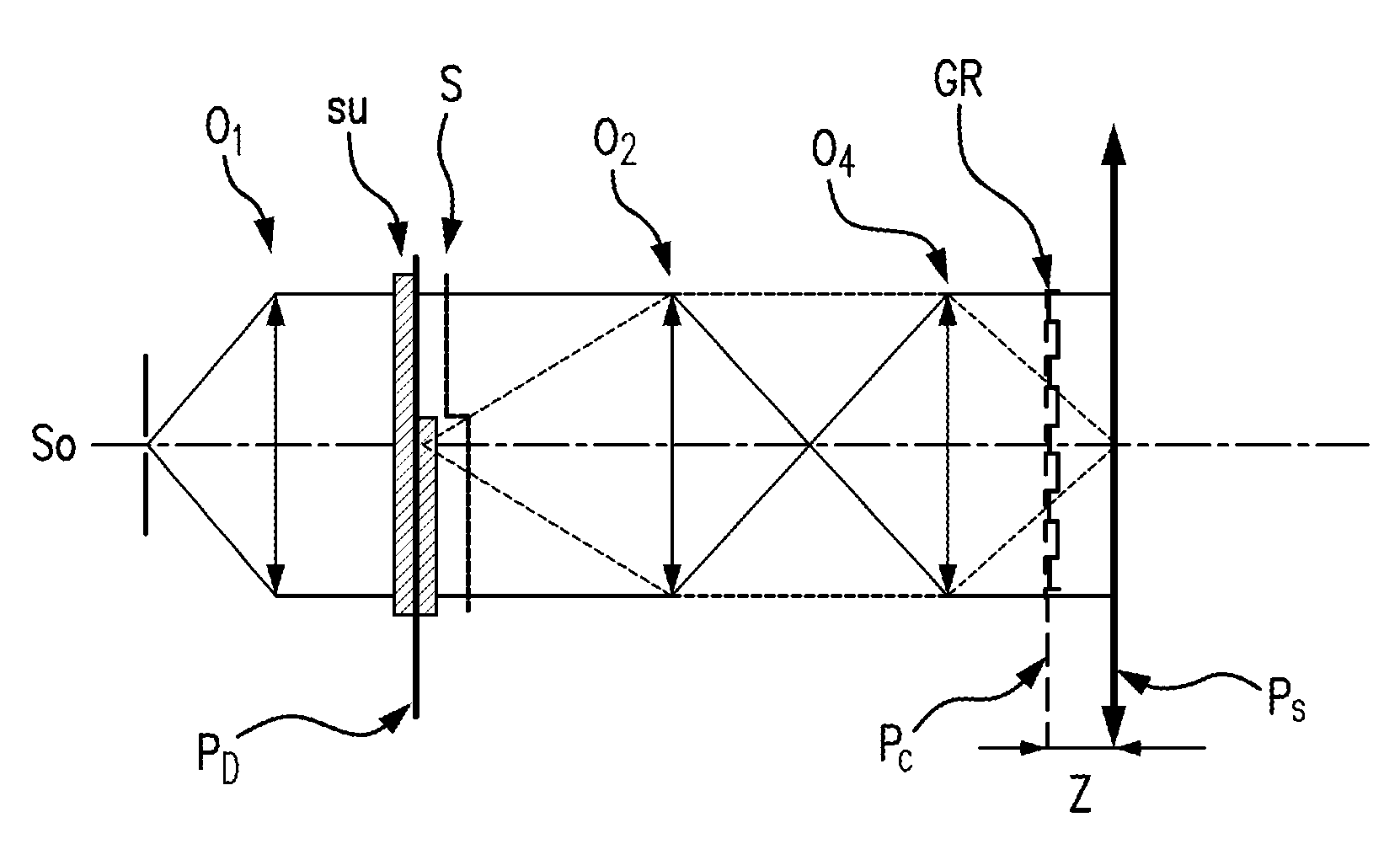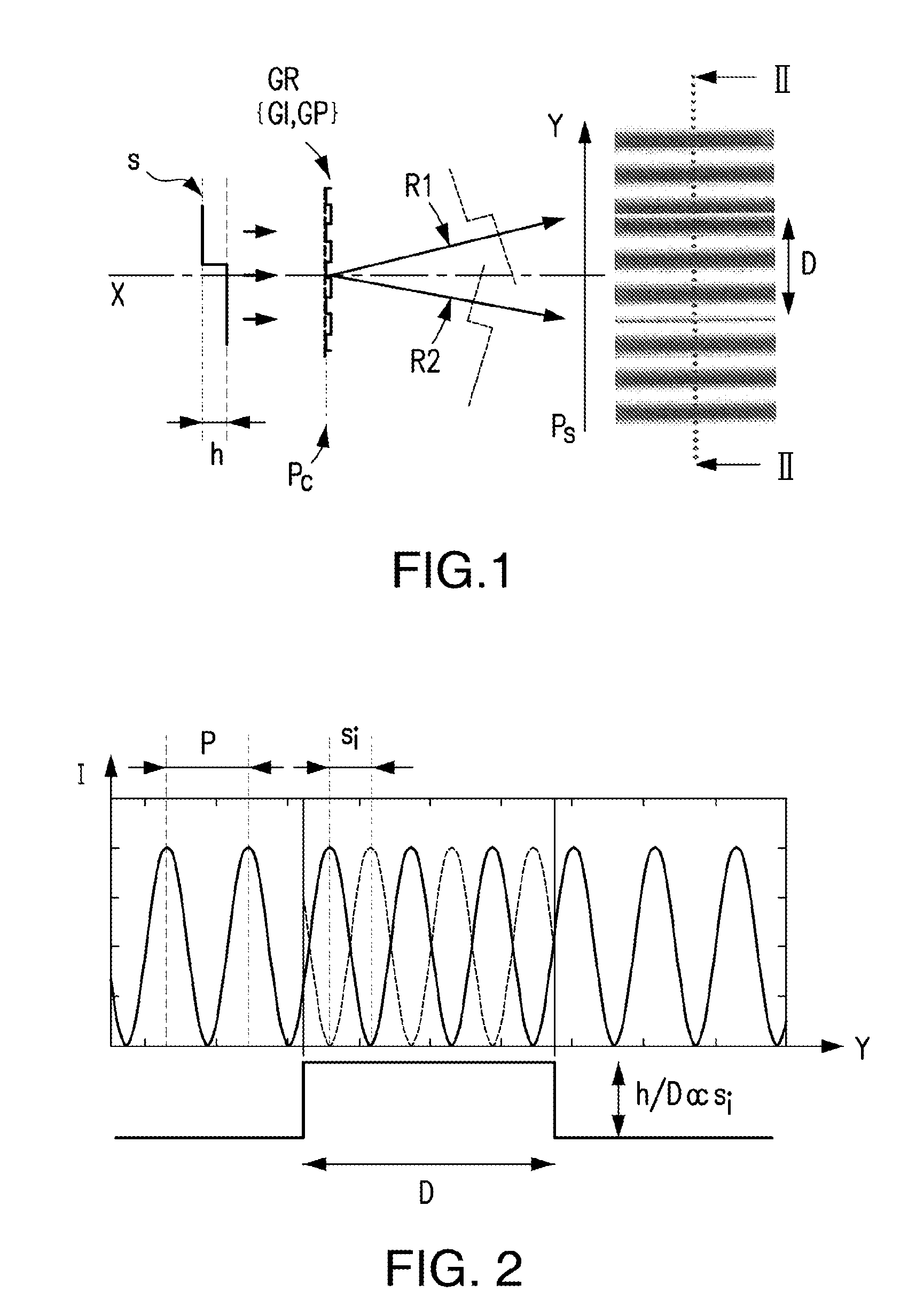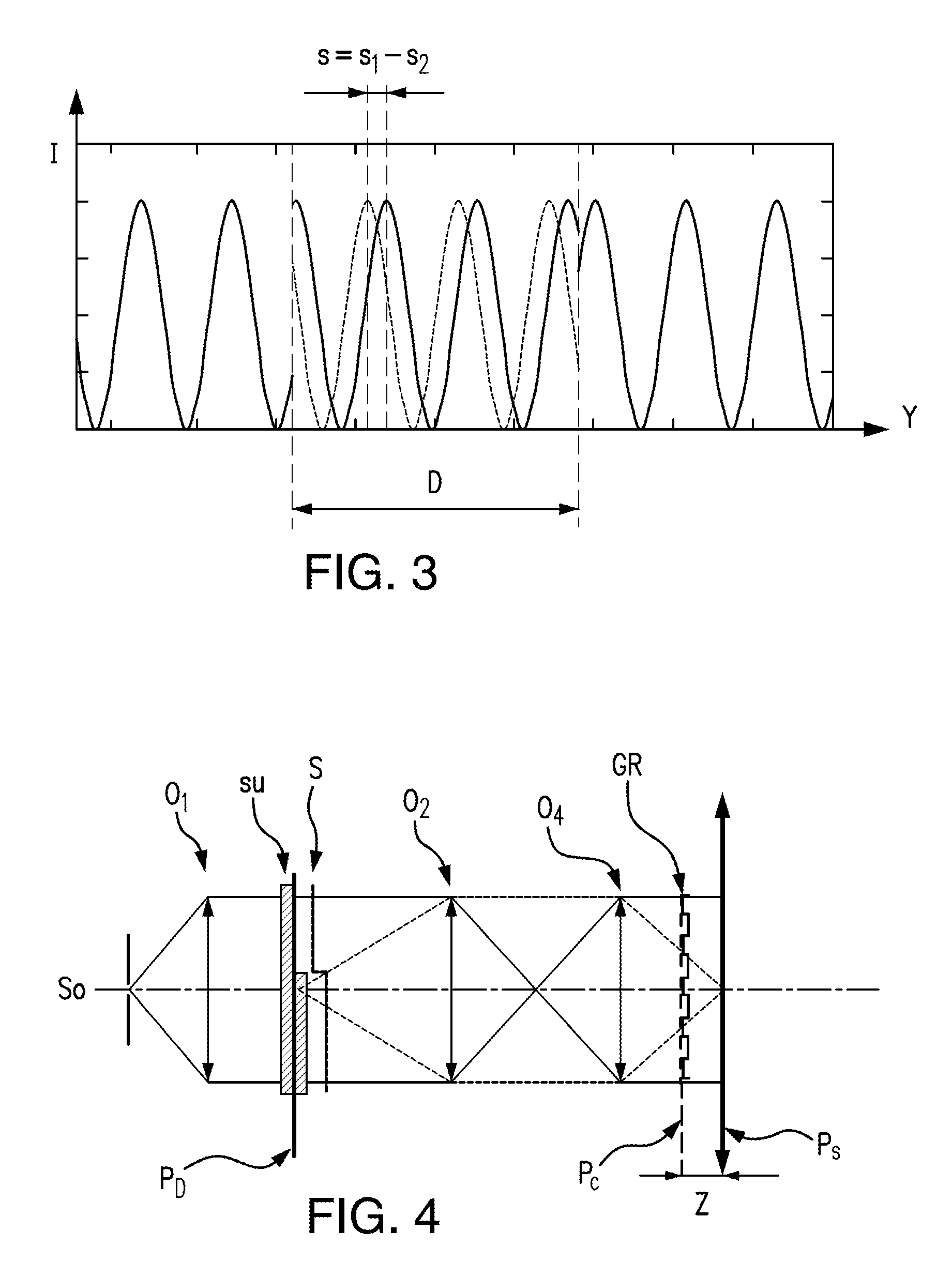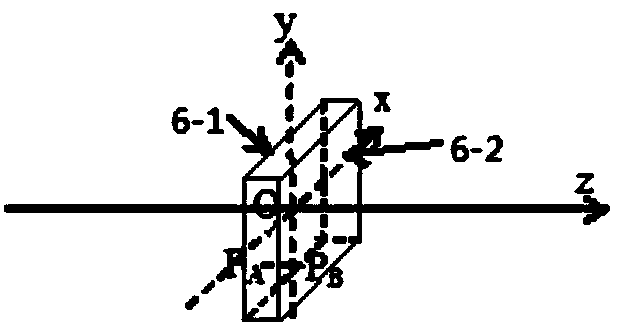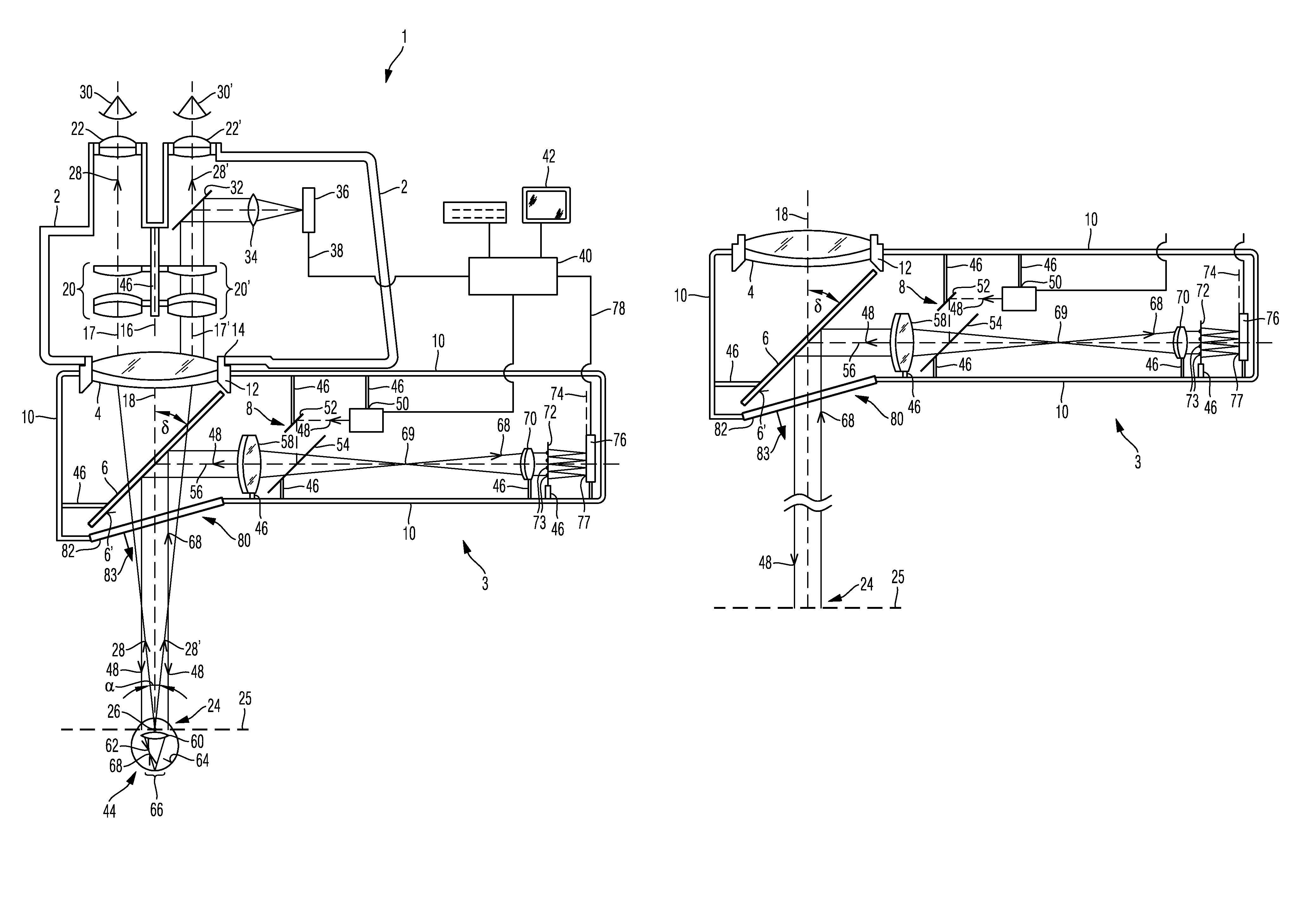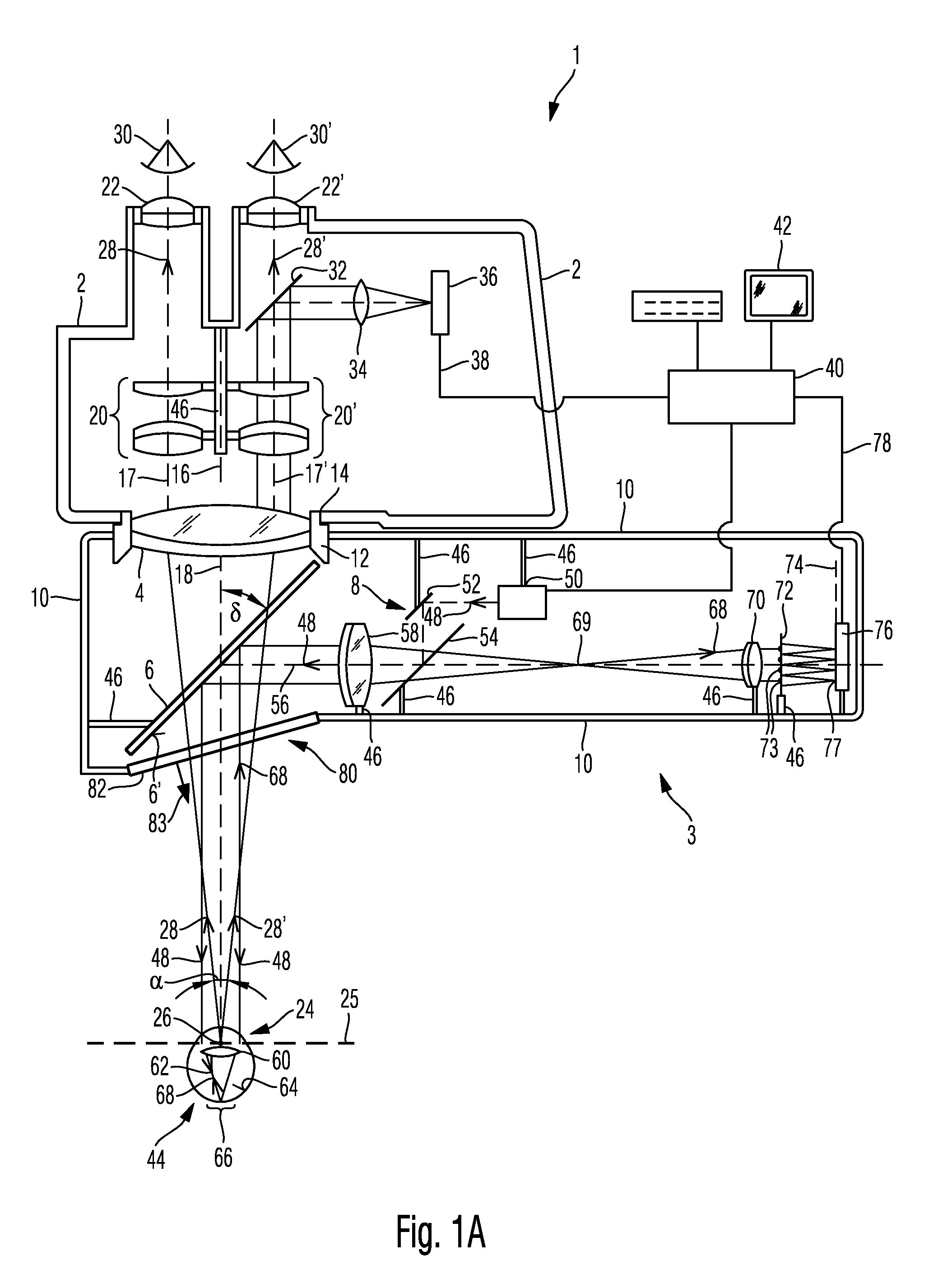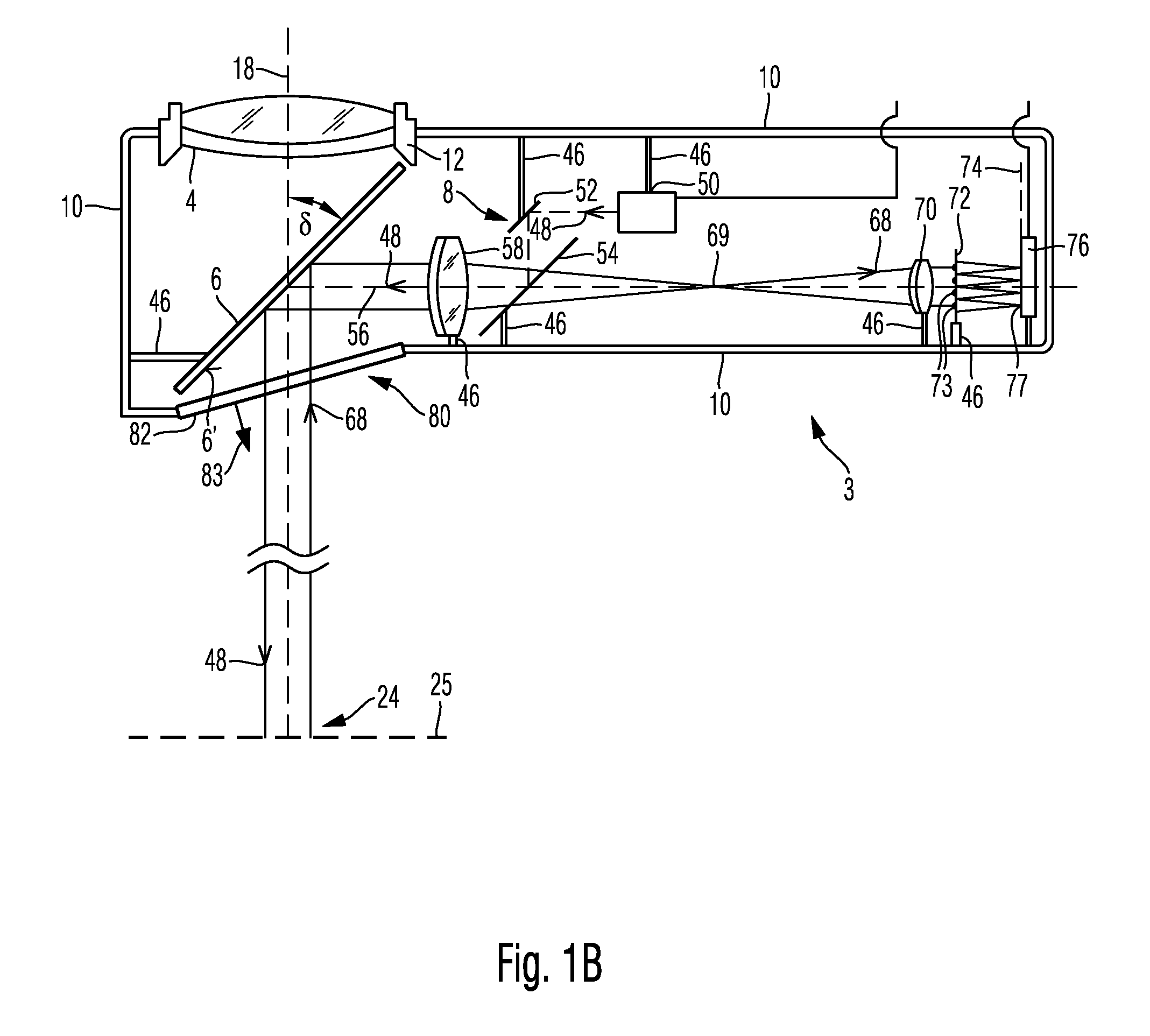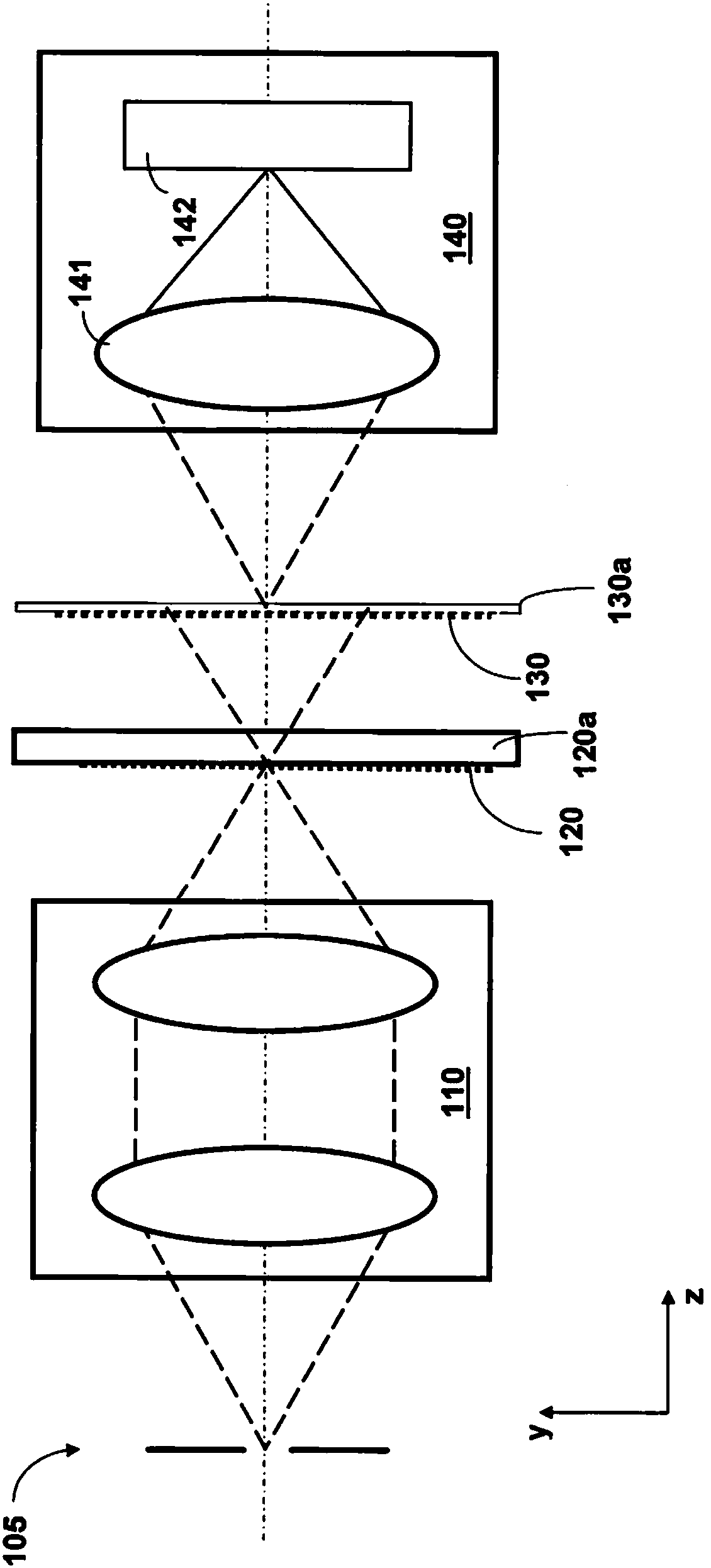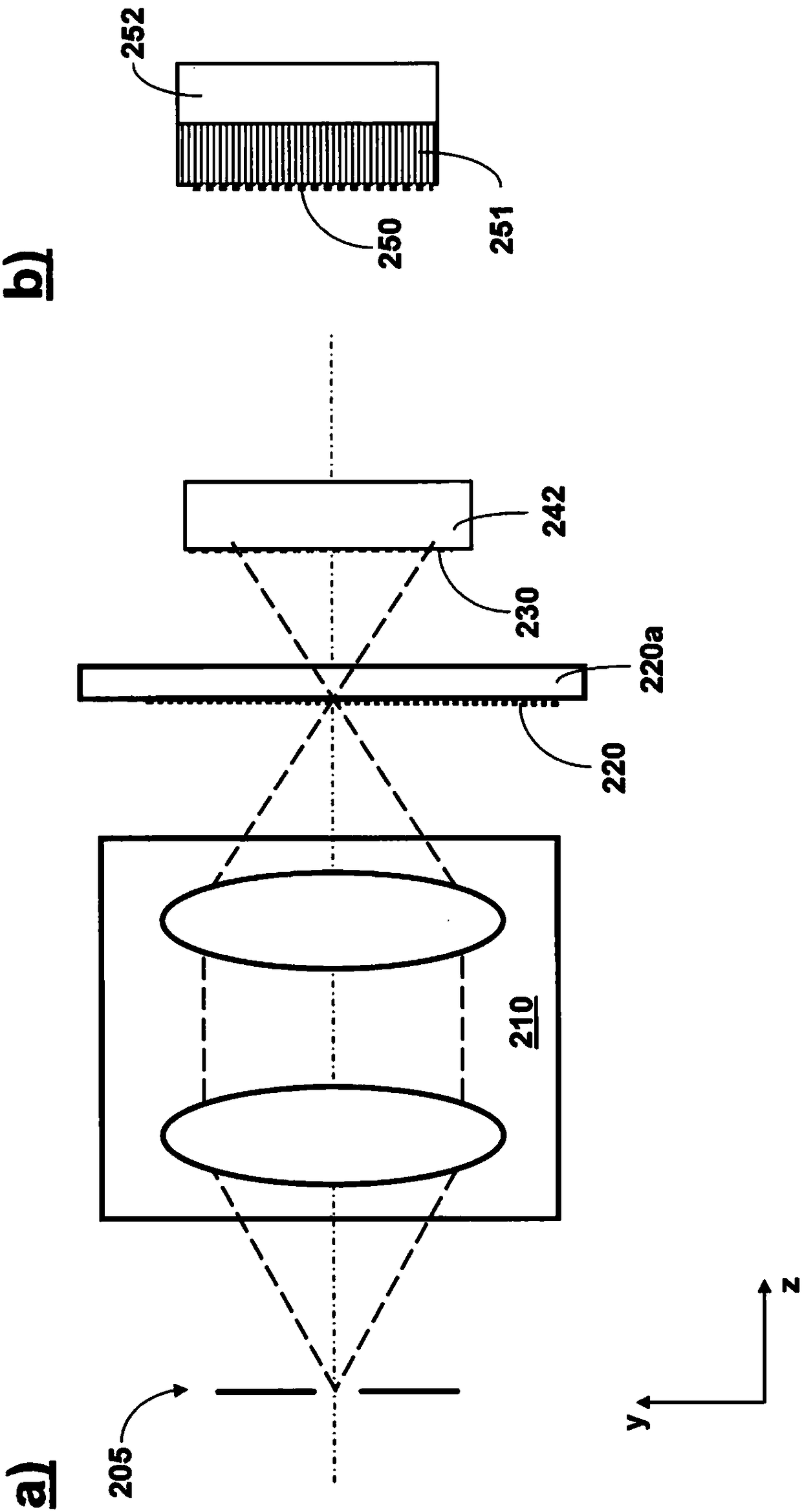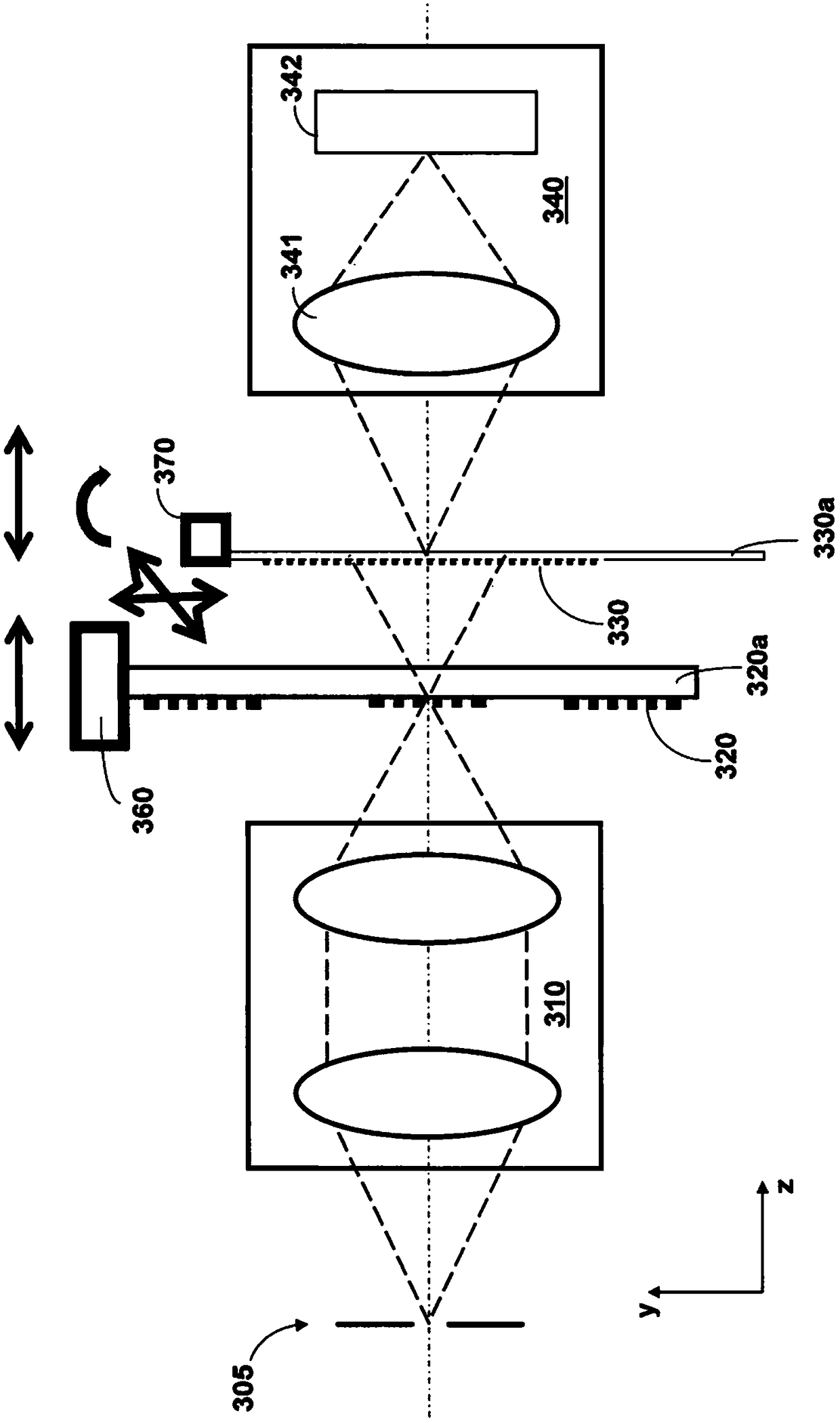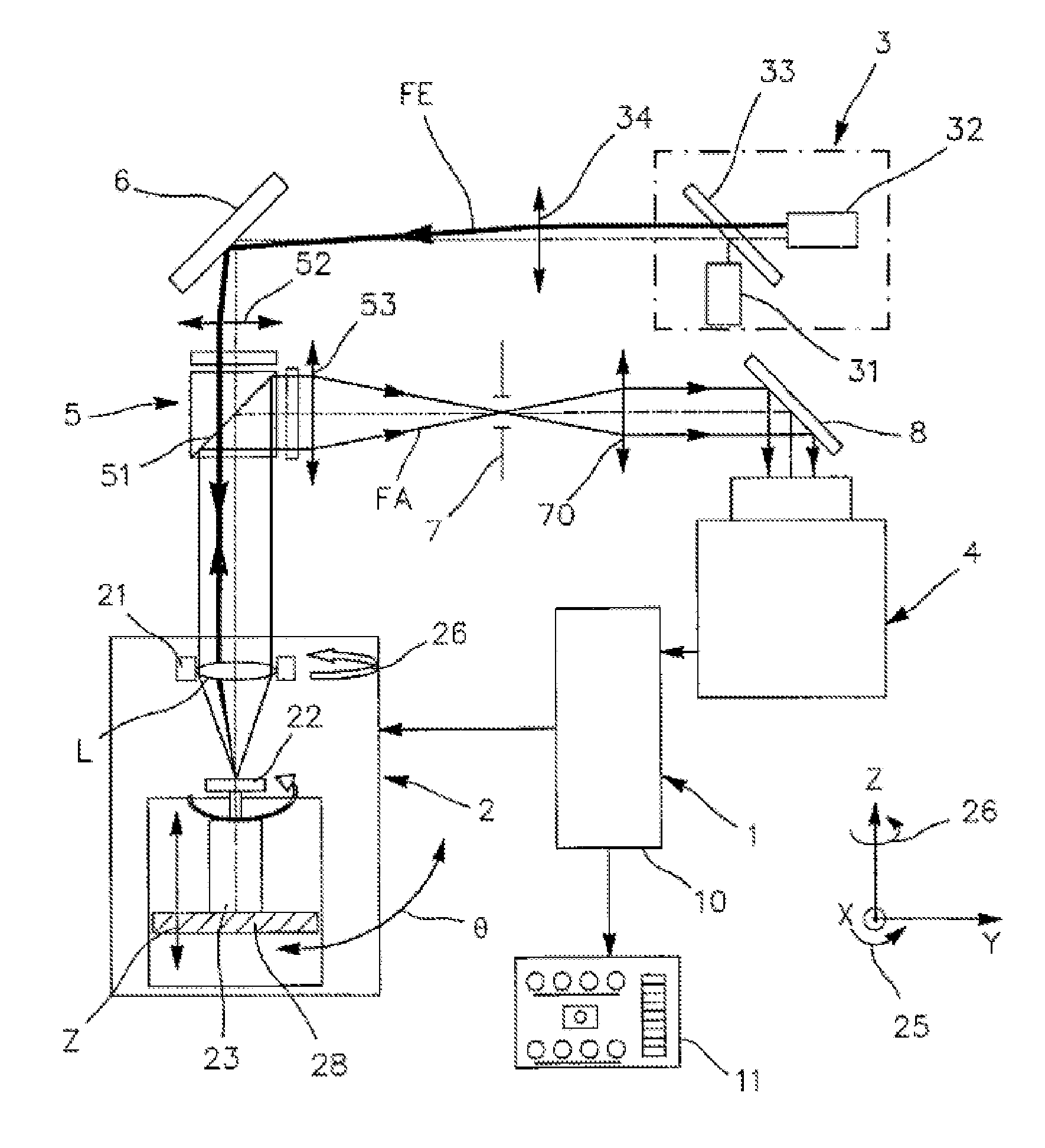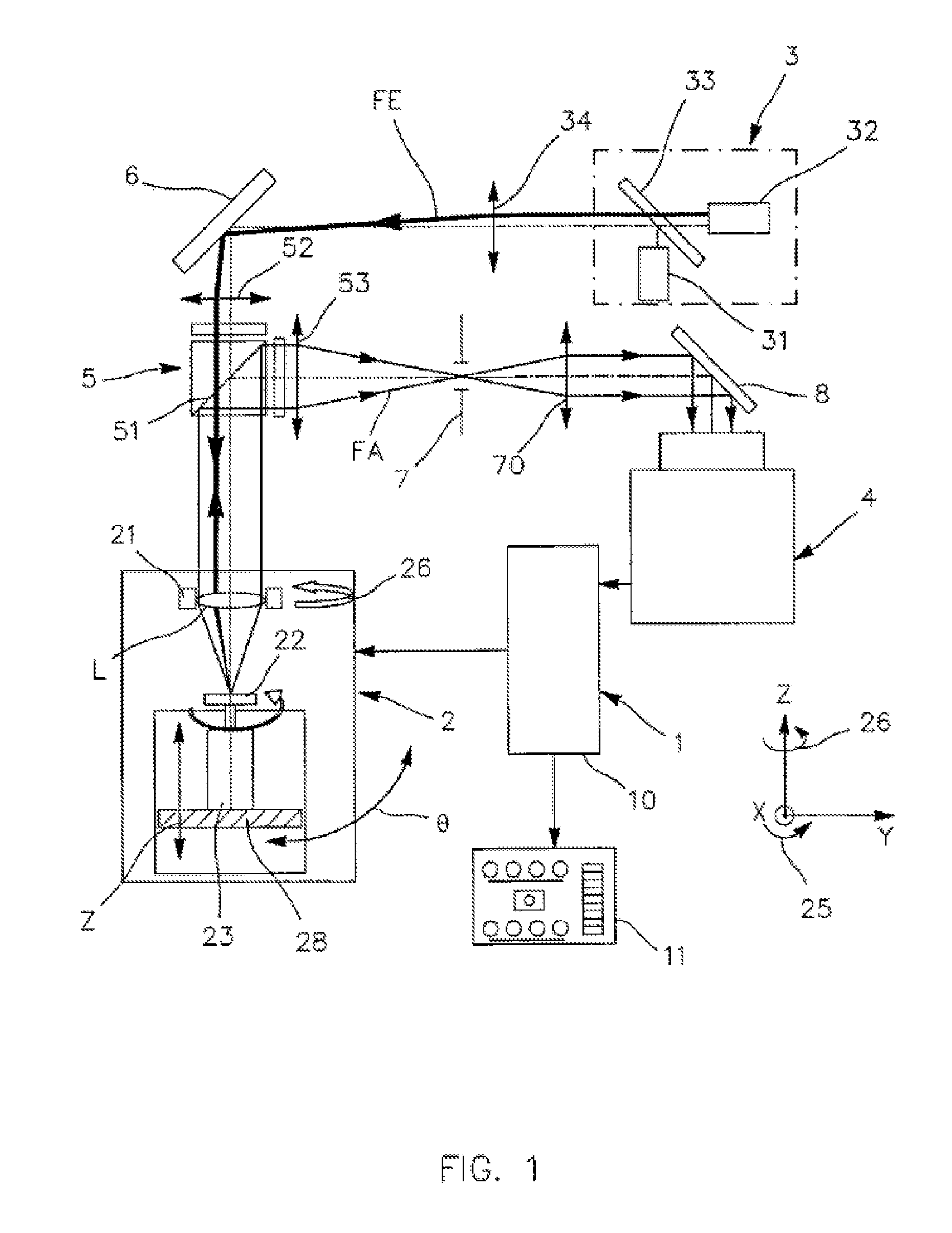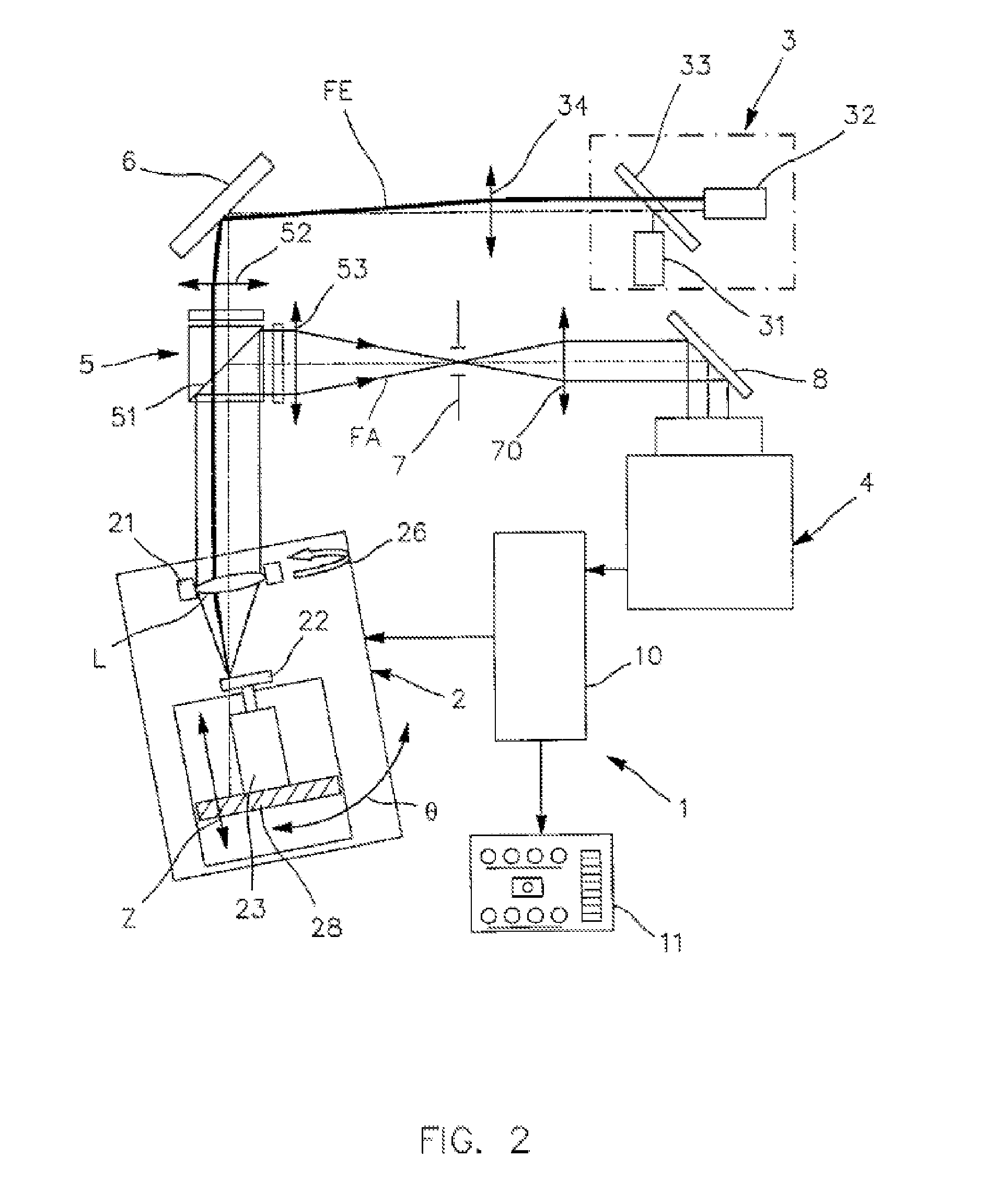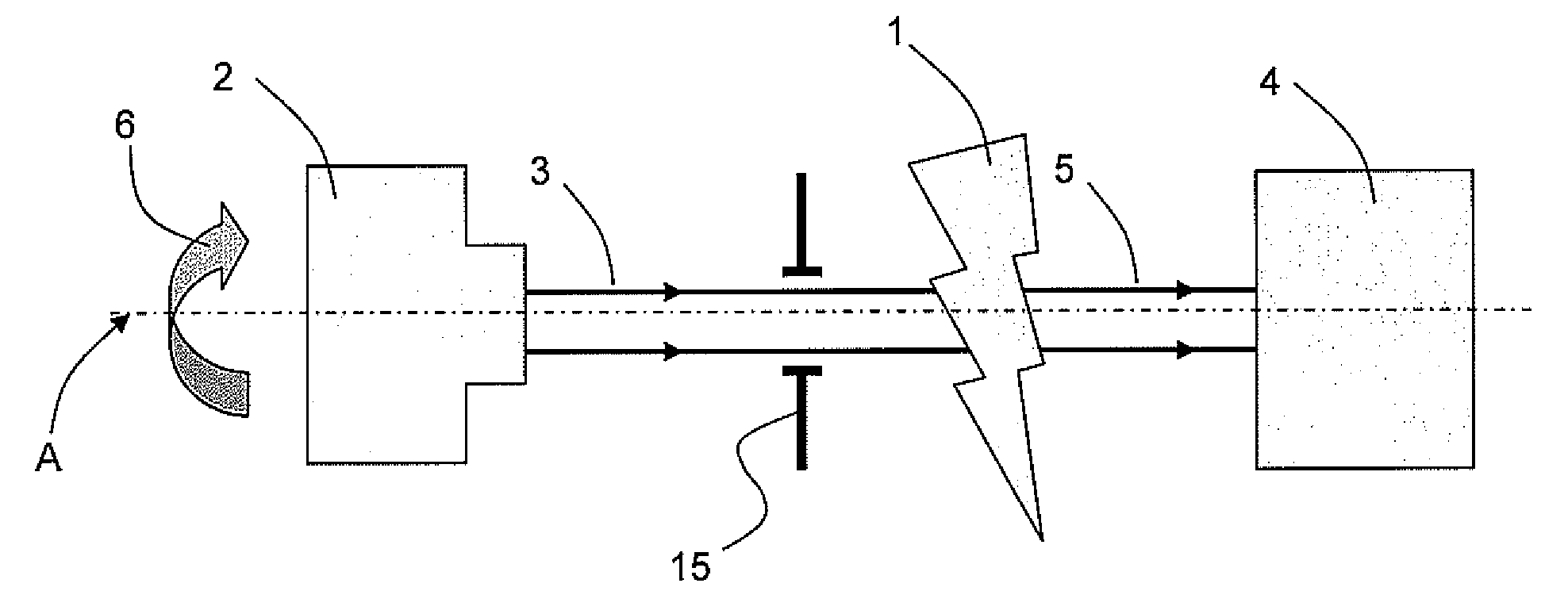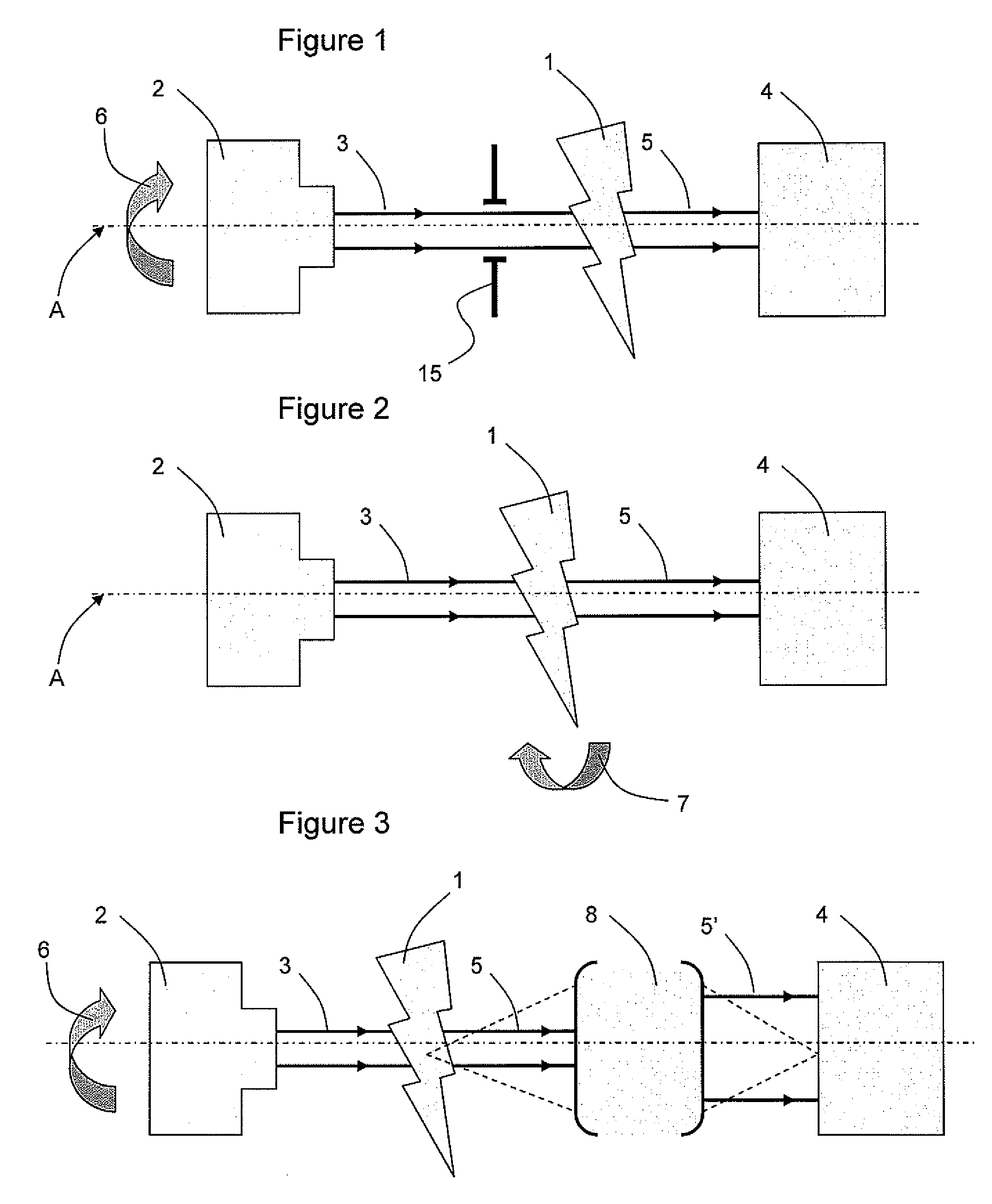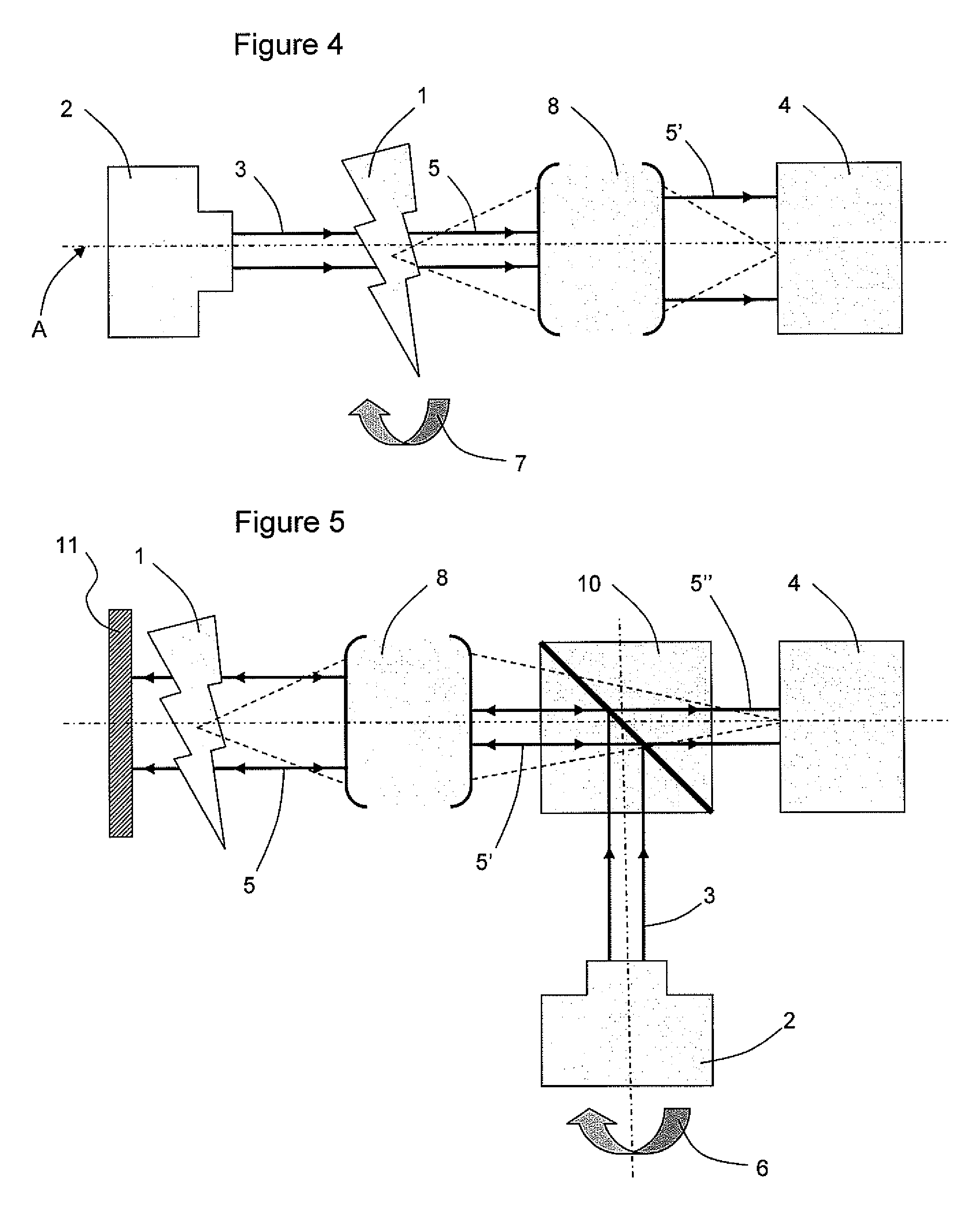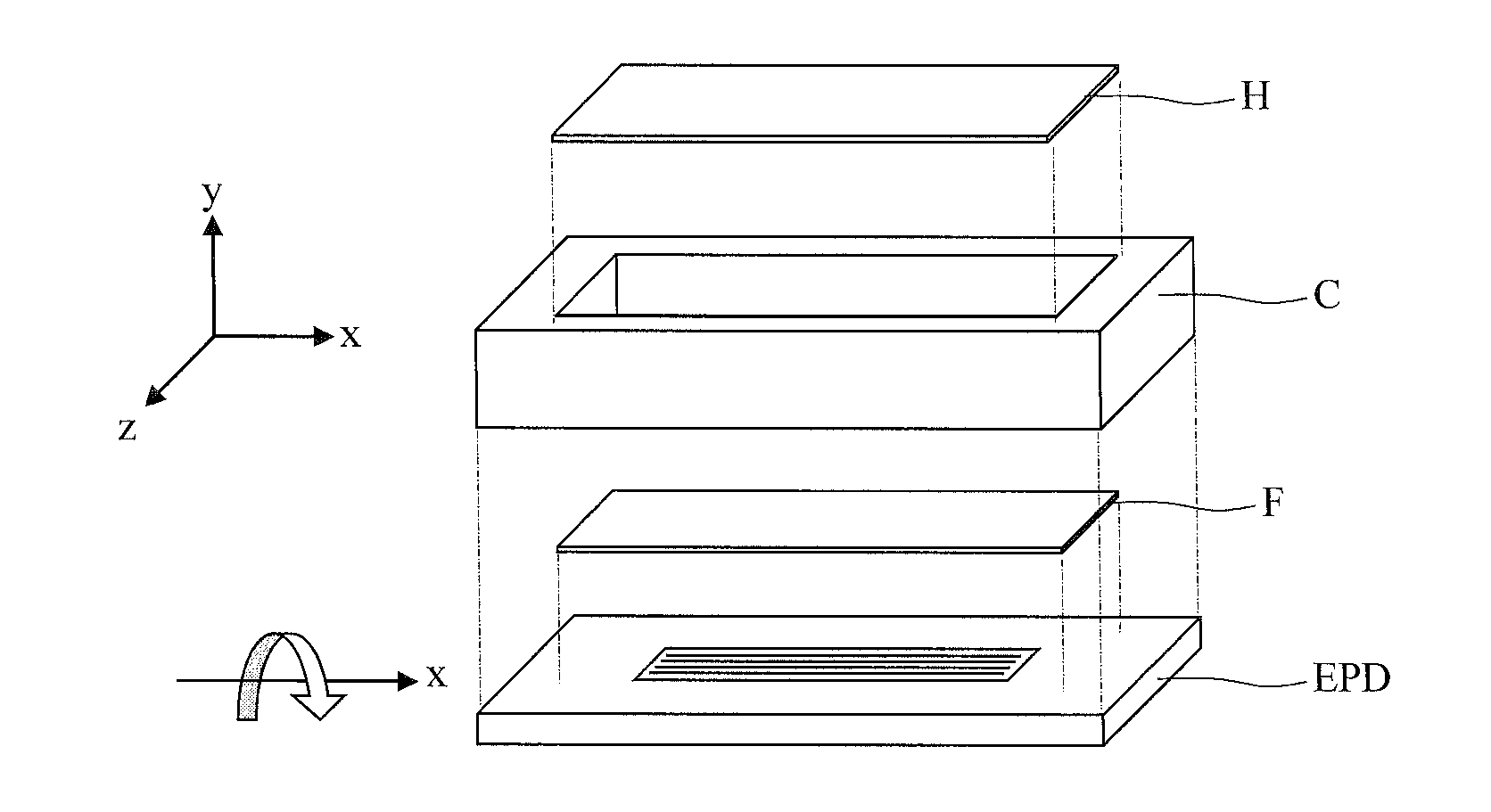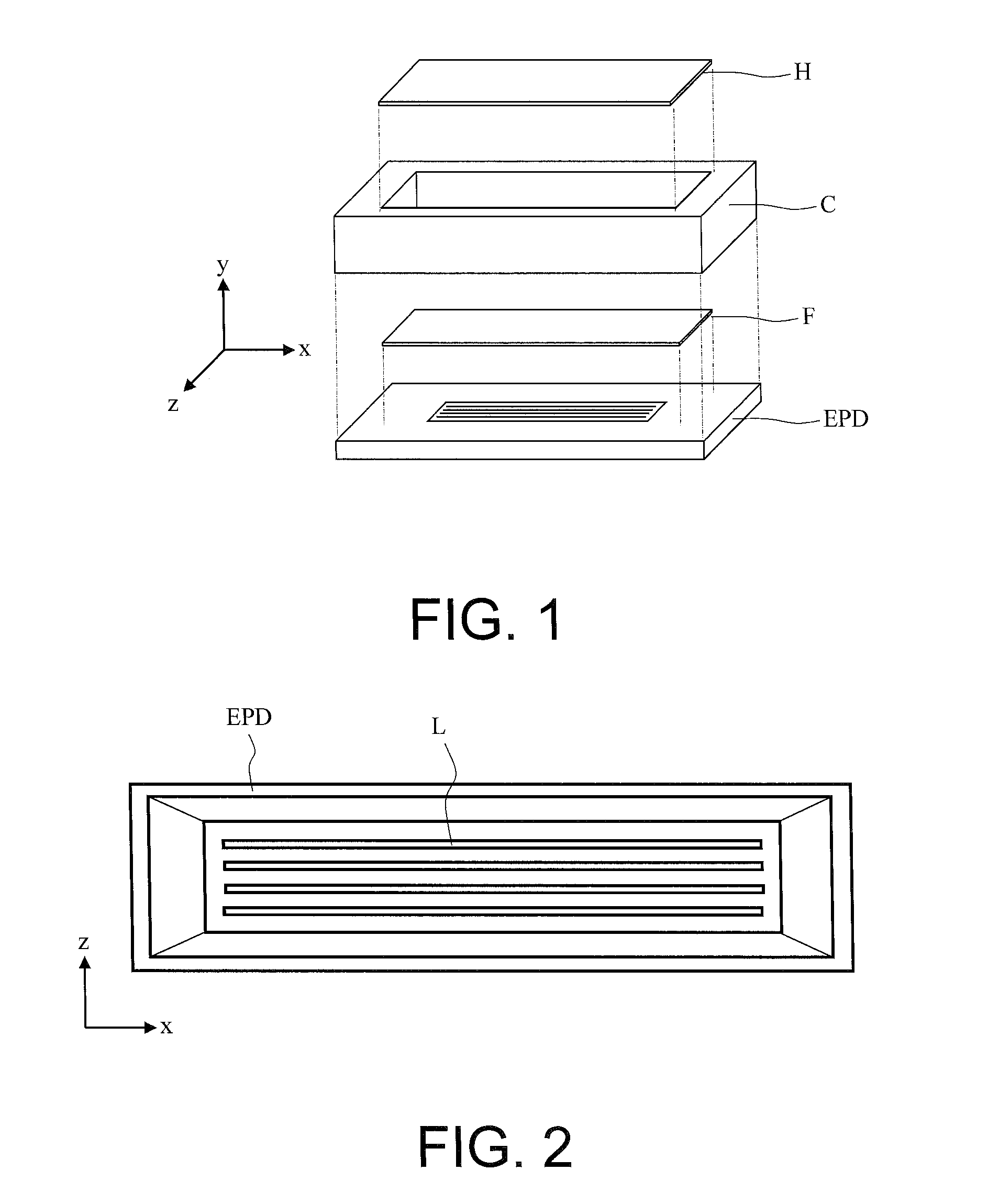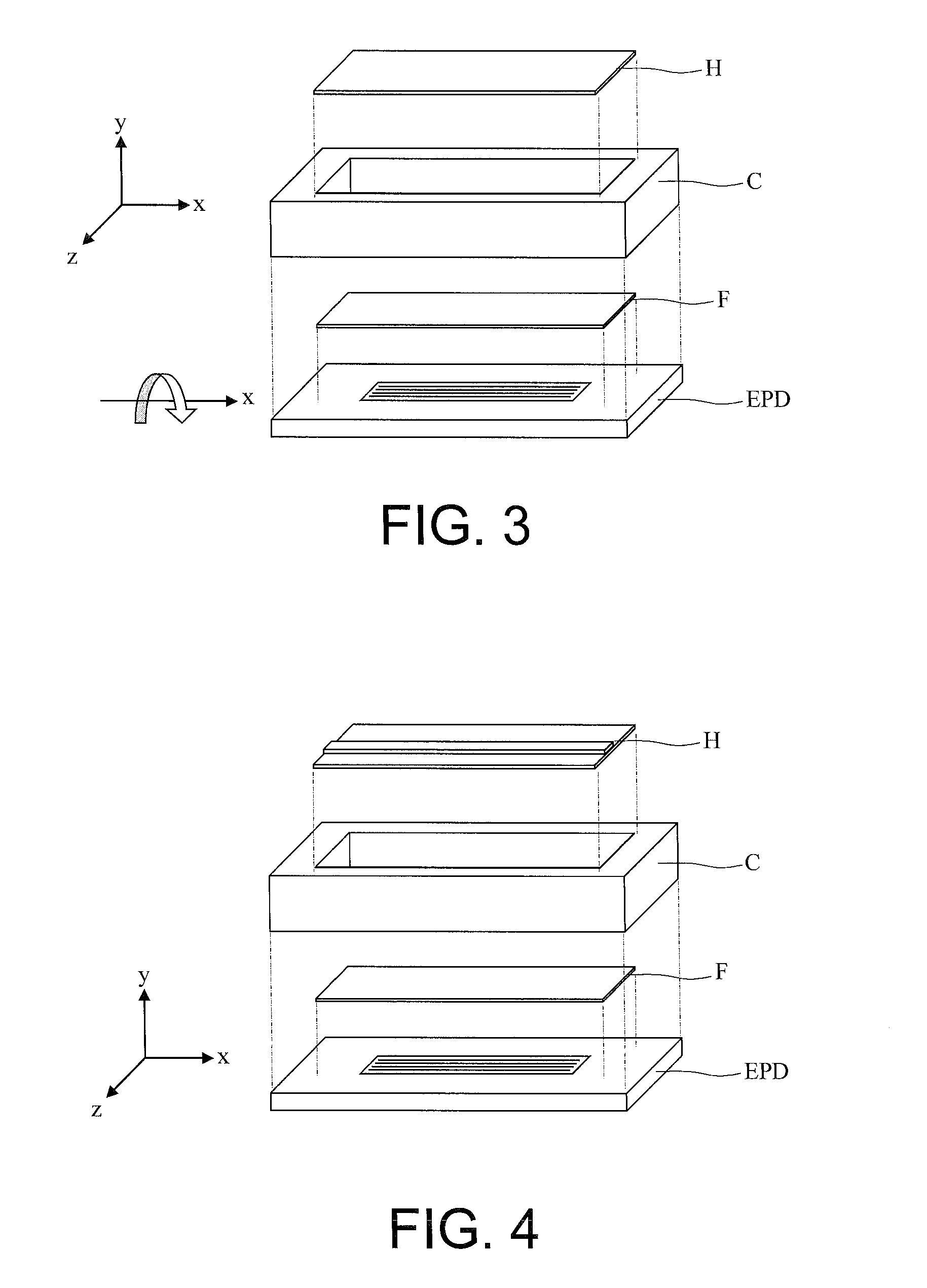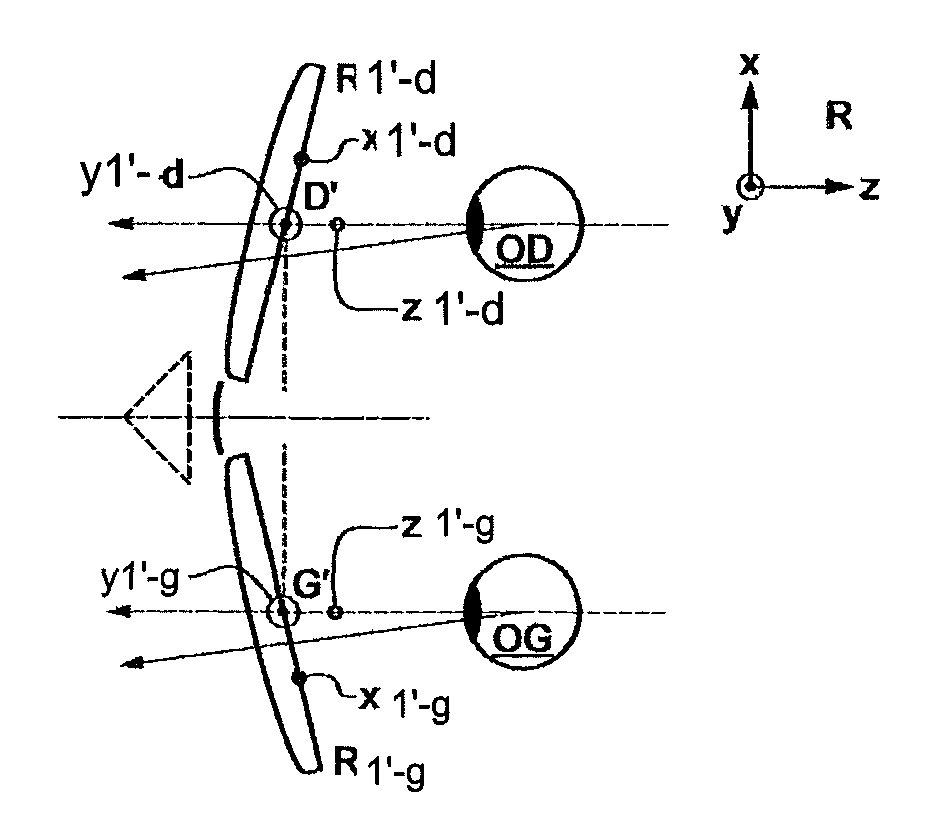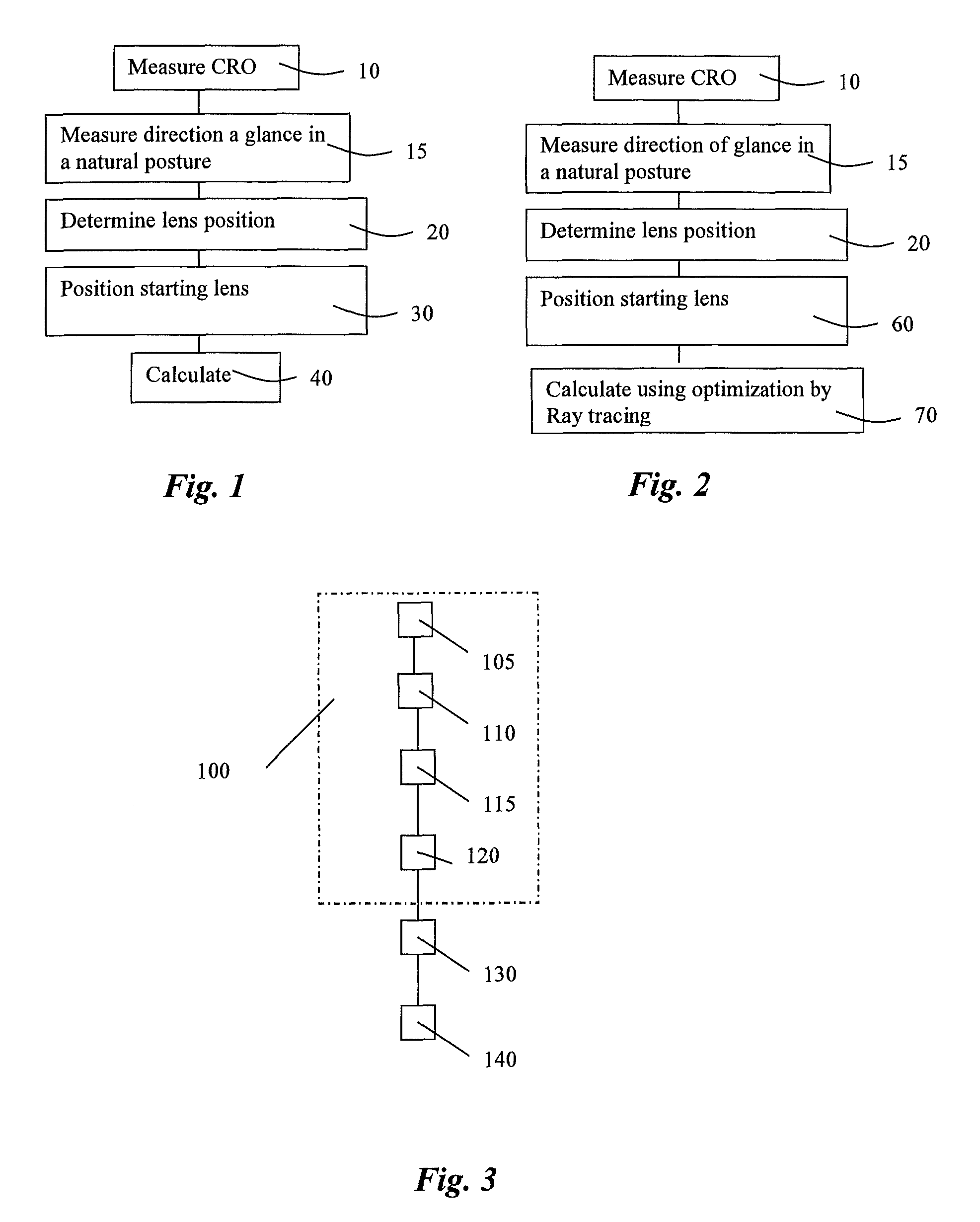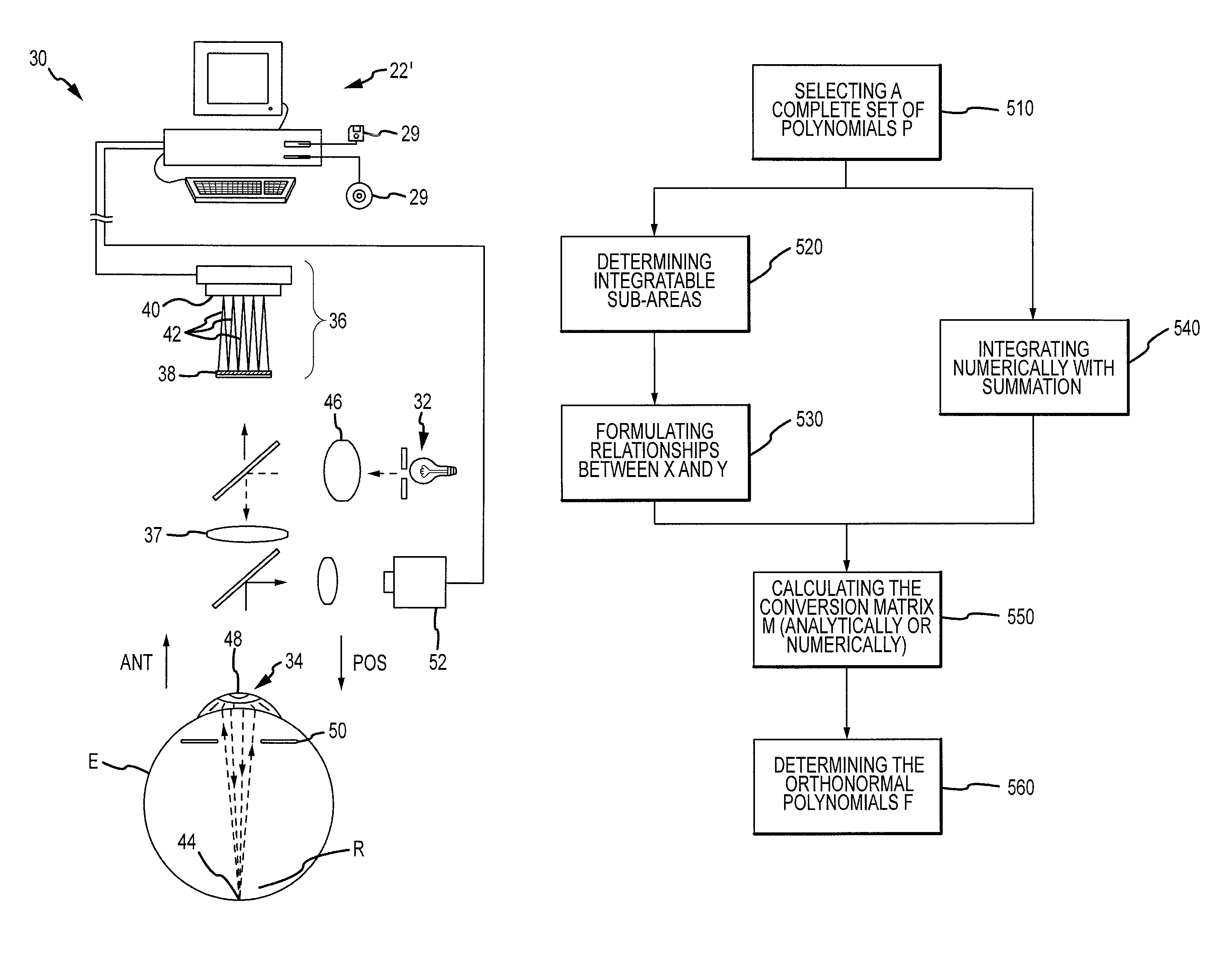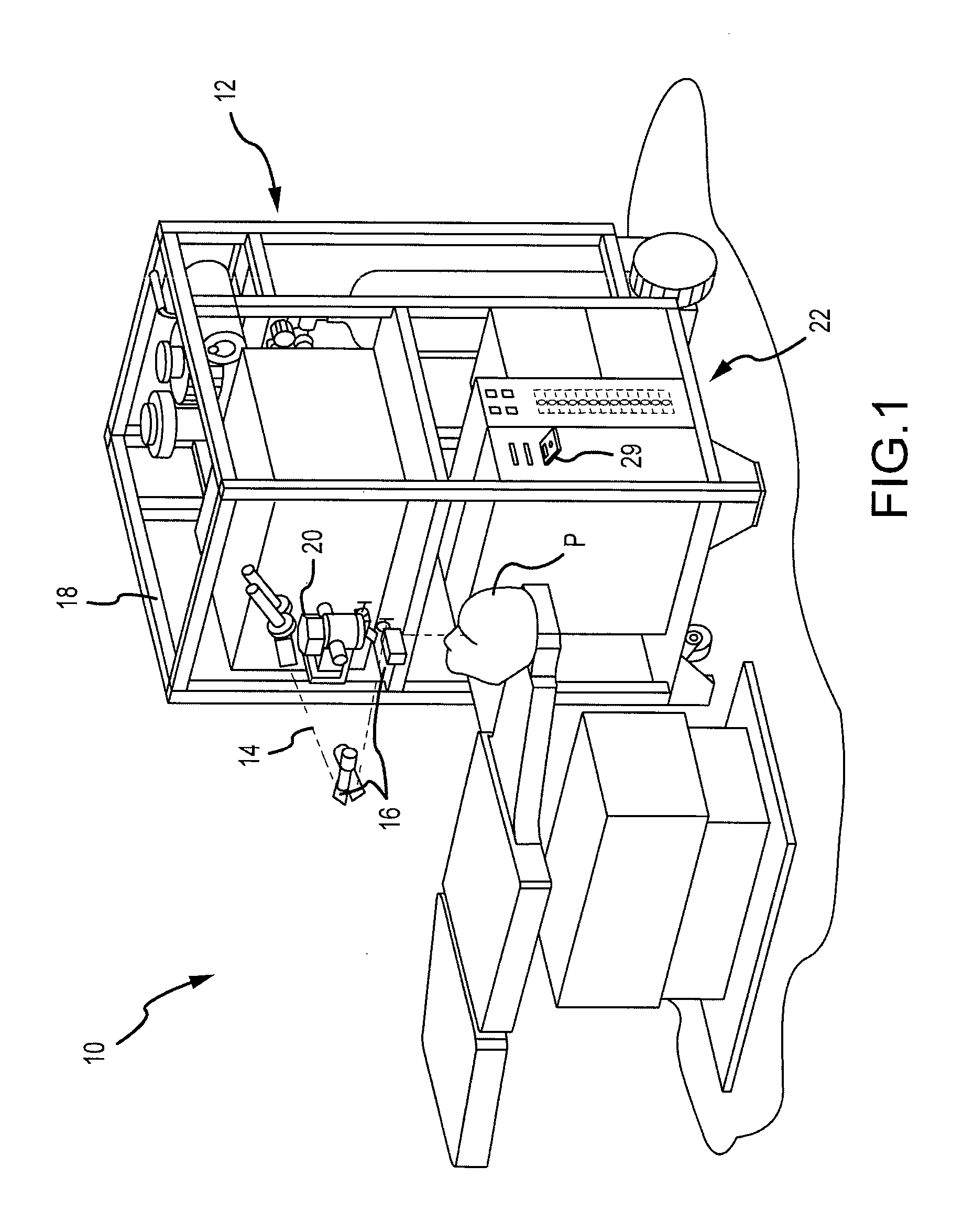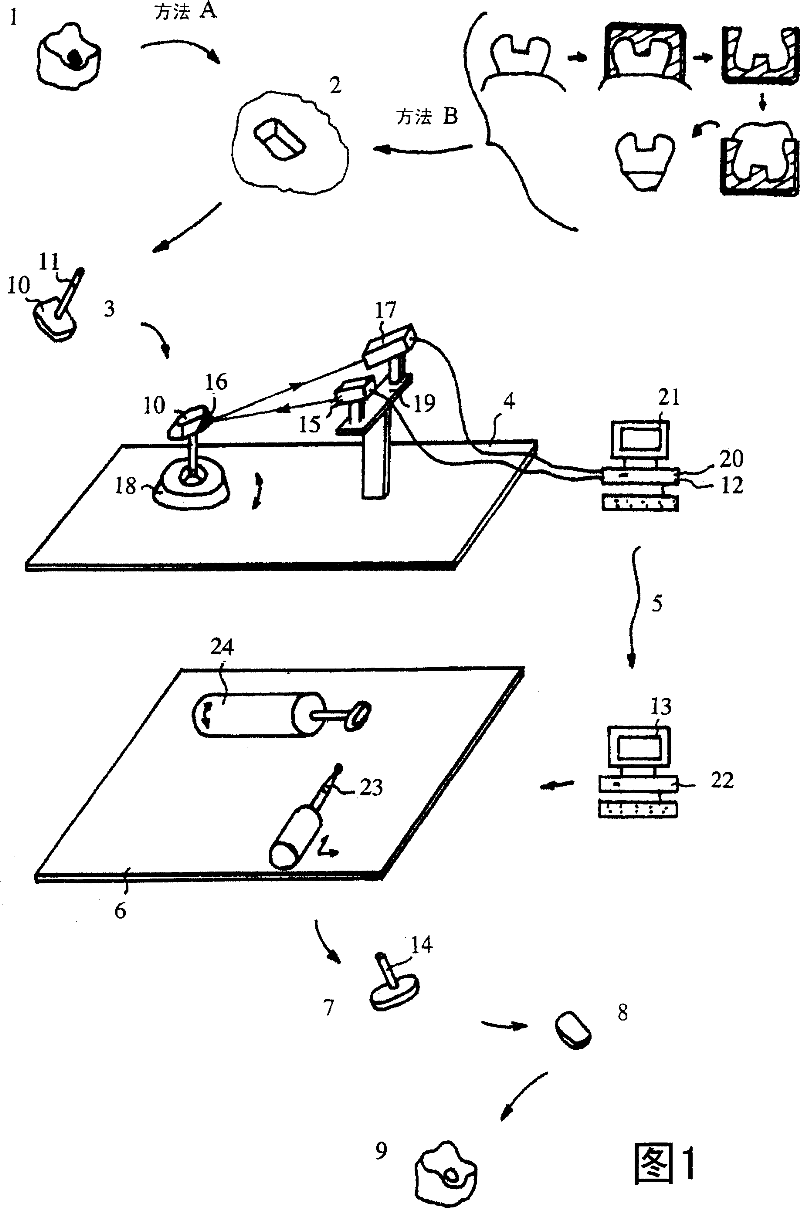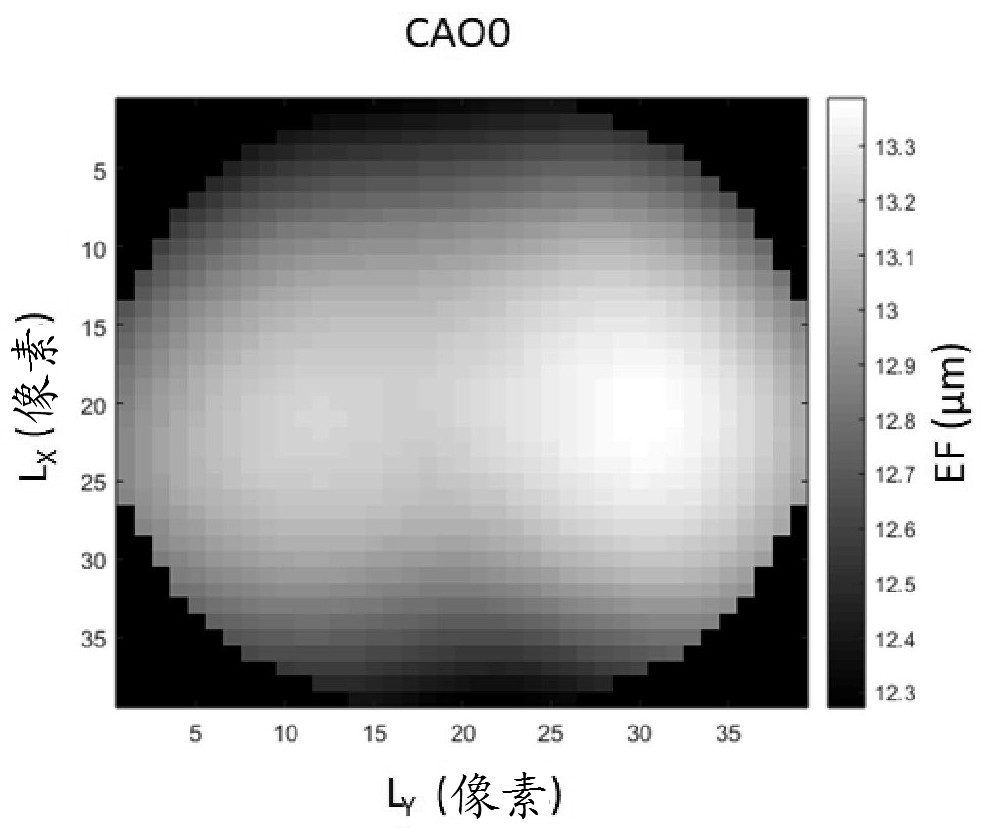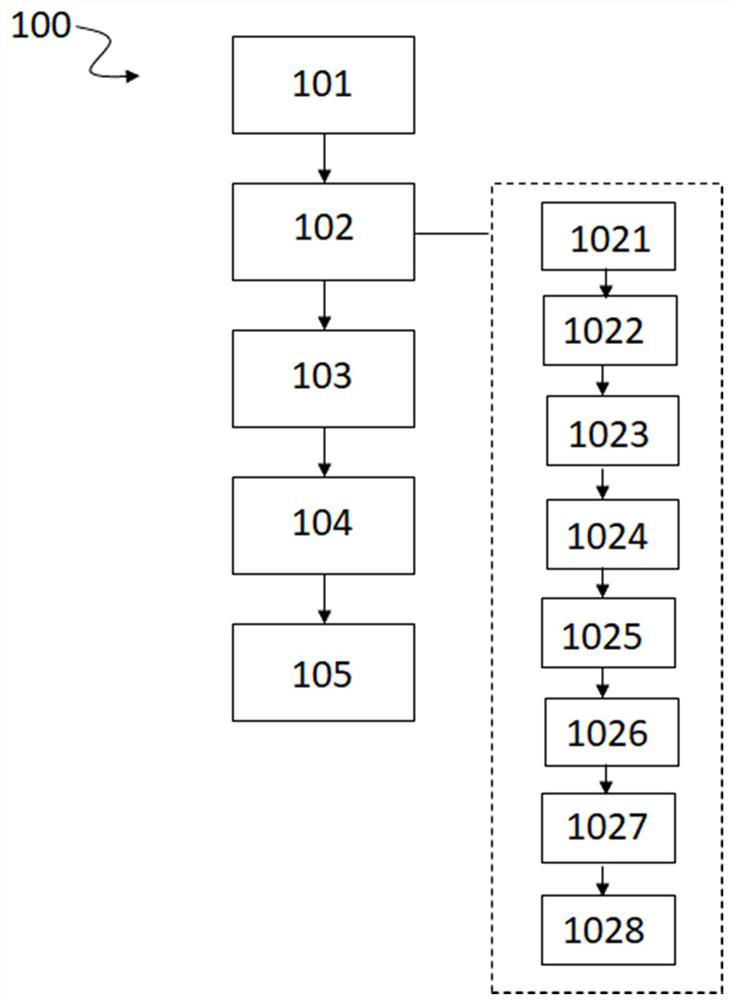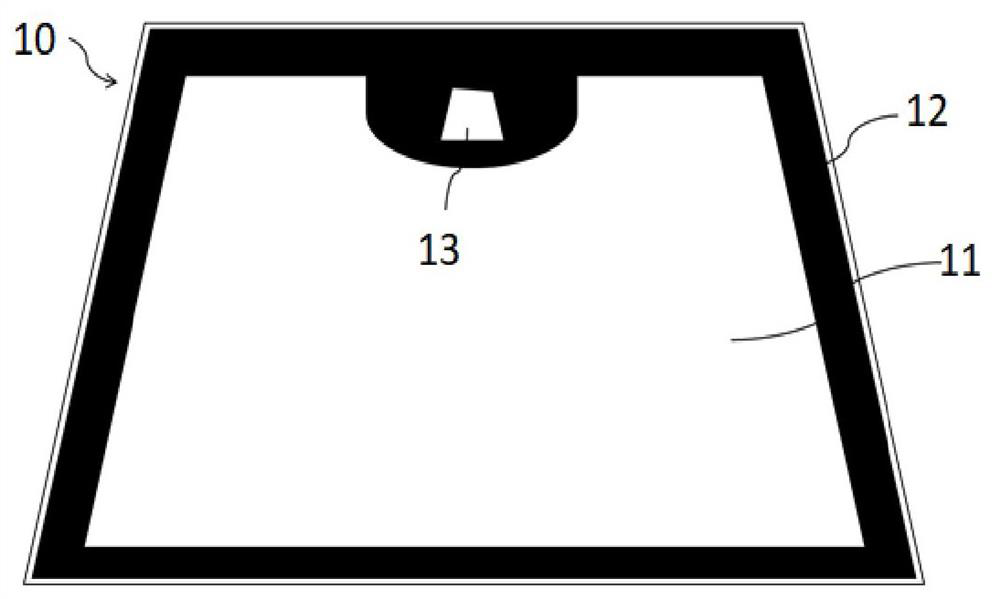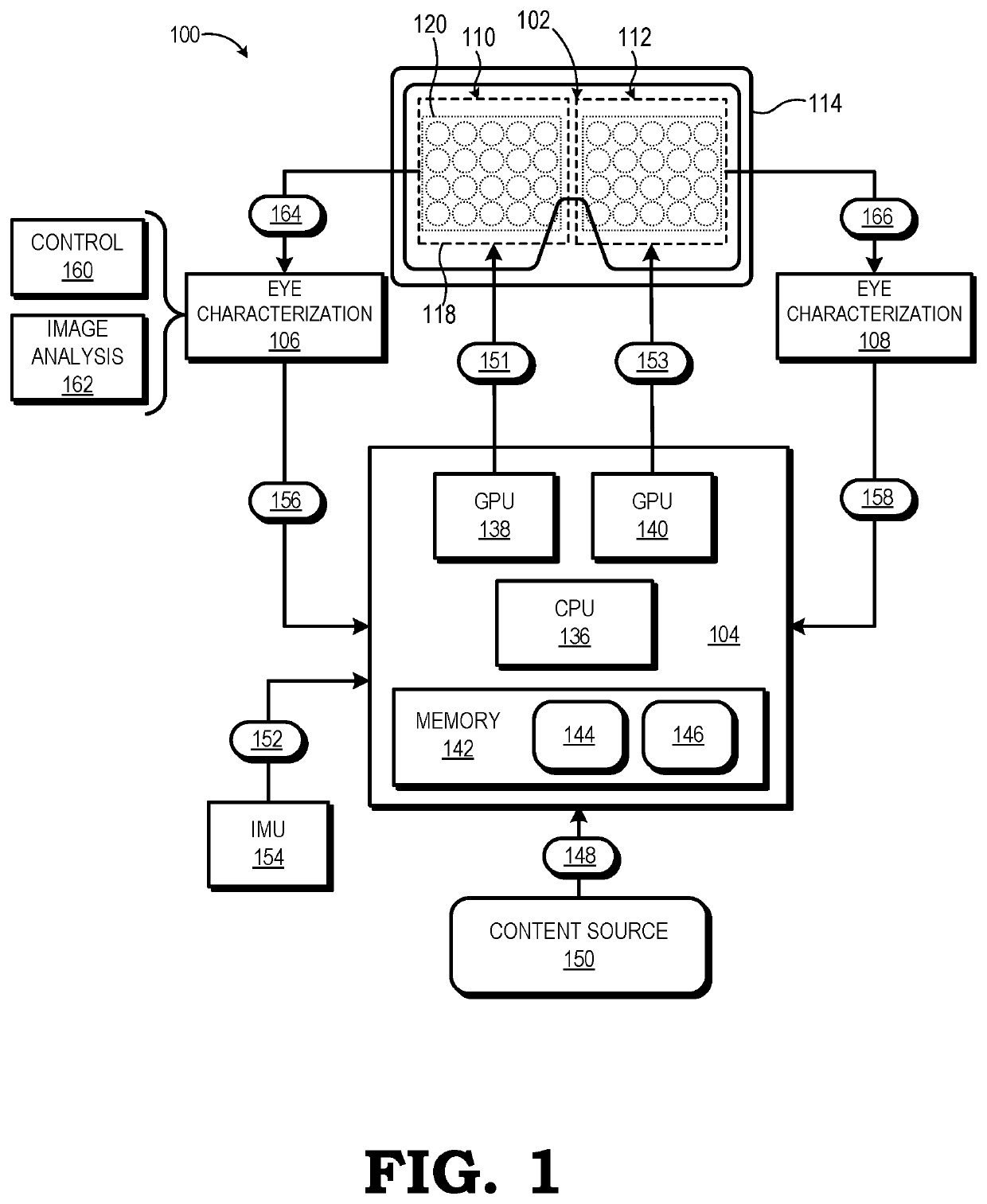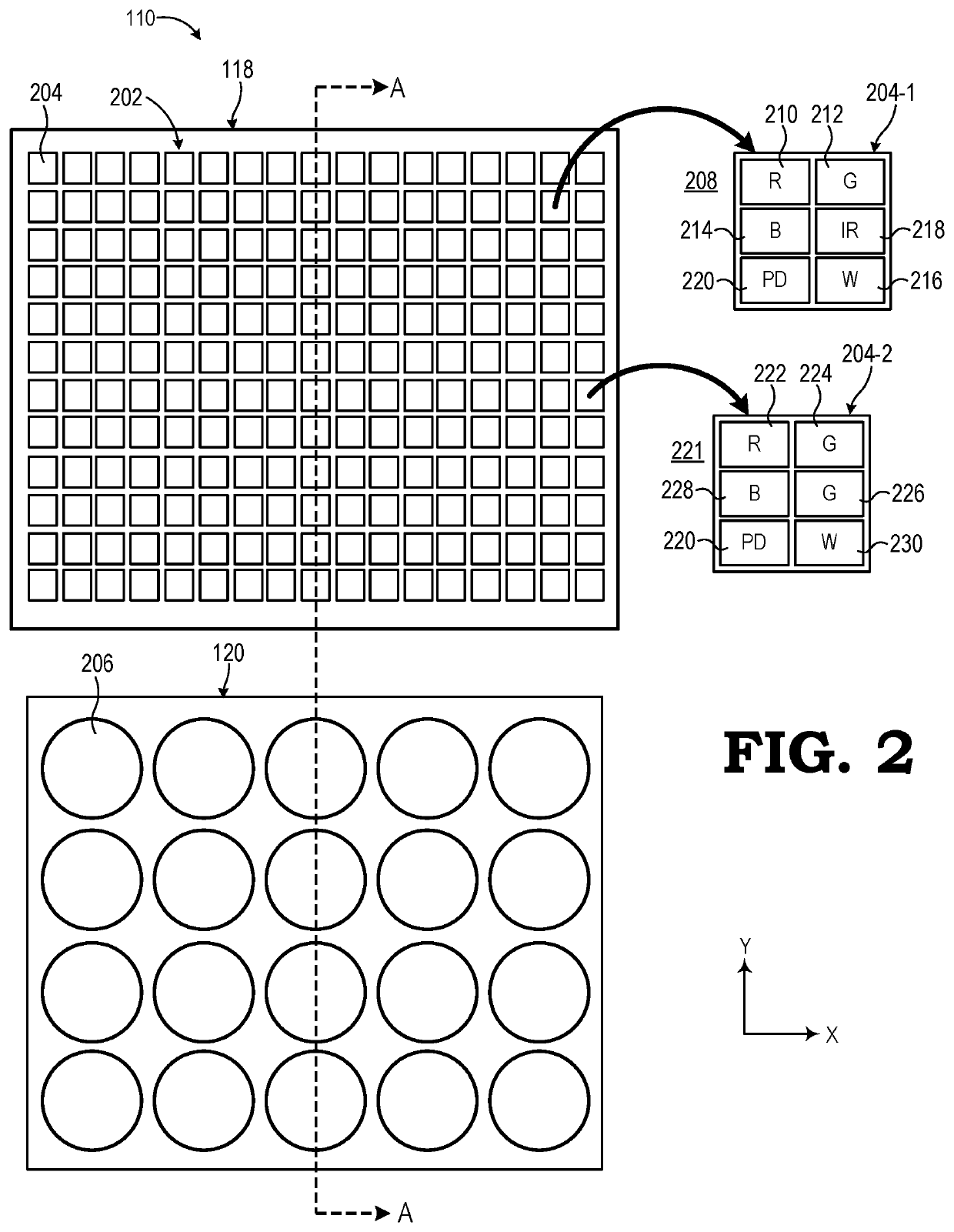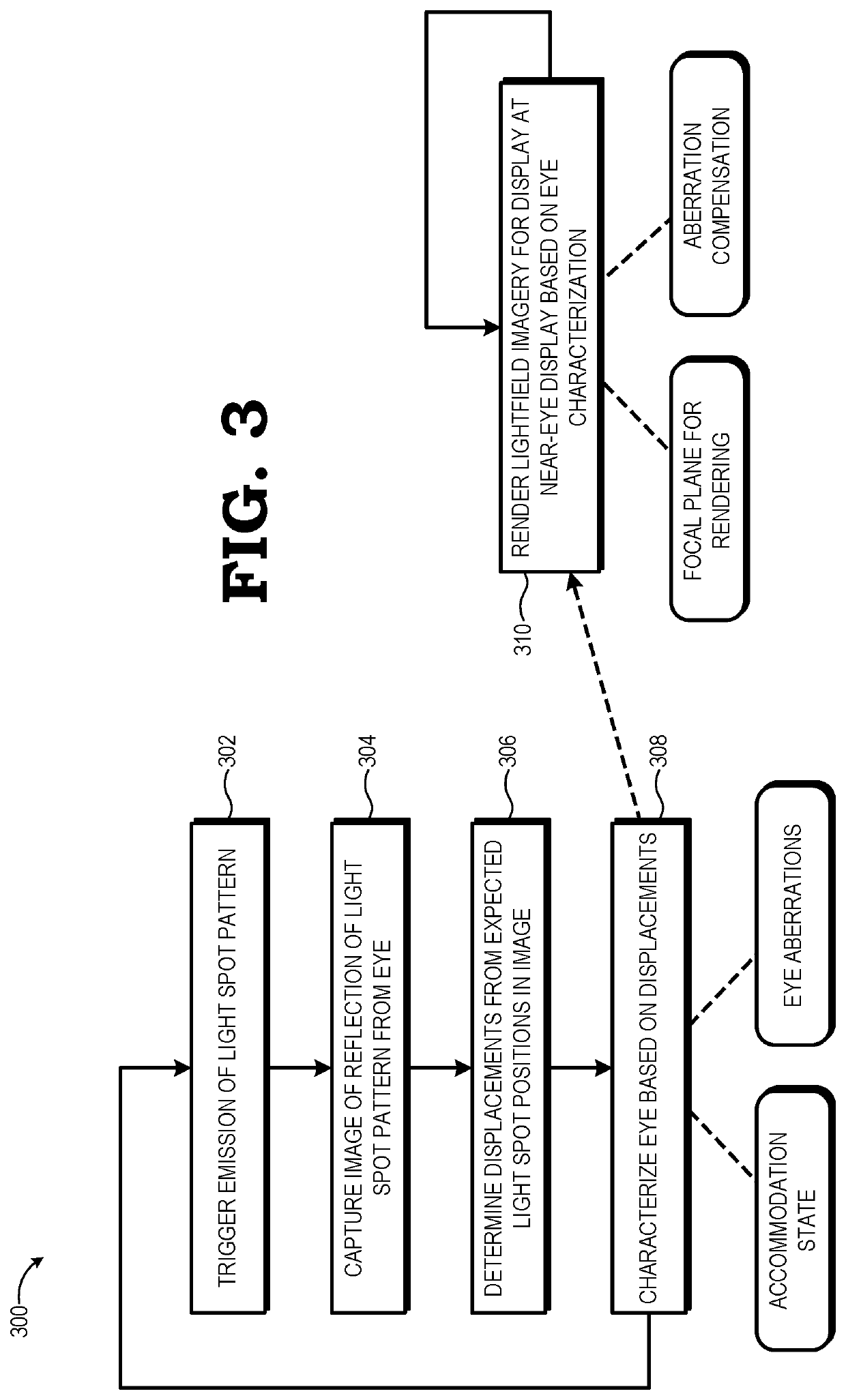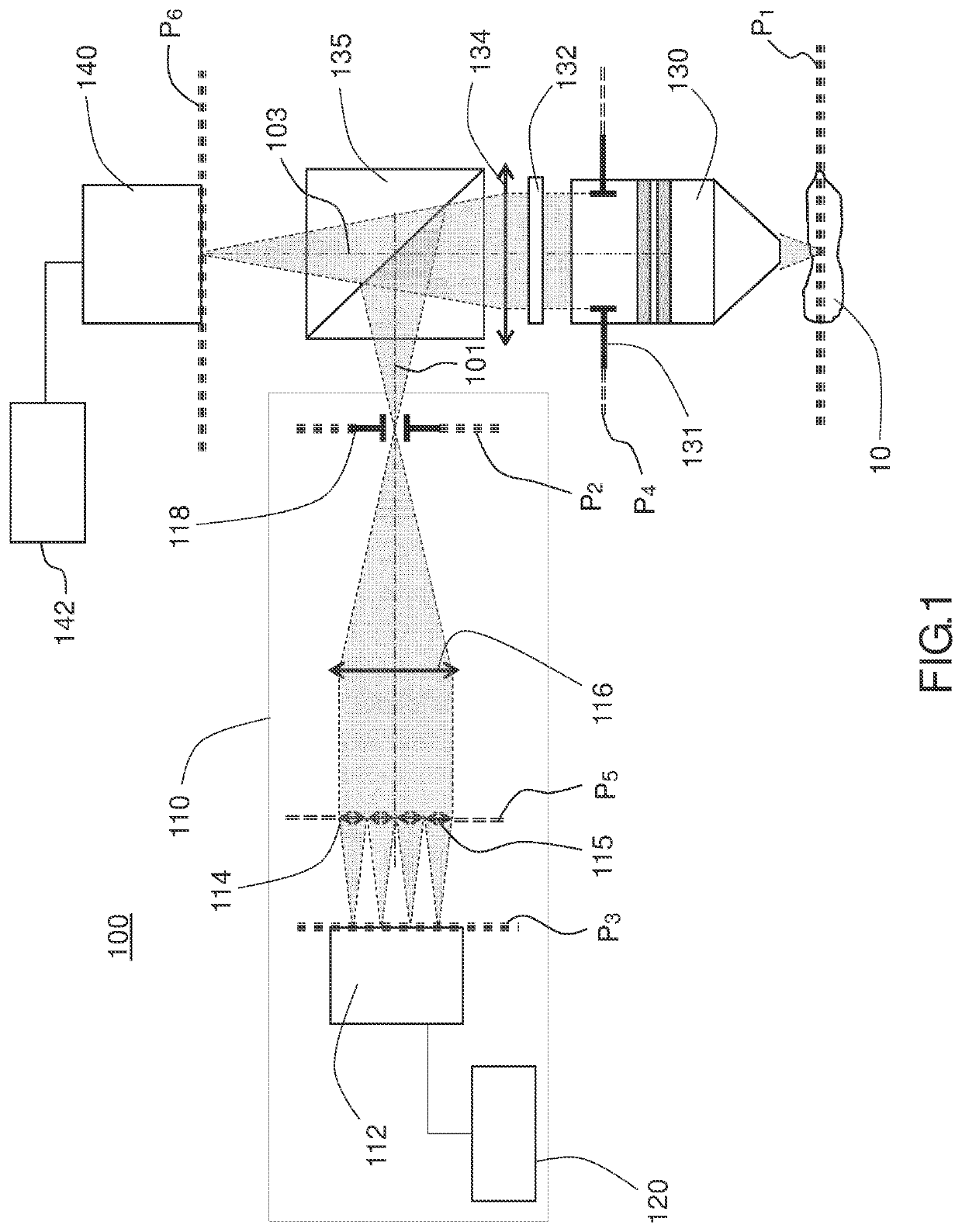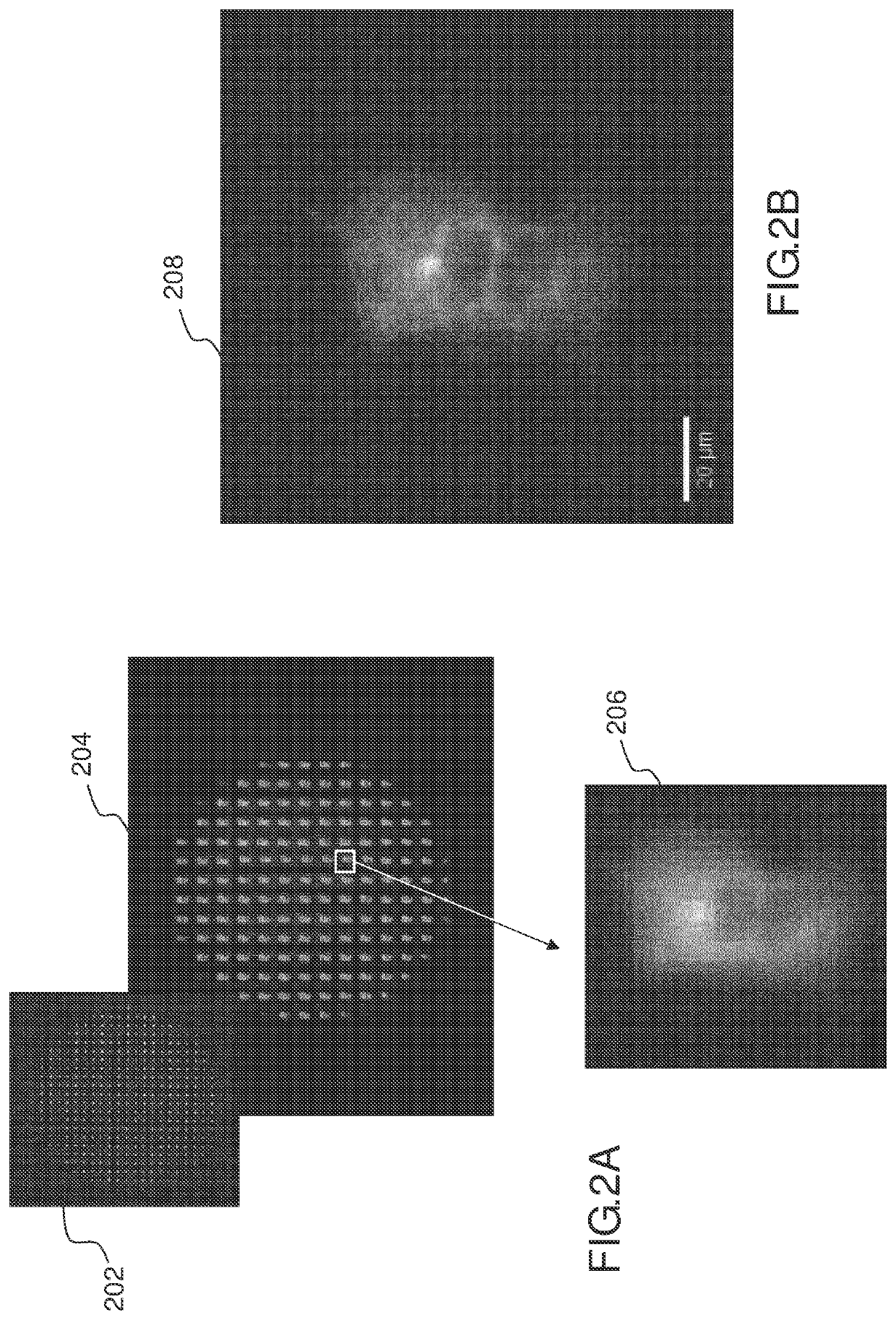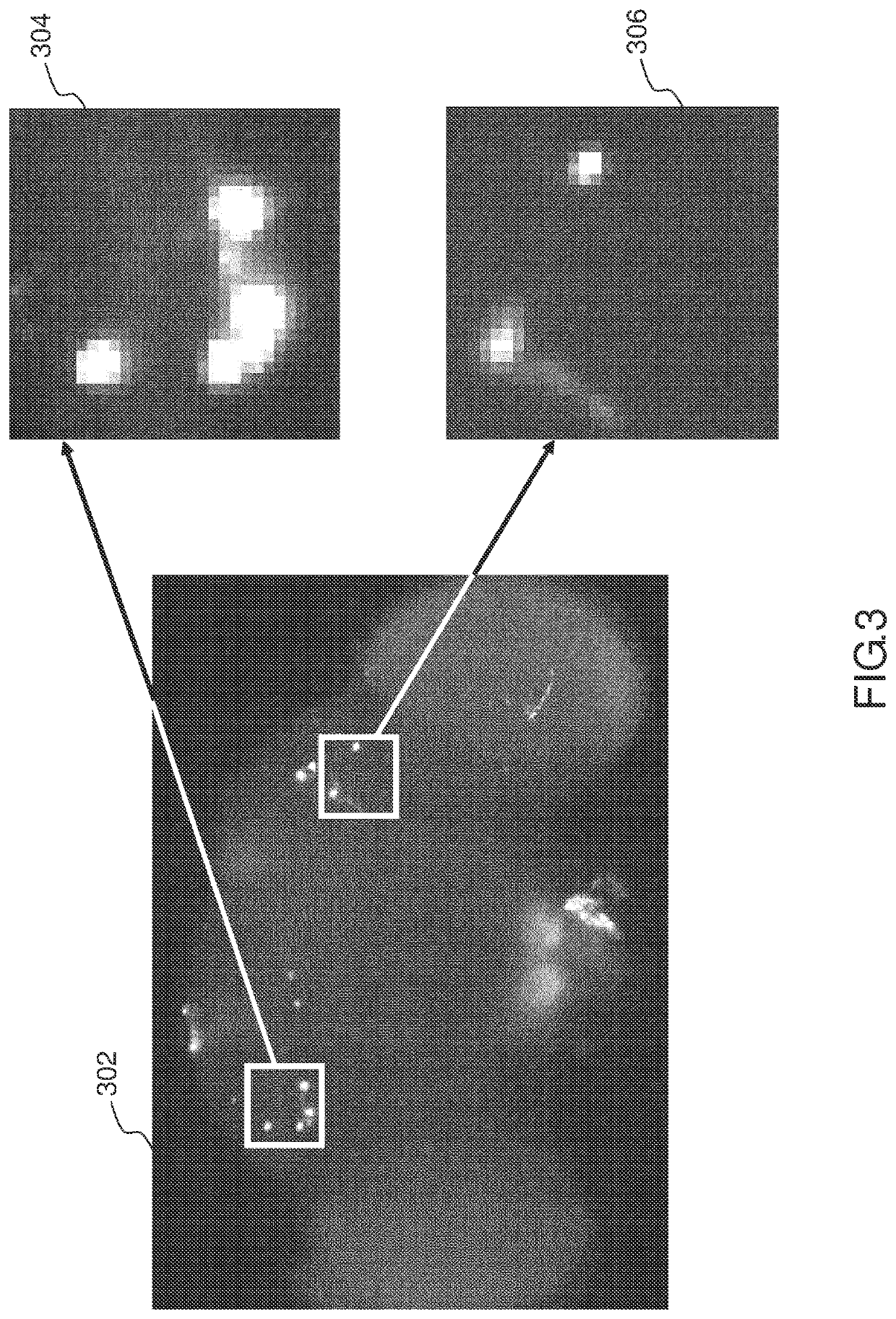Patents
Literature
38 results about "Wavefront analysis" patented technology
Efficacy Topic
Property
Owner
Technical Advancement
Application Domain
Technology Topic
Technology Field Word
Patent Country/Region
Patent Type
Patent Status
Application Year
Inventor
Tissue structure identification in advance of instrument
InactiveUS20050027199A1Increase contentIncision instrumentsSurgical needlesFiberTissue characterization
A method and apparatus for identifying tissue structures in advance of a mechanical medical instrument during a medical procedure. A mechanical tissue penetrating medical instrument (22) has a distal end for penetrating tissue in a penetrating direction. An optical wavefront analysis system (32-50) provides light to illuminate tissue ahead of the medical instrument and receives light returned by tissue ahead of the medical instrument. An optical fiber (30) is coupled at a proximal end to the wavefront analysis system and attached at a distal end to the medical instrument proximate the distal end of the medical instrument. The distal end of the fiber has an illumination pattern directed substantially in the penetrating direction for illuminating the tissue ahead of the medical instrument and receiving light returned therefrom. The wavefront analysis system provides information about the distance from the distal end of the medical instrument to tissue features ahead of the medical instrument.
Owner:CLARKE DANA S
Tissue structure identification in advance of instrument
A method and apparatus for identifying tissue structures in advance of a mechanical medical instrument during a medical procedure. A mechanical tissue penetrating medical instrument (22) has a distal end for penetrating tissue in a penetrating direction. An optical wavefront analysis system (32-50) provides light to illuminate tissue ahead of the medical instrument and receives light returned by tissue ahead of the medical instrument. An optical fiber (30) is coupled at a proximal end to the wavefront analysis system and attached at a distal end to the medical instrument proximate the distal end of the medical instrument. The distal end of the fiber has an illumination pattern directed substantially in the penetrating direction for illuminating the tissue ahead of the medical instrument and receiving light returned therefrom. The wavefront analysis system provides information about the distance from the distal end of the medical instrument to tissue features ahead of the medical instrument.
Owner:CLARKE DANA S
Apparatus and method for objective measurement and correction of optical systems using wavefront analysis
InactiveUS20050099600A1Simple and inexpensive designPractical applicationLaser surgerySurgical instrument detailsRefractive indexOptical path length
A method for enhancing vision of an eye includes a laser delivery system having a laser beam for ablating corneal material from the cornea of the eye. Measurements are made to determine an optical path difference between a plane wave and a wavefront emanating from the retina of the eye for a location at a surface of the cornea. An optical correction is provided to the laser delivery system for the location based on the optical path difference and refractive indices of media through which the wavefront passes. The optical correction includes dividing the optical path difference by a difference between an index of refraction of corneal material and an index of refraction of air. The laser beam is directed to the location on the surface of the cornea and corneal material ablated at the location in response to the optical correction to cause the wavefront to approximate the shape of the plane wave at that location.
Owner:FREY RUDOLPH W +4
Methods and apparatus for wavefront manipulations and improved 3-D measurements
InactiveUS20100002950A1Accurate calculationPoor spatial resolutionFeeler-pin gaugesUsing subsonic/sonic/ultrasonic vibration meansMaxwell's equations3d measurement
Methods and apparatus to perform wavefront analysis, including phase and amplitude information, and 3D measurements in optical systems, and in particular those based on analyzing the output of an intermediate plane, such as an image plane, of an optical system. Measurement of surface topography in the presence of thin film coatings, or of the individual layers of a multilayered structure is described. Multi-wavelength analysis in combination with phase and amplitude mapping is utilized. Methods of improving phase and surface topography measurements by wavefront propagation and refocusing, using virtual wavefront propagation based on solutions of Maxwell's equations are described. Reduction of coherence noise in optical imaging systems is achieved by such phase manipulation methods, or by methods utilizing a combination of wideband and coherent sources. The methods are applied to Integrated Circuit inspection, to improve overlay measurement techniques, by improving contrast or by 3-D imaging, in single shot imaging. Data supplied from the esp@cenet database—Worldwide
Owner:ICOS VISION SYST
System for wavefront analysis and optical system having a microscope and a system for wavefront analysis
An optical system, comprising a microscope housing having a coupling opening for a detachable coupling of an objective lens of the optical system such that the objective lens is arranged in a microscope beam path of the optical system for imaging an object region of the objective lens. The optical system further comprises an assembly. The assembly comprises an assembly housing having a coupling element for the detachable coupling of the coupling element and the coupling opening of the microscope housing; a wavefront analysis system, which provides a wavefront beam path; and a beam splitter, which is arranged in the wavefront beam path. The objective lens, the beam splitter and the wavefront analysis system are arranged such that during the coupling of the coupling opening and the coupling element, the objective lens is arranged in the microscope beam path and the object region is arranged in the wavefront beam path.
Owner:CARL ZEISS MEDITEC AG
Shack-Hartmann based integrated autorefraction and wavefront measurements of the eye
Devices, systems, and methods often by measuring characterize optical structures and systems, the standard refractive error and irregular aberrations. A retinal spot can propagate through optical tissues of an eye and can be directed to refractive correction optics for correcting standard refractive errors. The corrected image is then directed to wavefront analysis optics, which form a coarse pitch lenslet array pattern and a fine pitch lenslet array pattern. The coarse pitch pattern indicates the standard refractive error of the eye, and can be used to adjust the refractive correction optics. The fine pitch pattern is formed with the corrected retinal image, facilitating precise wavefront reconstruction, measurement of high order aberrations, and the like. The coarse pitch pattern and fine pitch pattern may be formed sequentially or simultaneously.
Owner:AMO MFG USA INC
Method, device and arrangement for measuring the dynamic behavior of an optical system
A method for measuring the dynamic behavior of an optical system is aimed at rendering the dynamic behavior of the optical system objectively detectable. To this end, the optical system to be measured is stimulated by stimuli whereby causing it to react, and the reaction is detected by means of a wave front analysis.
Owner:CARL ZEISS MEDITEC AG
Shack-Hartmann based integrated autorefraction and wavefront measurements of the eye
InactiveUS20070216867A1Improve accuracyIncrease speedLaser surgeryEye diagnosticsRetinal fleckEmmetropia
Devices, systems, and methods often by measuring characterize optical structures and systems, the standard refractive error and irregular aberrations. A retinal spot can propagate through optical tissues of an eye and can be directed to refractive correction optics for correcting standard refractive errors. The corrected image is then directed to wavefront analysis optics, which form a coarse pitch lenslet array pattern and a fine pitch lenslet array pattern. The coarse pitch pattern indicates the standard refractive error of the eye, and can be used to adjust the refractive correction optics. The fine pitch pattern is formed with the corrected retinal image, facilitating precise wavefront reconstruction, measurement of high order aberrations, and the like. The coarse pitch pattern and fine pitch pattern may be formed sequentially or simultaneously.
Owner:AMO MFG USA INC
Ocular metrology employing spectral wavefront analysis of reflected light
ActiveUS20160135679A1Balanced detectionReduce artefactSpectales/gogglesOptical measurementsMetrologyNear sightedness
Method and systems are presented for analysing a wavefront using a spectral wavefront analyser to extract optical phase and spectral information at a two dimensional array of sampling points across the wavefront, wherein the relative phase information between the sampling points is maintained. Methods and systems are also presented for measuring an eye by reflecting a wavefront of an eye and measuring the wavefront at a plurality of angles to provide a map of the off-axis relative wavefront curvature and aberration of the eye. The phase accuracy between wavelengths and sample points over a beam aperture offered by these methods and systems have a number of ocular applications including corneal and anterior eye tomography, high resolution retinal imaging, and wavefront analysis as a function of probe beam incident angle for determining myopia progression and for designing and testing lenses for correcting myopia.
Owner:CYLITE
Method and device for detecting spectacle lenses based on wavefront analysis
InactiveCN107577065AEfficient measurementRealize detectionSpectales/gogglesTesting optical propertiesImaging qualityLens plate
The invention discloses a method for detecting spectacle lenses based on wavefront analysis. The method comprises a light source adjustment unit, a lens posture adjustment unit, a detection unit and asoftware module, wherein the light source adjustment unit is used to translate and rotate incident light; the lens posture adjustment unit is used to adjust initial vertex distances of lenses, a wearing view angle and facial radians of rings according to wearing parameters of a prescription for spectacles; the detection unit is used to detect an effective wavefront aberration of the lenses; the software module is used to set motion parameters of a motion platform and set detection parameters of a wavefront aberration sensor in the detection unit, and is used to receive, calculate and displayeffective wavefront aberration data of the detection unit. The method measures the effective wavefront aberration in high precision in a lens wearing state, and provides quantitative reference for designing and processing of the lenses and evaluation of optical properties and imaging quality.
Owner:TIANJIN UNIV
Objective phoropter system
ActiveUS9462939B2Favorably correctedResidual aberrationMachines/enginesPump controlRefractive measurementsPupil
Systems for performing combined phoropter and refractive measurements to ascertain the aberrations present in the eye of a subject. The systems use a pair of phoropter wheel assemblies, one for each eye, each assembly comprising a number of lens wheels incorporating the series of lenses and wedges required to compensate for a range of refractive vision aberrations. The vision of each eye is corrected by a combination of a subjective phoropter measurement, iteratively performed with an objective wavefront analysis measurement to determine the residual aberrations existing after the initial phoropter correction. The system is able to automatically align the axes of each wavefront analyzer with is corresponding eye, by means of centering the pupil image in the wavefront analyzer camera, and to determine the pupil distance. By changing the focusing point on the wavefront analyzer of the light reflected from the eye, the corneal profile can be measured.
Owner:VISIONIX
Method for producing dental restoration elements
The invention relates to a method for producing high-geometric precision elements made from a neutral material. Using different types of prosthetic restoration, said elements are intended to fill the damage caused in teeth by dental caries or tissue alteration having other causes. The inventive elements are also intended to be used to produce high-precision dental crowns or other related dental devices. The method is characterised in that: a model (10), which is designed to fill the missing dental tissue that has been destroyed, is made either in vivo, updating and defining a new volume (2) that is bordered by healthy tissue and having a tapered wall, or in vitro, taking an impression in the mouth of a dental preparation using an impression compound, said impression then being cast in plaster, and updating and defining a new volume (2) using said positive plaster model; the measurements of said model (10) are then taken in 3D using a three-dimensional measuring apparatus (4, 15, 17) with light wavefront analysis and volume analysis which is carried out using shots, a projector (15) being positioned at an angle to a camera (17) and said projector (15) and camera (17) being mechanically and geometrically linked to a revolving platform (18) that is used to support the model by means of a frame (19) in order to obtain good triangulation; the data are processed electronically (12) to remodel the morsels of volume; the files are subsequently modified electronically to determine exactly the desired profile; and the final element to be implanted is machined with a digitally-controlled machine (6, 23, 24, 22).
Owner:米歇尔·瓦莱里 +1
Method, device and arrangement for measuring the dynamic behavior of an optical system
A method for measuring the dynamic behavior of an optical system is aimed at rendering the dynamic behavior of the optical system objectively detectable. To this end, the optical system to be measured is stimulated by stimuli whereby causing it to react, and the reaction is detected by means of a wave front analysis.
Owner:CARL ZEISS MEDITEC AG
Systems and methods for wavefront analysis over circular and noncircular pupils
ActiveUS20080077644A1Reduce errorsImprove accuracyLaser surgeryCharacter and pattern recognitionPupilOptical testing
Systems, methods, and software for determining a set of analytical or numerical polynomials that is orthonormal over circular or noncircular pupils are described. Closed-form orthonormal polynomials for circular, annular, hexagonal, elliptical, rectangular, and square pupils are derived. Such techniques can be applied to ray tracing as in the optical design and wavefront fitting from measurement as in the optical testing. These approaches can also be applied to wavefront reconstruction in adaptive optics.
Owner:AMO MFG USA INC
Apparatus and method for optical wavefront analysis using active light modulation
InactiveUS20060186312A1Increase rangeHigh sensitivityPhotometry using reference valueOptical measurementsLight beamDistortion
Apparatus and method for measuring wavefront slope and irradiance of direct and / or reflected light beams at a plurality of points to enable calculation of optical wave front distortions. A plurality of sub-beams or groups of sub-beams is created and controlled using at least one electronically-controlled Active Light Modulation Device (“ALMD”).
Owner:ALTMAN ZINO +1
Objective phoropter system
ActiveUS20150042957A1Accurately measurableEasy to correctMachines/enginesPump controlRefractive measurementsPupil
Systems for performing combined phoropter and refractive measurements to ascertain the aberrations present in the eye of a subject. The systems use a pair of phoropter wheel assemblies, one for each eye, each assembly comprising a number of lens wheels incorporating the series of lenses and wedges required to compensate for a range of refractive vision aberrations. The vision of each eye is corrected by a combination of a subjective phoropter measurement, iteratively performed with an objective wavefront analysis measurement to determine the residual aberrations existing after the initial phoropter correction. The system is able to automatically align the axes of each wavefront analyzer with is corresponding eye, by means of centering the pupil image in the wavefront analyzer camera, and to determine the pupil distance. By changing the focusing point on the wavefront analyzer of the light refleeted from the eye, the corneal profile can be measured.
Owner:VISIONIX
Wavefront analysis method involving multilateral interferometry with frequency difference
Owner:OFFICE NAT DETUDES & DE RECH AEROSPATIALES
Method and device for detecting wave plate surface phase delay amount
InactiveCN108760249ARealize 3D detectionHigh measurement accuracyTesting optical propertiesSurface phasePhase retardation
The invention provides a method and device for detecting a wave plate surface phase delay amount, and the method and the device are used for detecting a phase delay amount of each point on the surfaceof a wave plate to be detected. The method comprises a step of generating a plane light wave by using a ZYGO interferometer, a step of processing the plane light wave into a linearly polarized lightwave, adjusting a beam diameter to obtain a polarized light wave of a limited light wave aperture and irradiating the polarized light wave of the limited light wave aperture to the wave plate to be detected, wherein the wave plate to be detected comprises a first surface and a second surface, and a step of adjusting the positions of the ZYGO interferometer and the wave plate to be detected such that a reflected light spot of the first surface and a reflected light spot of the plane light wave coincide, adjusting the positions of the ZYGO interferometer and the wave plate to be detected such that a reflected light spot of the second surface and the reflected light spot of the plane light wave coincide, and calculating the phase delay amount of each point in the first surface and the secondsurface of the wave plate to be detected. According to the method and device, the three-dimensional detection of a large-aperture wave plate surface phase delay amount is achieved, and a basis is provided for the wavefront analysis and compensation of a wide beam optical detection system using the wave plate.
Owner:NORTHWEST UNIV(CN)
System for wavefront analysis and optical system having a microscope and a system for wavefront analysis
An optical system, comprising a microscope housing having a coupling opening for a detachable coupling of an objective lens of the optical system such that the objective lens is arranged in a microscope beam path of the optical system for imaging an object region of the objective lens. The optical system further comprises an assembly. The assembly comprises an assembly housing having a coupling element for the detachable coupling of the coupling element and the coupling opening of the microscope housing; a wavefront analysis system, which provides a wavefront beam path; and a beam splitter, which is arranged in the wavefront beam path. The objective lens, the beam splitter and the wavefront analysis system are arranged such that during the coupling of the coupling opening and the coupling element, the objective lens is arranged in the microscope beam path and the object region is arranged in the wavefront beam path.
Owner:CARL ZEISS MEDITEC AG
Device and method for wavefront analysis
The invention relates to a device and a method for wavefront analysis. A device for wavefront analysis, which is designed for analyzing the wavefront of at least one light wave passing through an optical system, comprises at least one illumination mask (105, 205, 305, 405, 406, 407), at least one first grating (120, 220, 320, 420), which has at least one first grating structure and generates an interferogram in a predefined plane from a wavefront to be analyzed which proceeds from the illumination mask and passes through the optical system, at least one second grating (130, 230, 330, 430) arranged in said predefined plane, said at least one second grating having at least one second grating structure and generating a superimposition pattern by the superimposition of the second grating structure with the interferogram generated by the first grating, and at least one detector (140, 240, 340, 440) for detecting said superimposition pattern.
Owner:CARL ZEISS SMT GMBH
Instrument and method for characterising an optical system
An instrument (1) for characterizing an optical system, includes: at least one primary source (3) for emitting an illumination light beam (FE); an optical device for directing the illumination beam (FE) onto the optical system (L) to be characterized; a wave front analyzer (4) adapted for receiving a beam from the optical system (L); and a unit for processing the measure signals from the wave front analyzer (4), adapted for providing characterization information of the optical system (L). The instrument further includes a scattering member (22) substantially provided in the focal plane of the optical system (L) so as to create a secondary source generating a secondary beam flowing through the optical system (L) and further directed towards the wave front analyzer.
Owner:IMAGINE OPTIC
Method and system for structural analysis of an object by measuring the wave front thereof
InactiveUS20120274945A1Different degreeVibration insensitiveMaterial analysis by optical meansUsing optical meansLight beamStructural analysis
A system for structural analysis of an object, including a device for generating an input light beam arranged so as to cause the input beam generated to interact with at least one portion of the object, and a device for receiving the output light beam resulting from the interaction between the input beam and the object. In this system, the receiving device include a wavefront analyzer arranged so as to measure the electromagnetic field of the wave of the output beam received, and the generating device has a spatial coherence adapted to that of the receiving device. A structural analysis method implementing such a system is presented.
Owner:PHASICS +2
Scanning Multispectral Telescope Comprising Wavefront Analysis Means
A scanning multispectral telescope comprises an optical architecture arranged so as to focus the image of an object in the vicinity of a photodetection assembly, the area of focus being an image plane. The photodetection assembly comprises a number of parallel rows of photodetectors, each row being dedicated to a particular spectral band, each spectral band being centred on a mean wavelength. The telescope comprises means for acquiring and analyzing the images obtained from the rows of photodetectors using a phase diversity algorithm. Finally, the telescope comprises optical or mechanical means arranged in such a way that at least one of the rows of photodetectors is offset by a fraction of the mean wavelength which corresponds to it on an axis perpendicular to the image plane.
Owner:THALES SA
Method of determining an ophthalmic lens
Owner:ESSILOR INT CIE GEN DOPTIQUE
Systems and methods for wavefront analysis over circular and noncircular pupils
ActiveUS8504329B2Reduce errorsImprove accuracyLaser surgeryCharacter and pattern recognitionPupilOptical testing
Systems, methods, and software for determining a set of analytical or numerical polynomials that is orthonormal over circular or noncircular pupils are described. Closed-form orthonormal polynomials for circular, annular, hexagonal, elliptical, rectangular, and square pupils are derived. Such techniques can be applied to ray tracing as in the optical design and wavefront fitting from measurement as in the optical testing. These approaches can also be applied to wavefront reconstruction in adaptive optics.
Owner:AMO MFG USA INC
Method for producing dental restoration elements
The invention relates to a method for producing high-geometric precision elements made from a neutral material. Using different types of prosthetic restoration, said elements are intended to fill the damage caused in teeth by dental caries or tissue alteration having other causes. The inventive elements are also intended to be used to produce high-precision dental crowns or other related dental devices. The method is characterised in that: a model (10), which is designed to fill the missing dental tissue that has been destroyed, is made either in vivo, updating and defining a new volume (2) that is bordered by healthy tissue and having a tapered wall, or in vitro, taking an impression in the mouth of a dental preparation using an impression compound, said impression then being cast in plaster, and updating and defining a new volume (2) using said positive plaster model; the measurements of said model (10) are then taken in 3D using a three-dimensional measuring apparatus (4, 15, 17) with light wavefront analysis and volume analysis which is carried out using shots, a projector (15) being positioned at an angle to a camera (17) and said projector (15) and camera (17) being mechanically and geometrically linked to a revolving platform (18) that is used to support the model by means of a frame (19) in order to obtain good triangulation; the data are processed electronically (12) to remodel the morsels of volume; the files are subsequently modified electronically to determine exactly the desired profile; and the final element to be implanted is machined with a digitally-controlled machine (6, 23, 24, 22).
Owner:米歇尔·瓦莱里 +1
Method for measuring the optical quality of a given region of a glazing unit and associated measuring device
One aspect of the invention relates to a method for measuring the optical quality of a given region (13) of a glazing unit (10) of a road or rail vehicle, which region is intended to be positioned in the optical path of an image acquisition device, the measuring method being implemented by a measuring device (40) comprising an emitter (41) and a wavefront analyzer, the measuring method comprising: - a step of emitting, with the emitter (41), a beam of light rays in the direction of said given region (13), - a step of analyzing, with the wavefront analyzer, the wavefront of the light rays transmitted by said given region (13), comprising: - a sub-step of generating a wavefront error map, - a sub-step of determining, on the basis of the wavefront error map, at least one optical defect map, of any optical defects present in said region (13) of the glazing (10).
Owner:SAINT-GOBAIN GLASS FRANCE
Near-eye display with frame rendering based on reflected wavefront analysis for eye characterization
A near-eye display system includes an array of lenslets overlying a display panel. The display panel includes an array of light projecting elements, each light projecting element being coaxial with an axis of a corresponding lenslet. The display panel further includes an array of light detecting elements and an array of sub-pixel elements. The system further includes a control component configured to activate the array of light projecting elements to project a pattern of light spots toward an eye of the user and to control the array of light detecting elements to capture an image representing a reflection of the projected pattern of light spots from the eye. The system also includes an analysis component to determine displacements between expected positions and actual positions of at least a subset of light spots in the captured image, and to characterize the eye based on the displacements.
Owner:GOOGLE LLC
Device for wavefront analysis and microscopic imaging systems comprising such analysis devices
PendingUS20220099577A1High precisionAvoid it happening againTelevision system detailsOptical measurementsMicro imagingFluorescence
A device for analysing a wavefront may be connected to a fluorescence microscopy imaging system with optical sectioning, equipped with a microscope objective including a pupil in a pupil plane, the analysis device including a two-dimensional detector including a detection plane; a two-dimensional arrangement of microlenses, arranged in an analysis plane, each microlens forming, on the detection plane, when the analysis device is connected to the microscopic imaging system, an image of an object situated in a focal plane of the microscope objective, with a given analysis field; an optical relay system optically conjugating the analysis plane and the pupil plane; a field diaphragm positioned in a plane optically conjugated with the plane of detection, and defining said analysis field; a processing unit that determines, based on the set of images formed by the microlenses, a two-dimensional map of a characteristic parameter of the wavefront in said analysis plane.
Owner:IMAGINE OPTIC
A method and device for detecting ophthalmic lenses based on wavefront analysis
InactiveCN107577065BEfficient measurementRealize detectionSpectales/gogglesTesting optical propertiesOphthalmologyImaging quality
The invention discloses a method for detecting spectacle lenses based on wavefront analysis. The method comprises a light source adjustment unit, a lens posture adjustment unit, a detection unit and asoftware module, wherein the light source adjustment unit is used to translate and rotate incident light; the lens posture adjustment unit is used to adjust initial vertex distances of lenses, a wearing view angle and facial radians of rings according to wearing parameters of a prescription for spectacles; the detection unit is used to detect an effective wavefront aberration of the lenses; the software module is used to set motion parameters of a motion platform and set detection parameters of a wavefront aberration sensor in the detection unit, and is used to receive, calculate and displayeffective wavefront aberration data of the detection unit. The method measures the effective wavefront aberration in high precision in a lens wearing state, and provides quantitative reference for designing and processing of the lenses and evaluation of optical properties and imaging quality.
Owner:TIANJIN UNIV
Features
- R&D
- Intellectual Property
- Life Sciences
- Materials
- Tech Scout
Why Patsnap Eureka
- Unparalleled Data Quality
- Higher Quality Content
- 60% Fewer Hallucinations
Social media
Patsnap Eureka Blog
Learn More Browse by: Latest US Patents, China's latest patents, Technical Efficacy Thesaurus, Application Domain, Technology Topic, Popular Technical Reports.
© 2025 PatSnap. All rights reserved.Legal|Privacy policy|Modern Slavery Act Transparency Statement|Sitemap|About US| Contact US: help@patsnap.com

